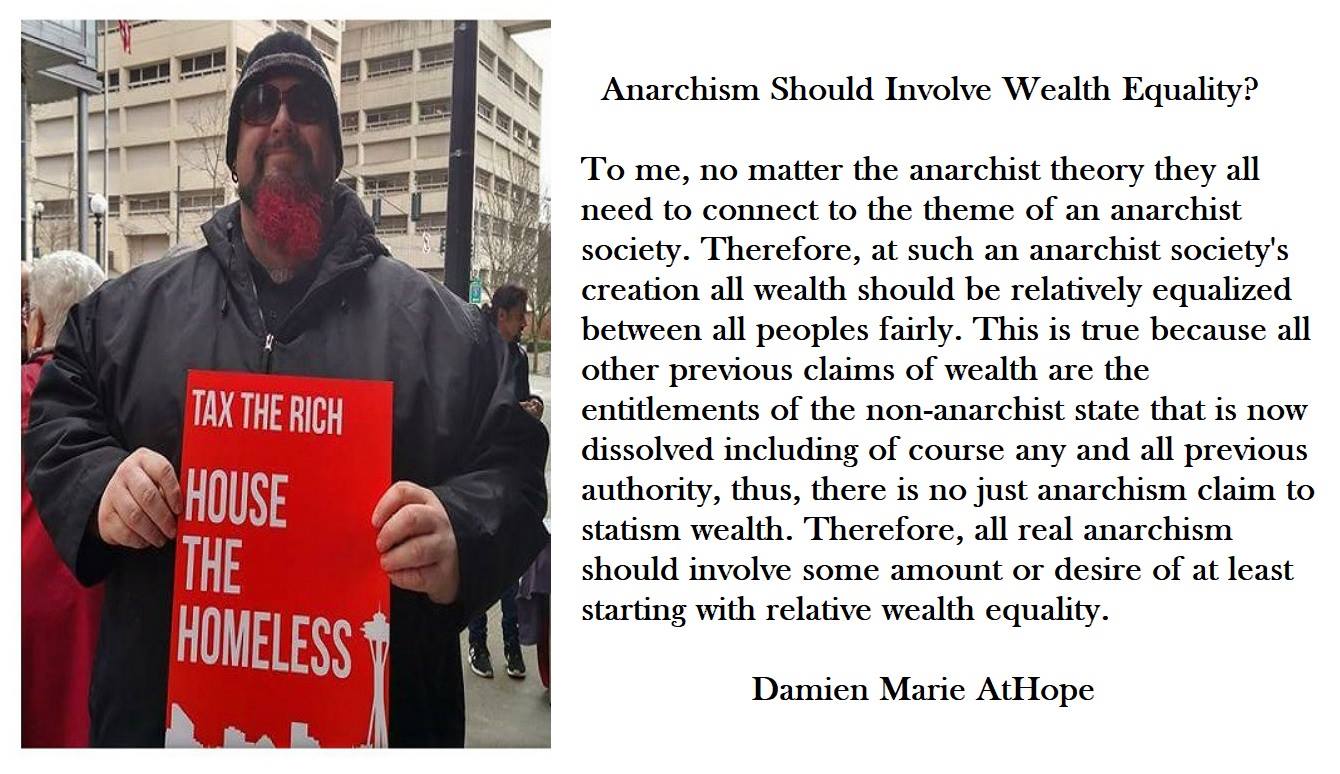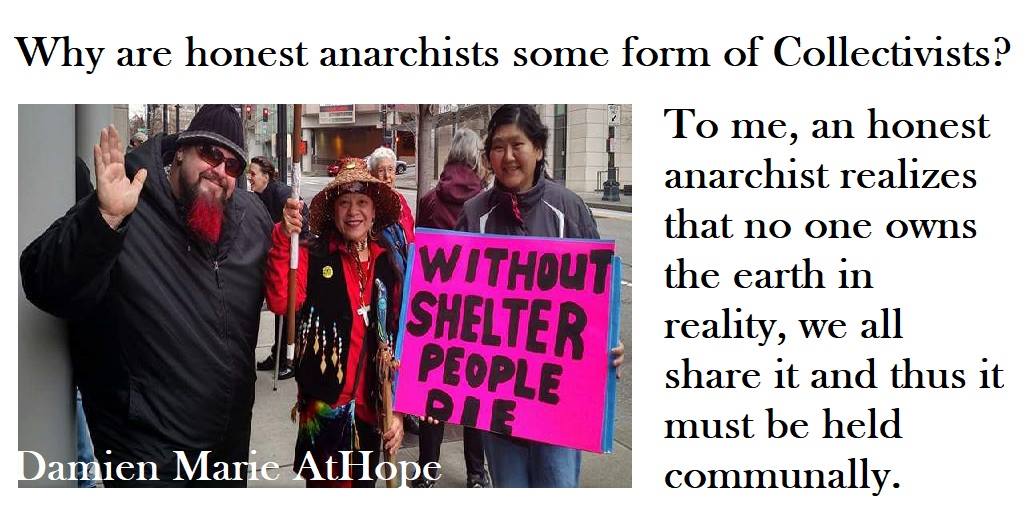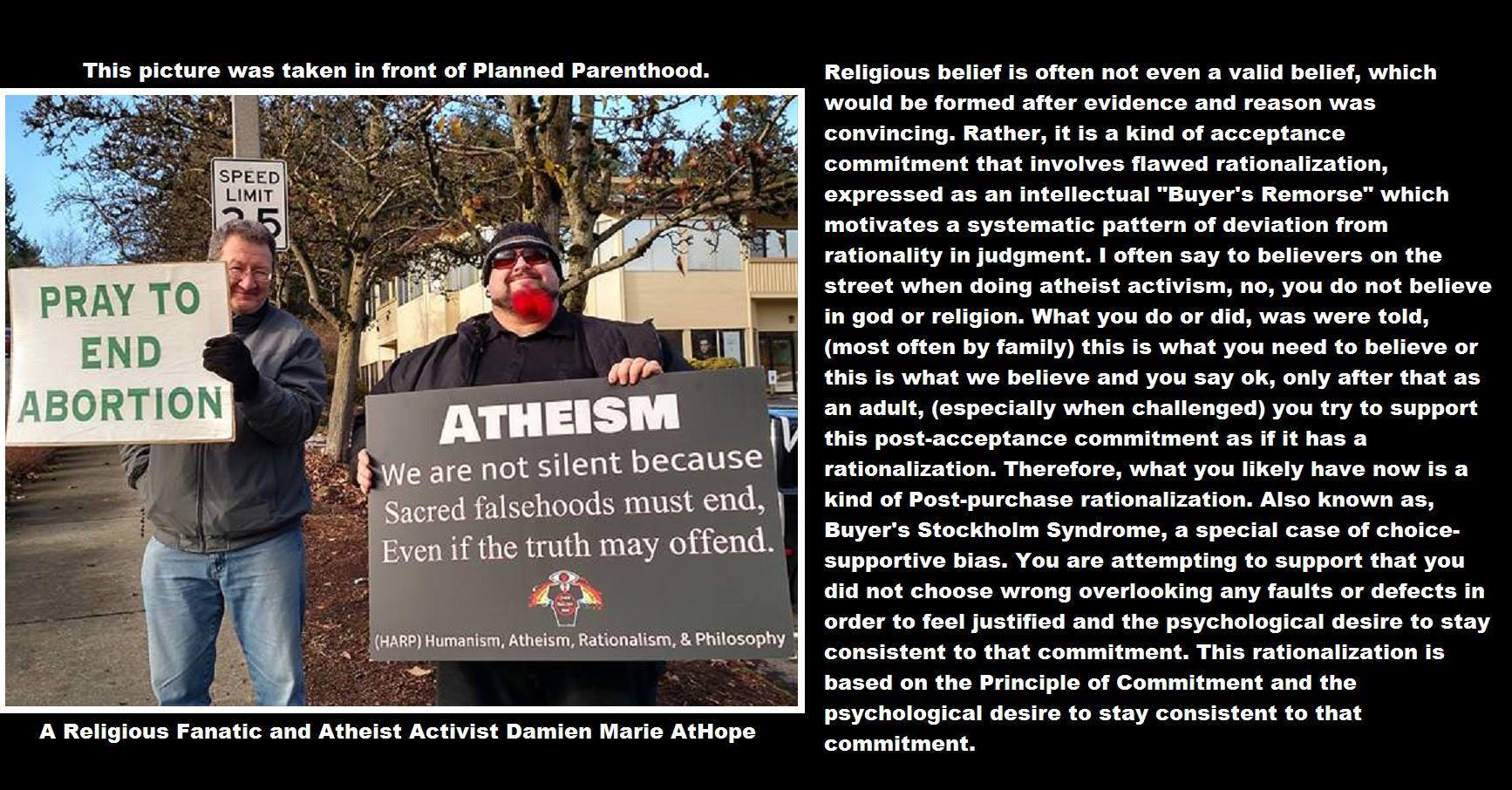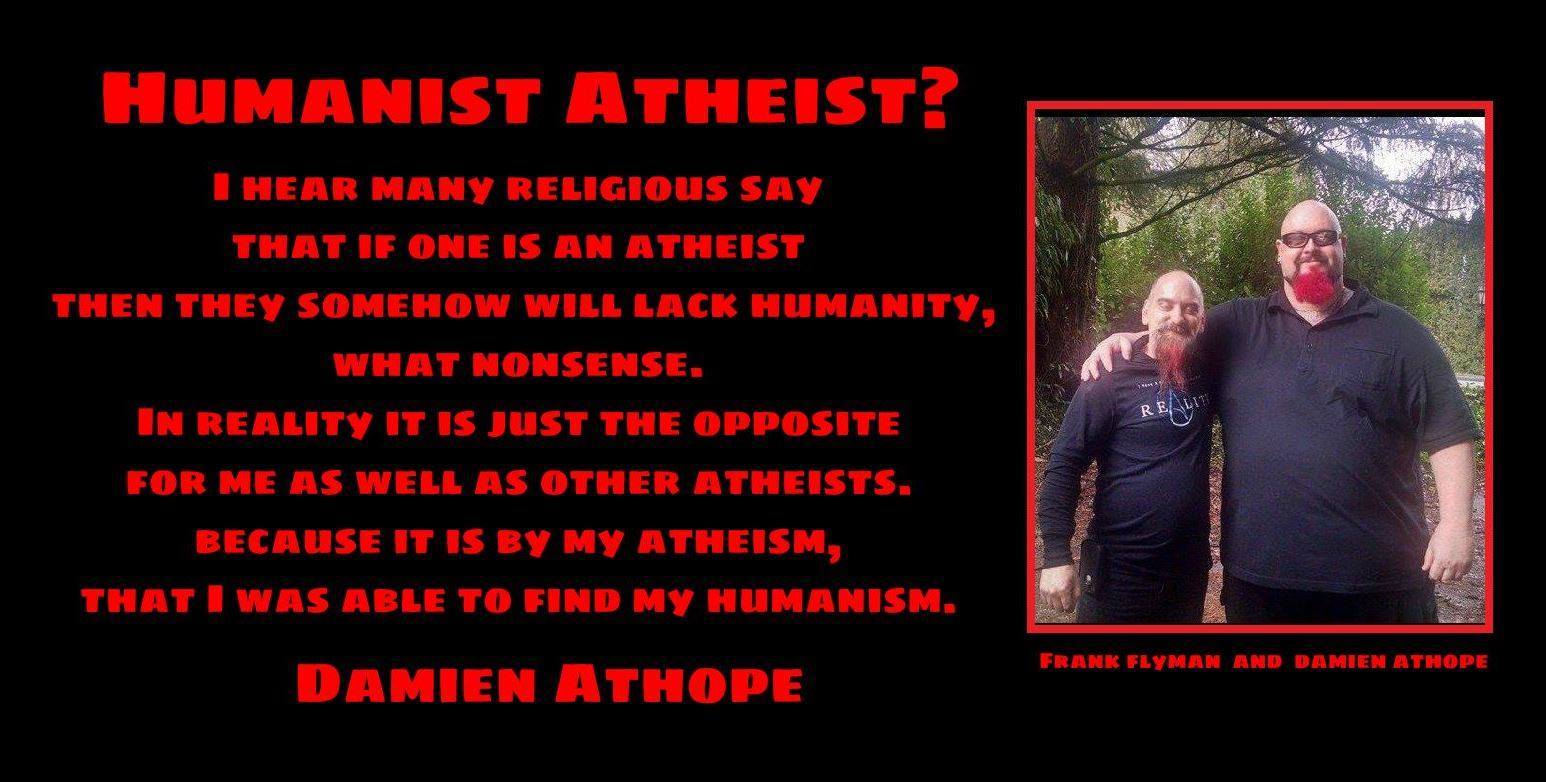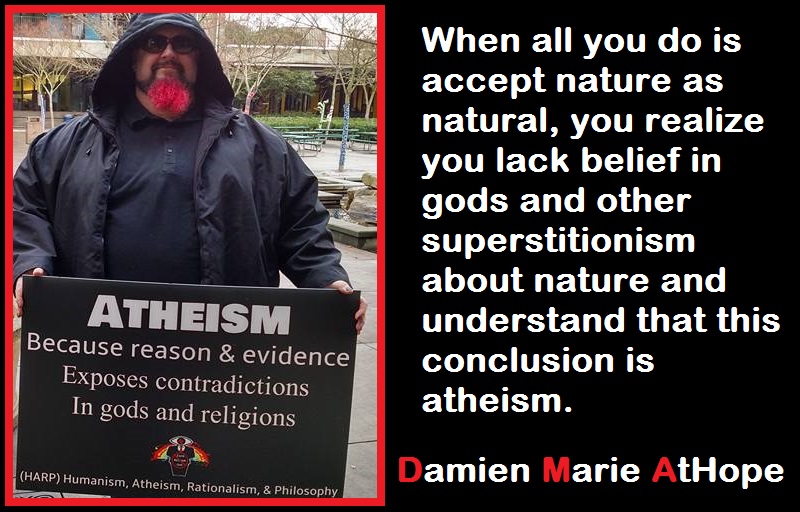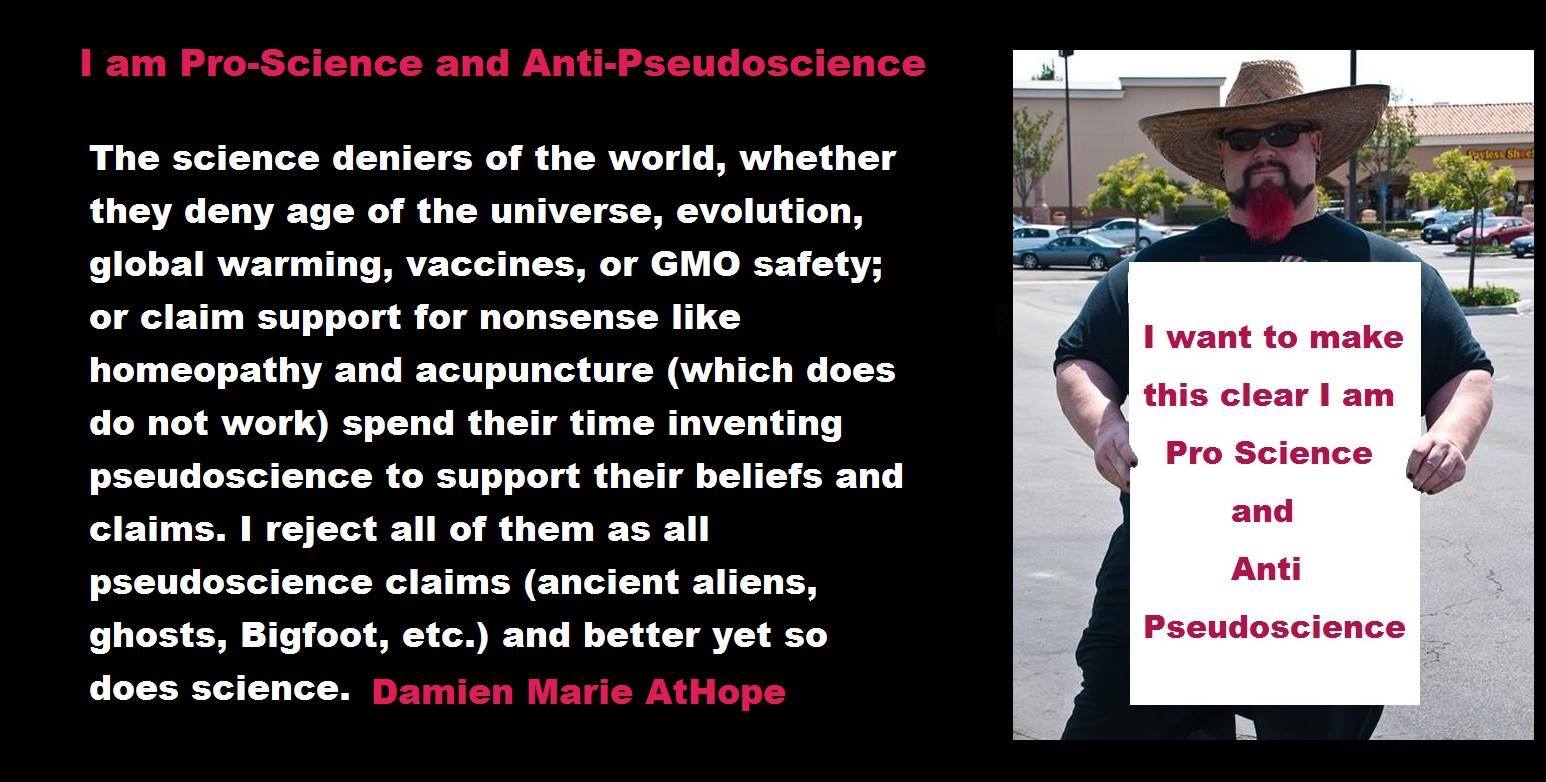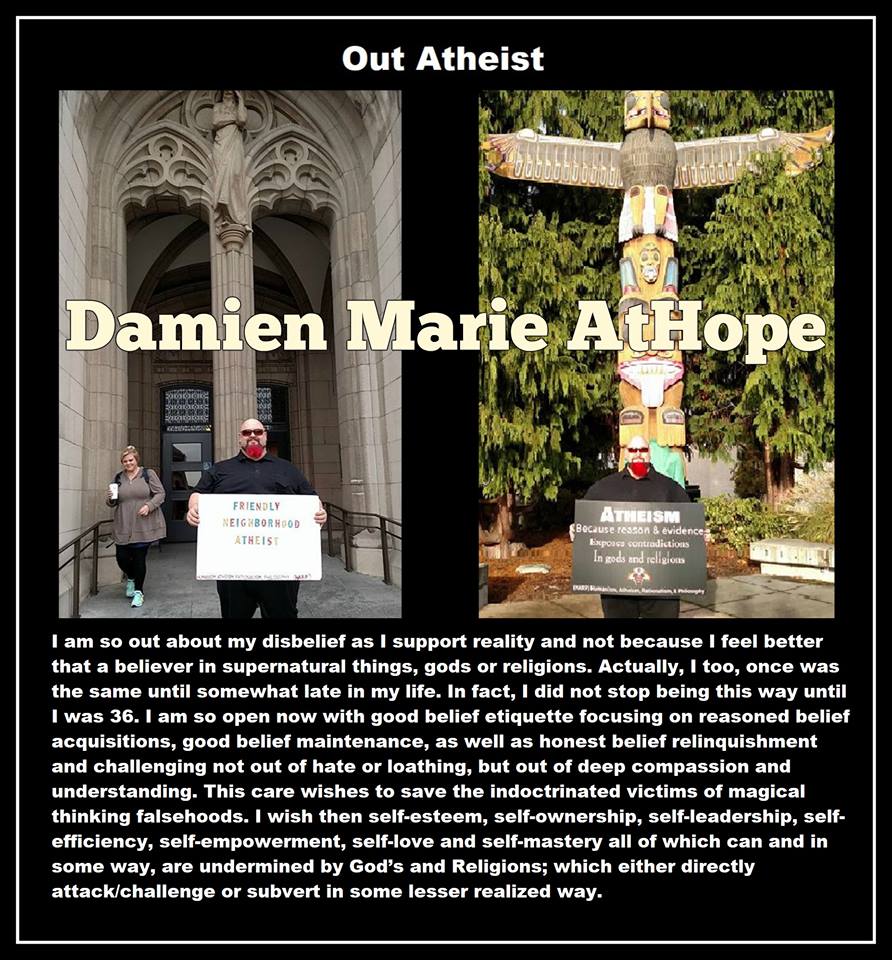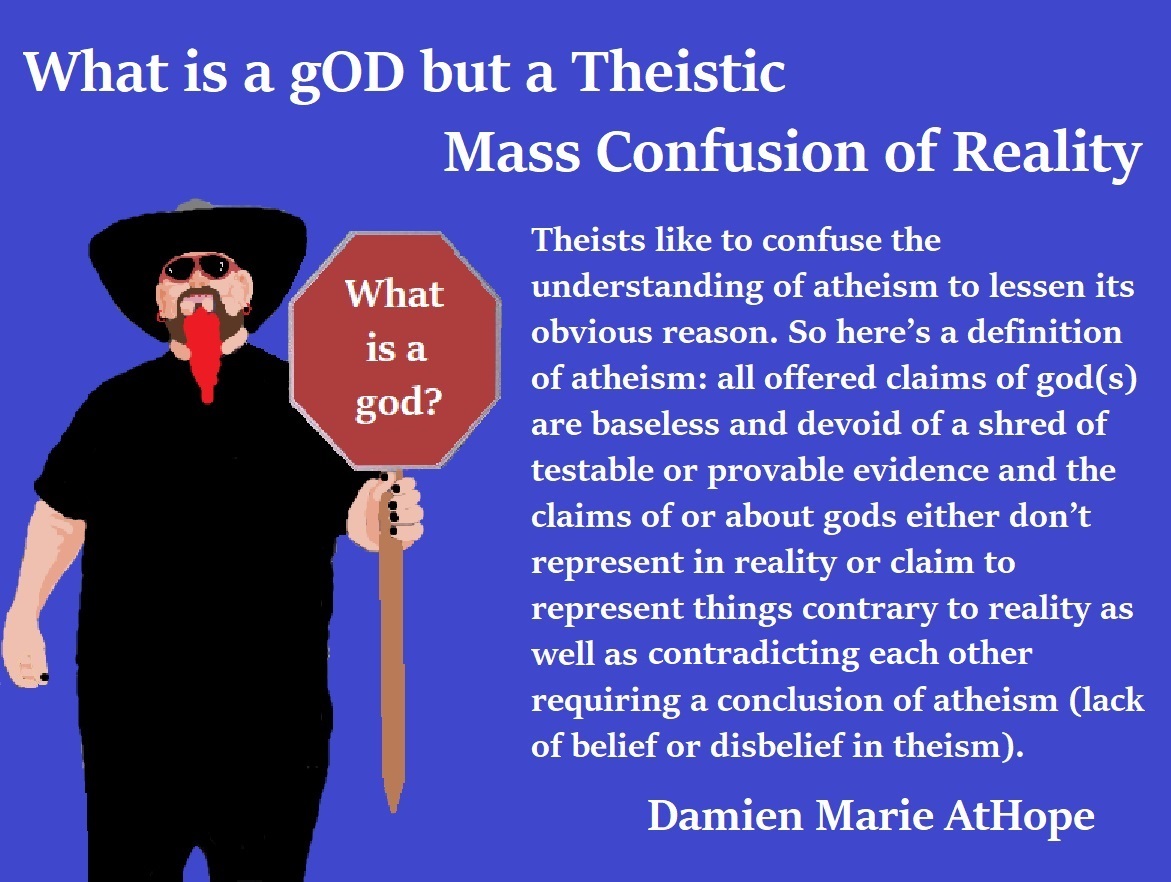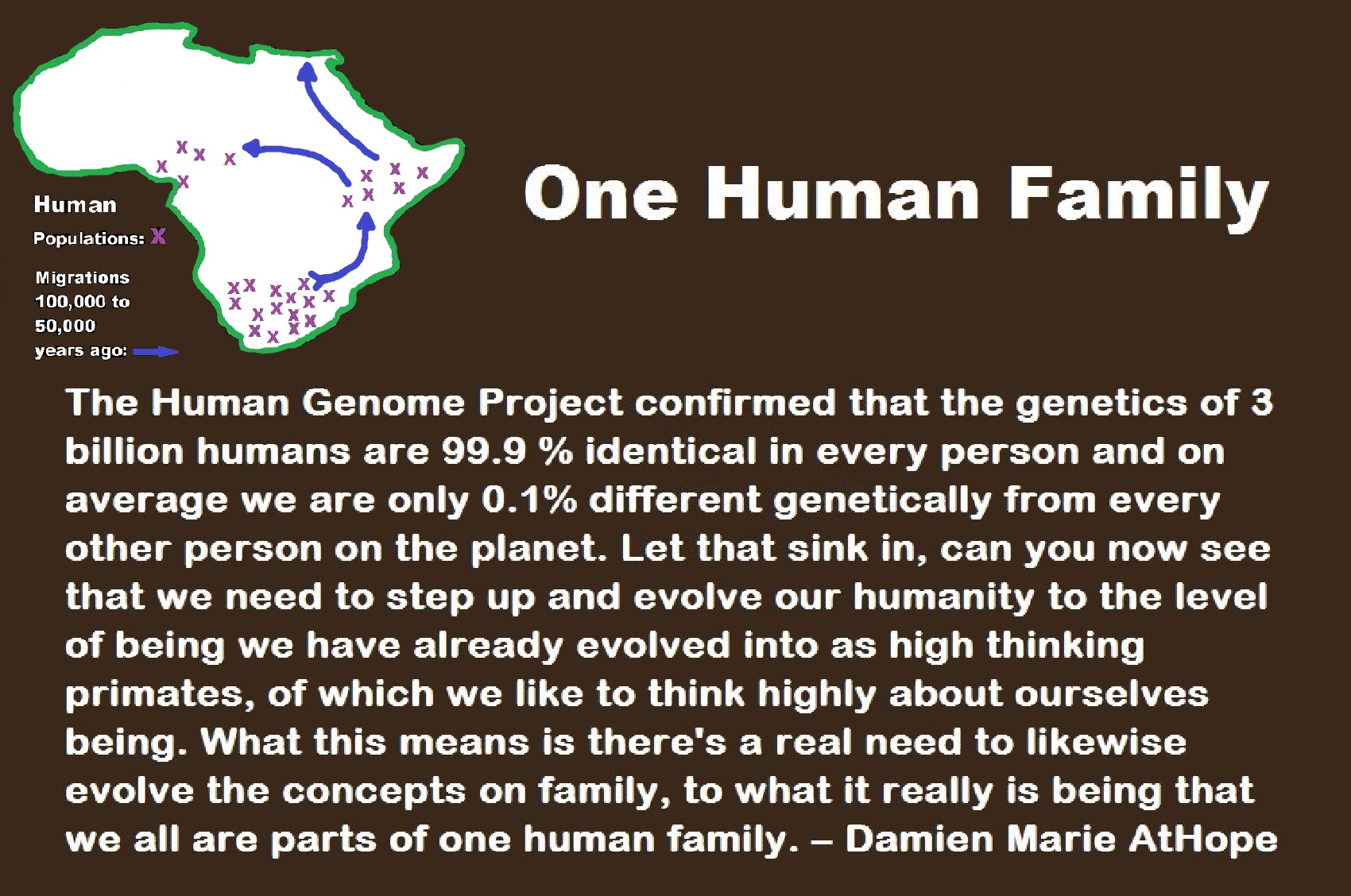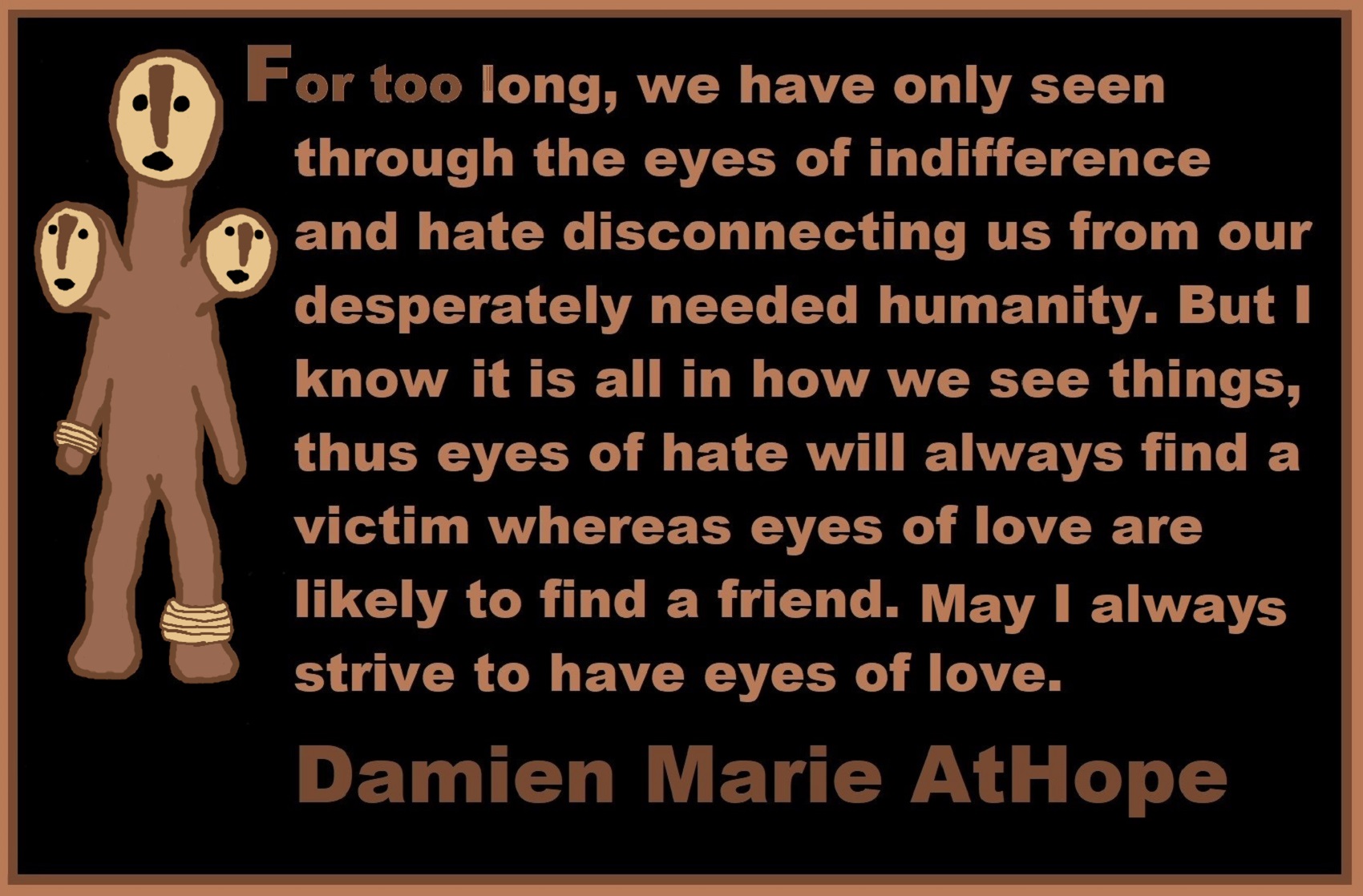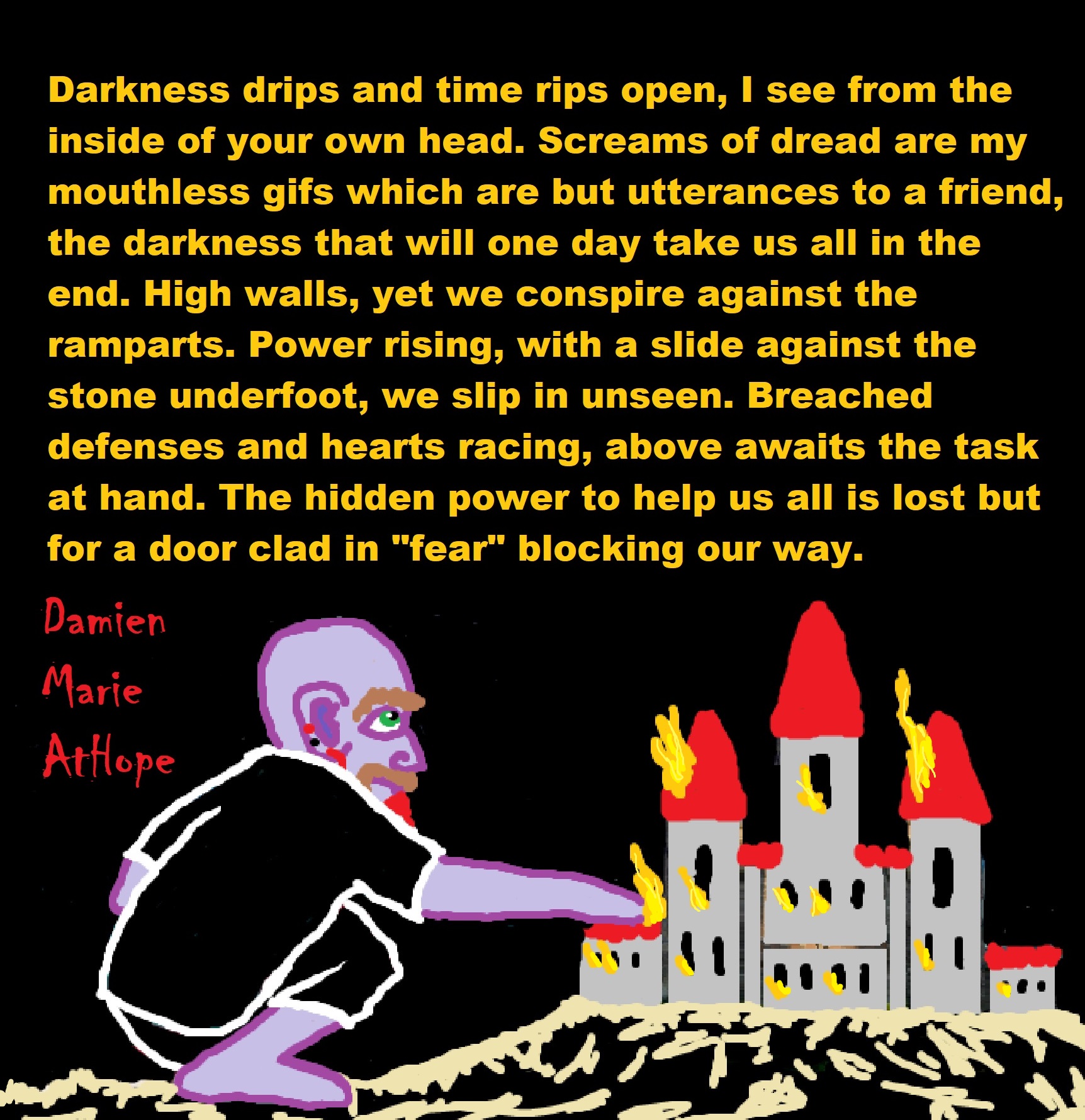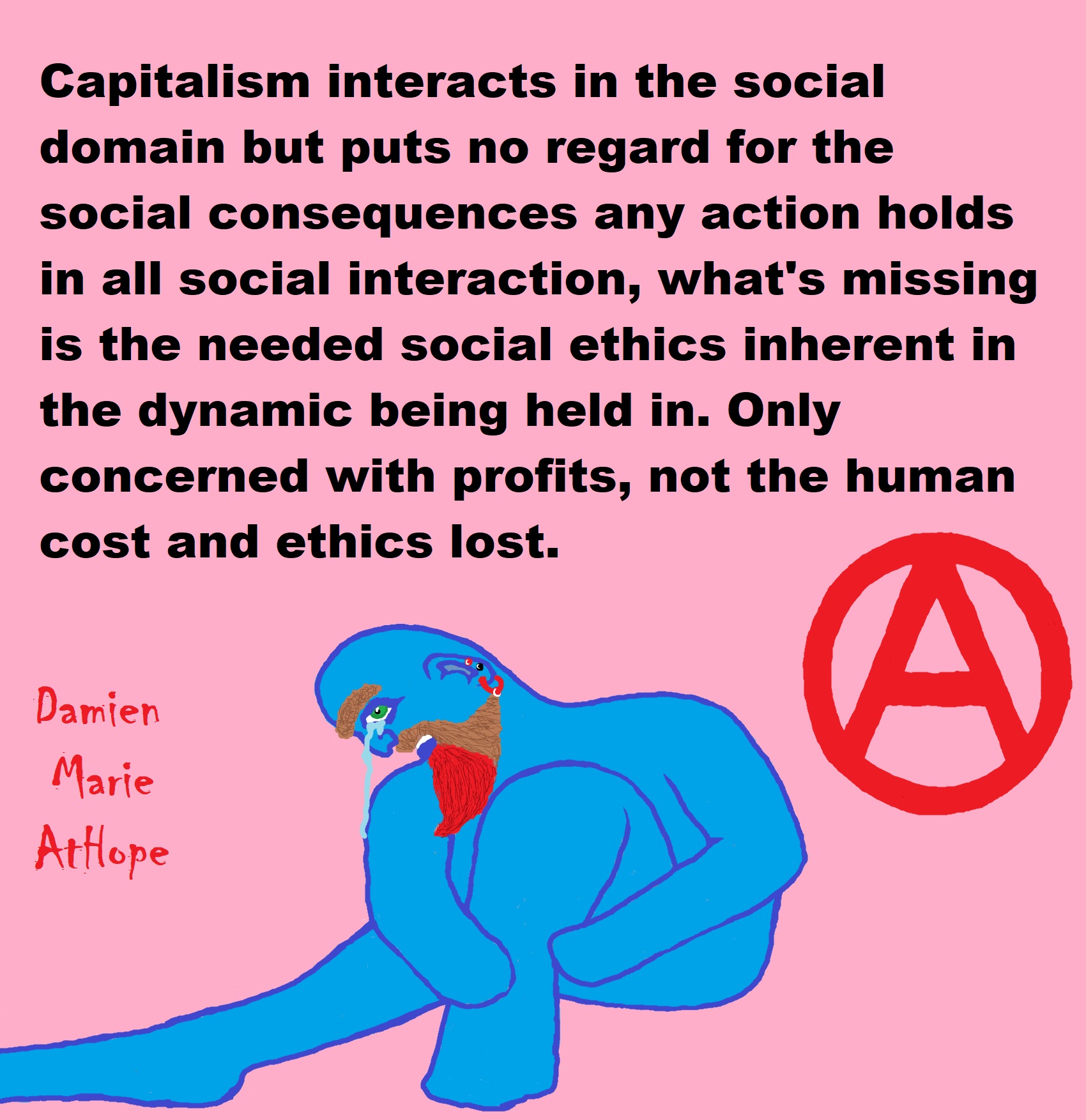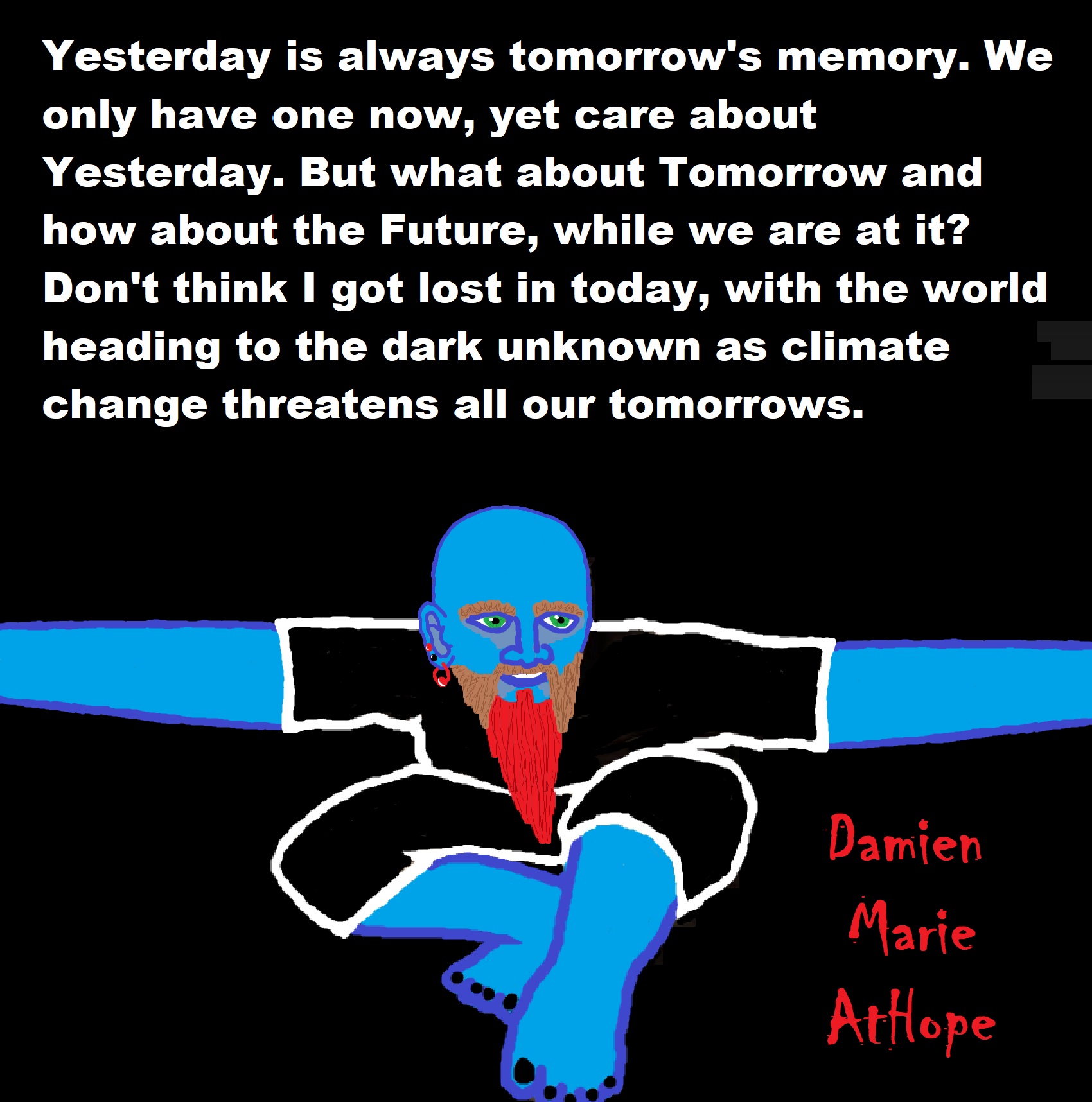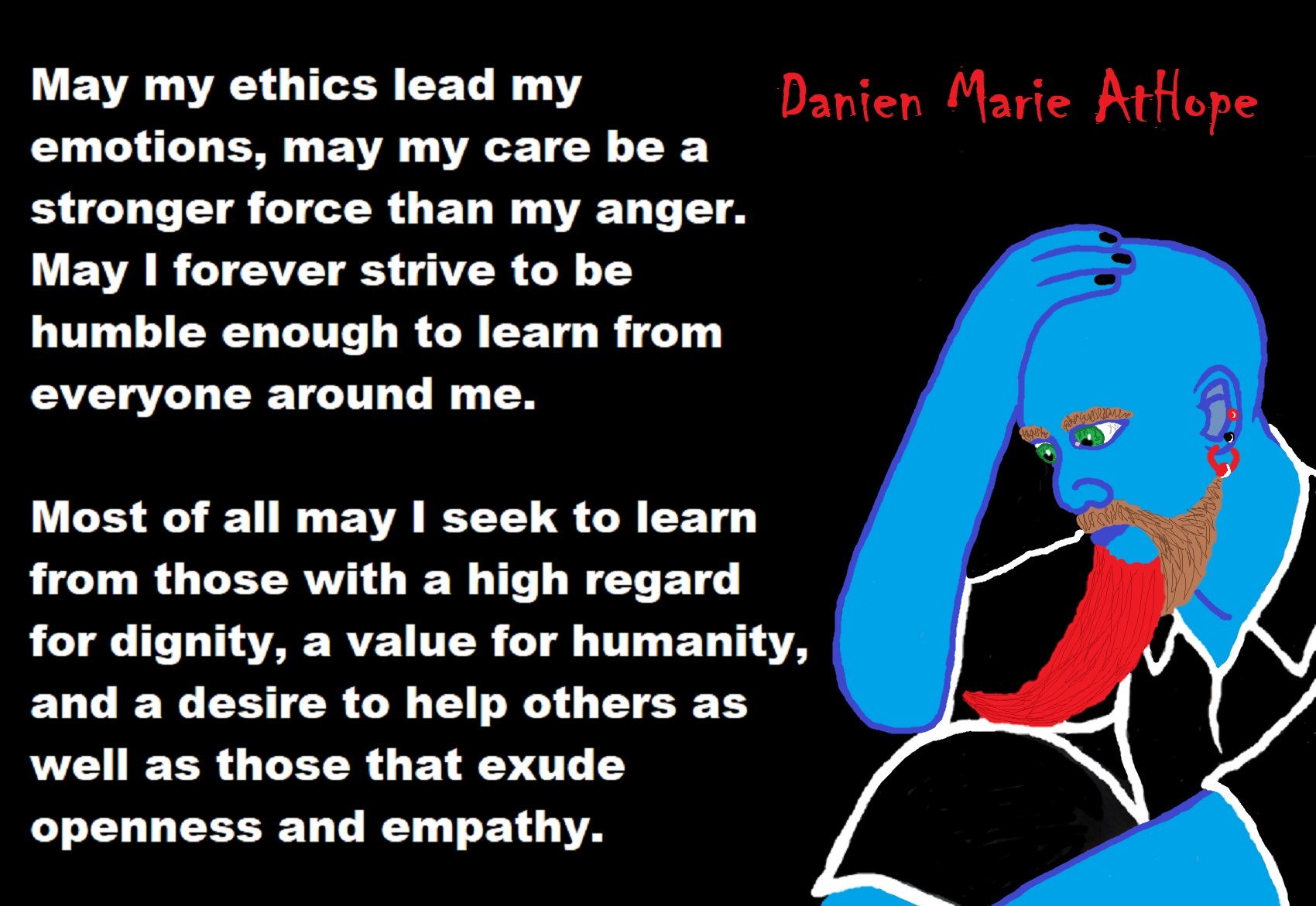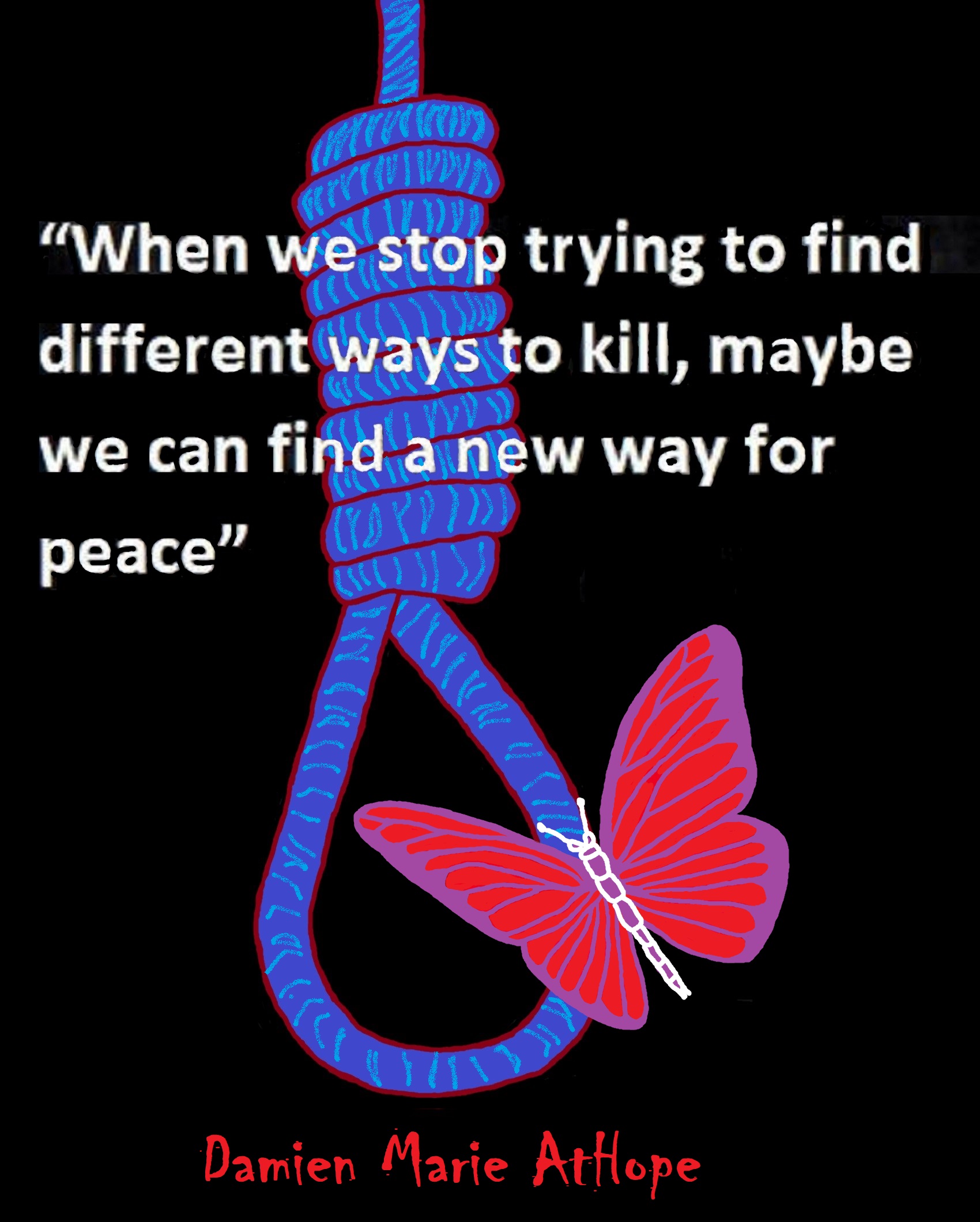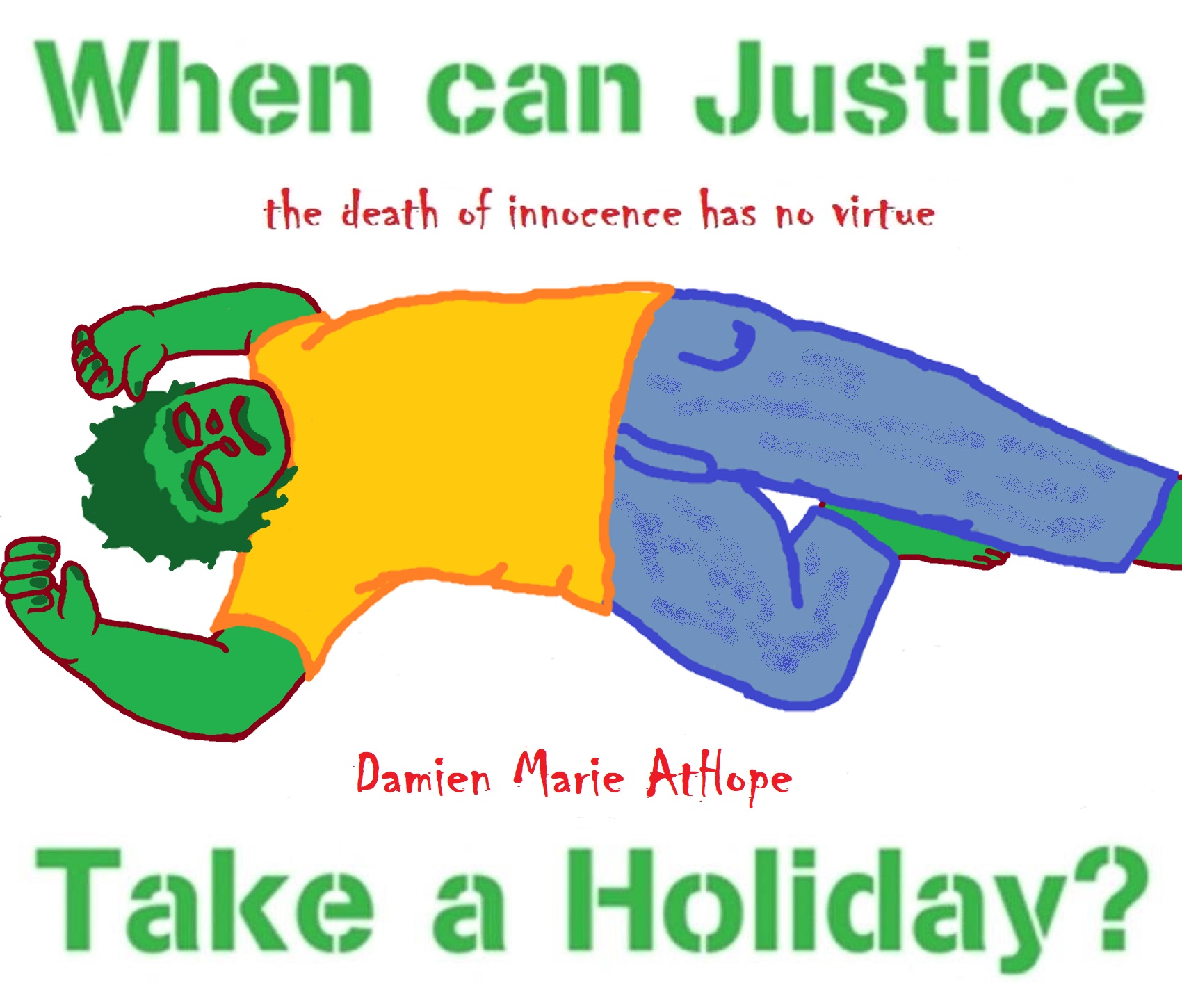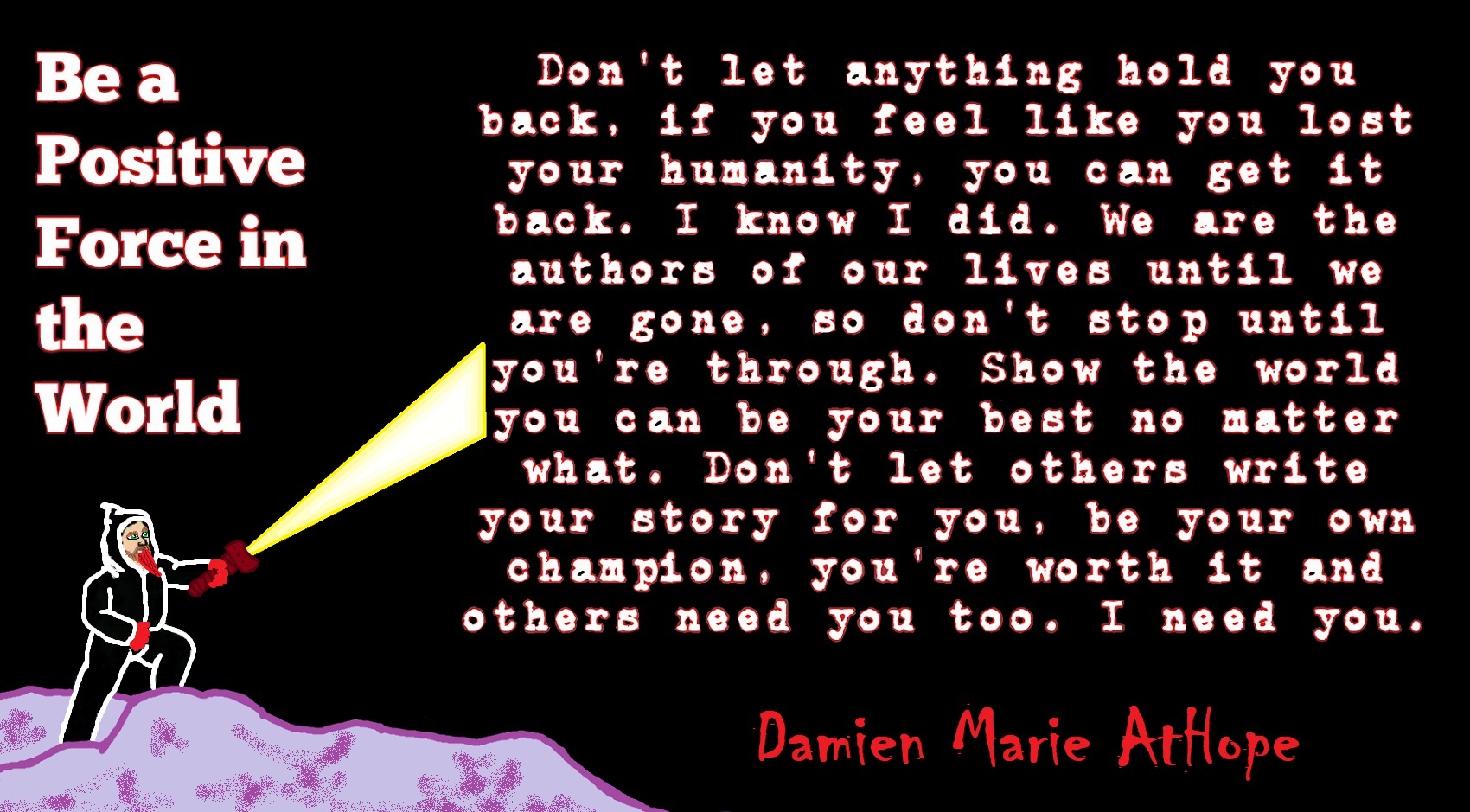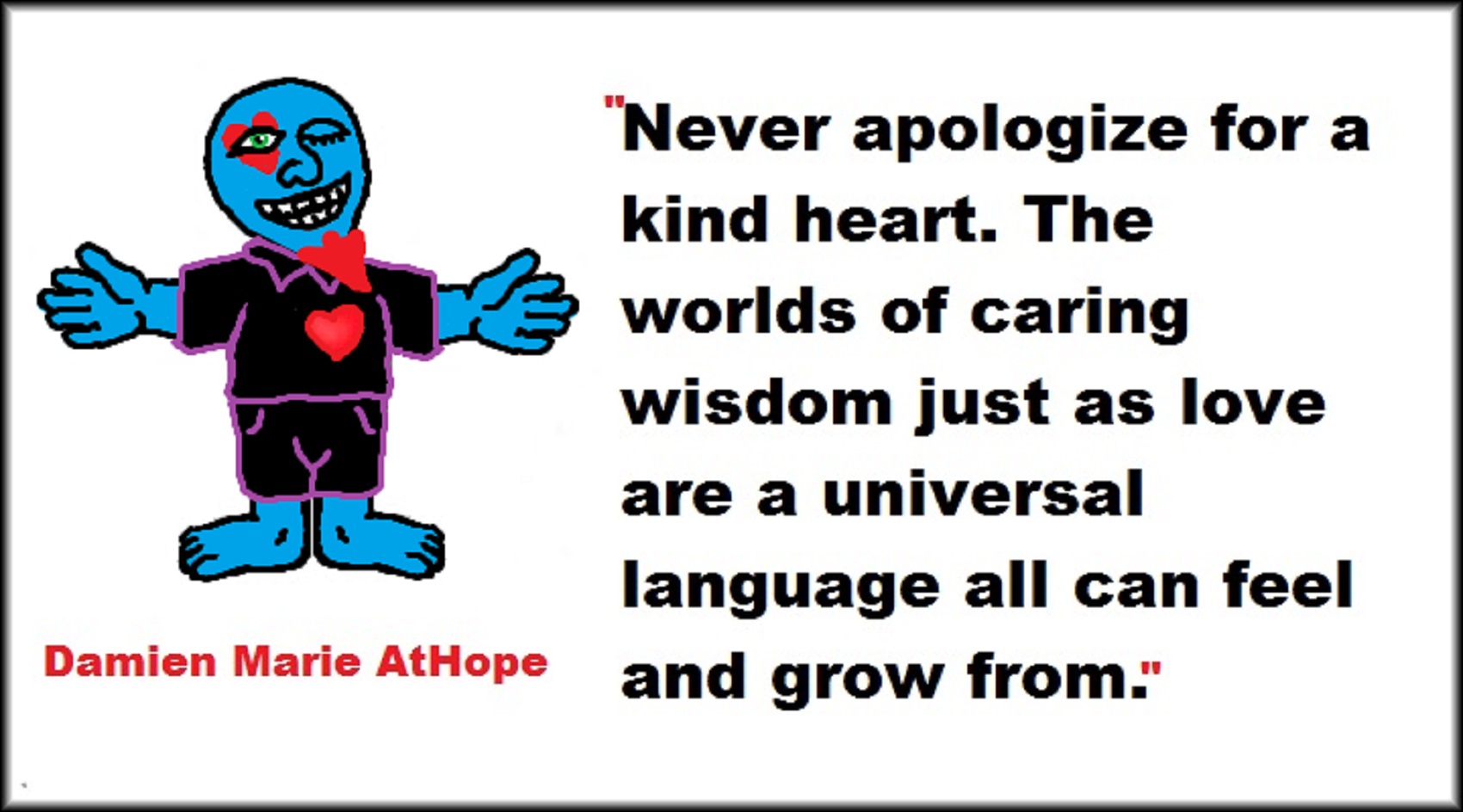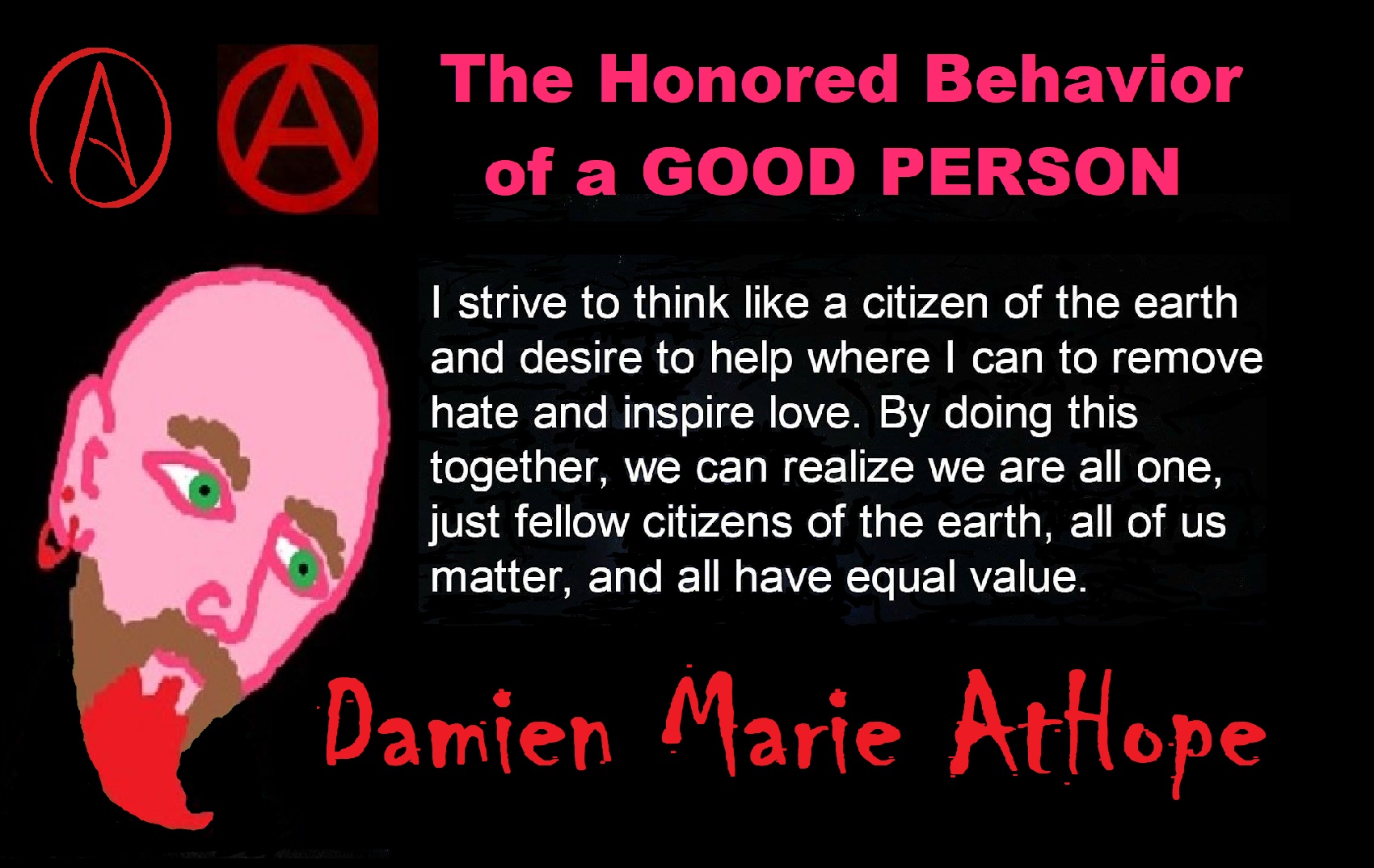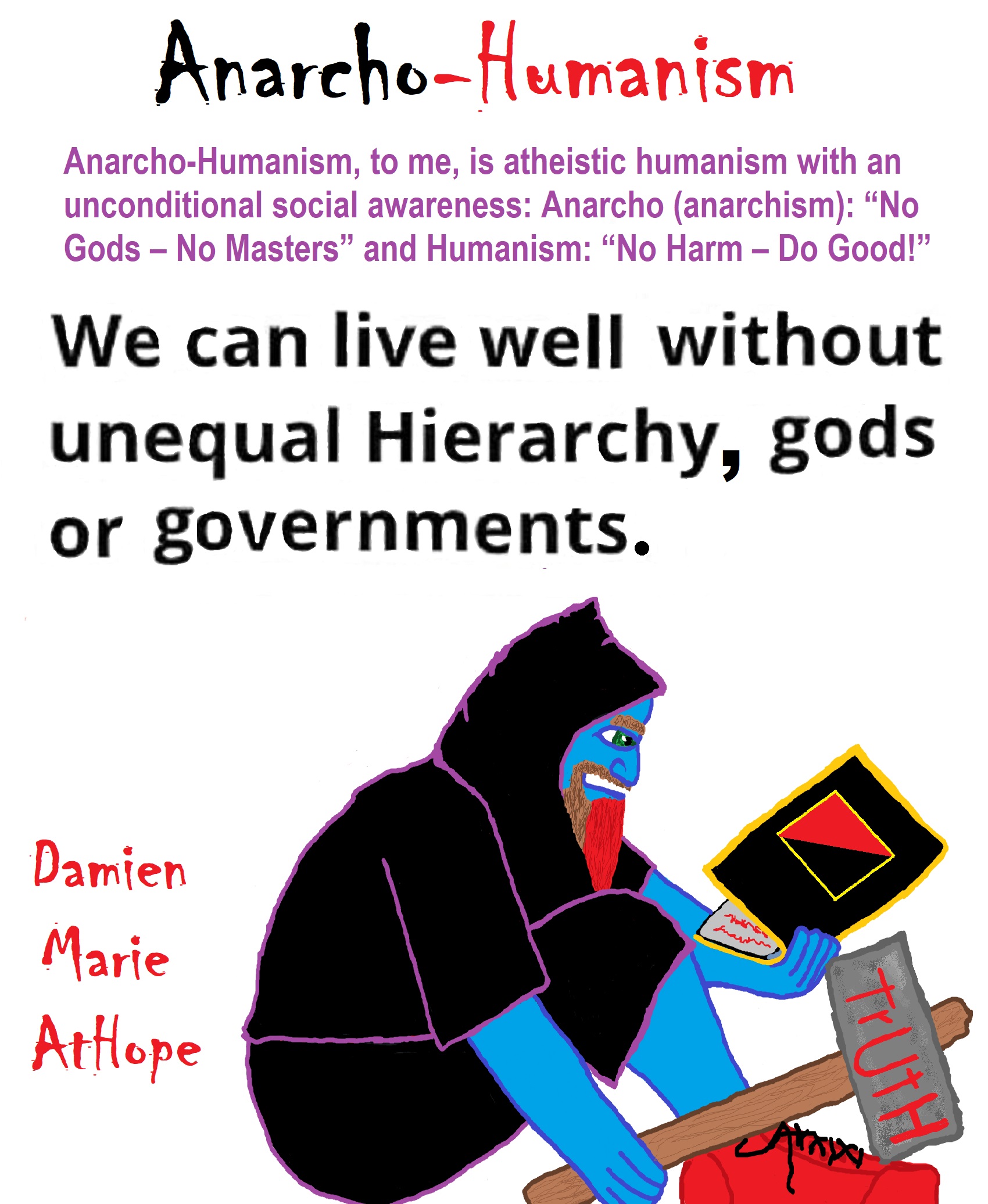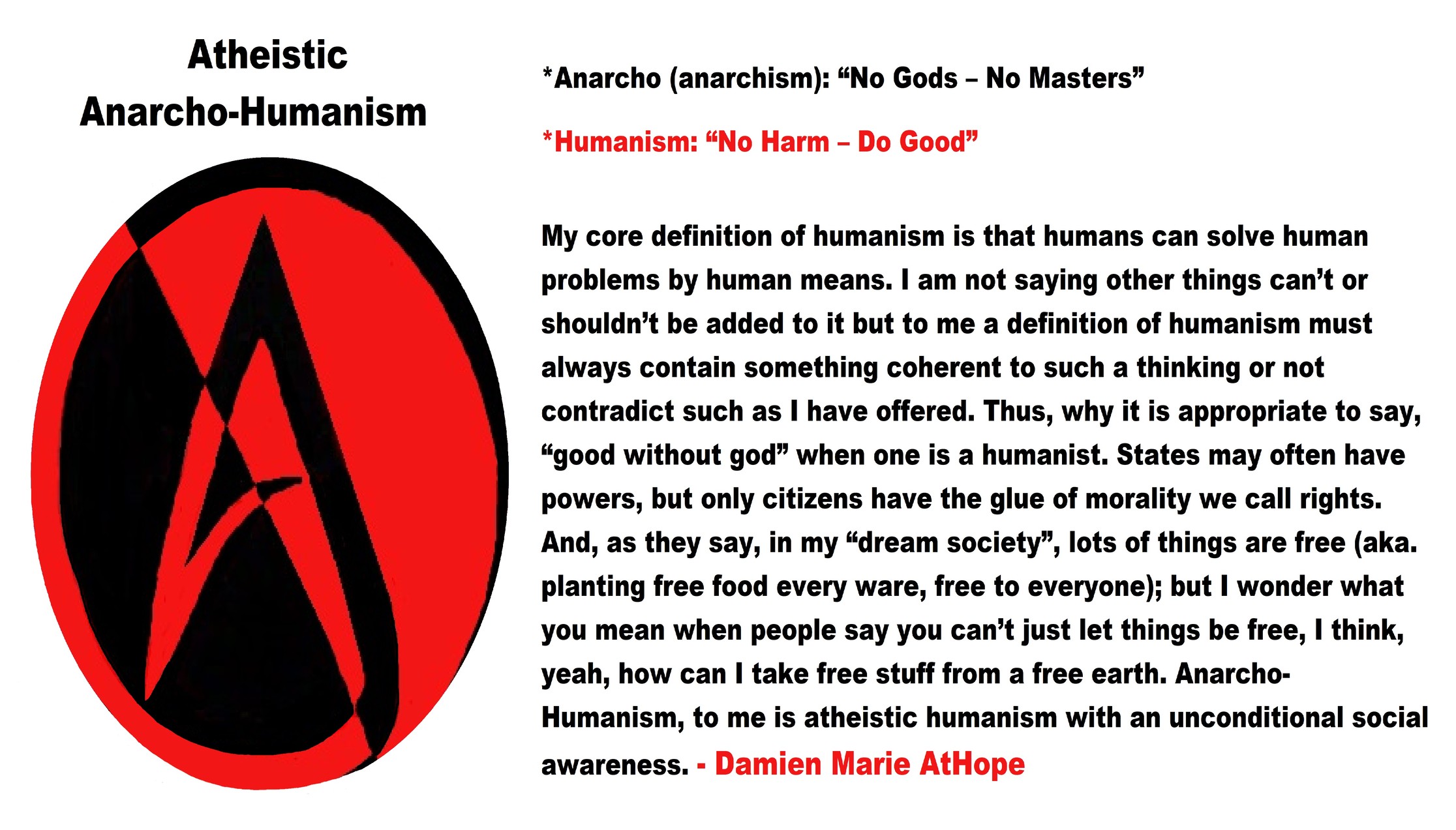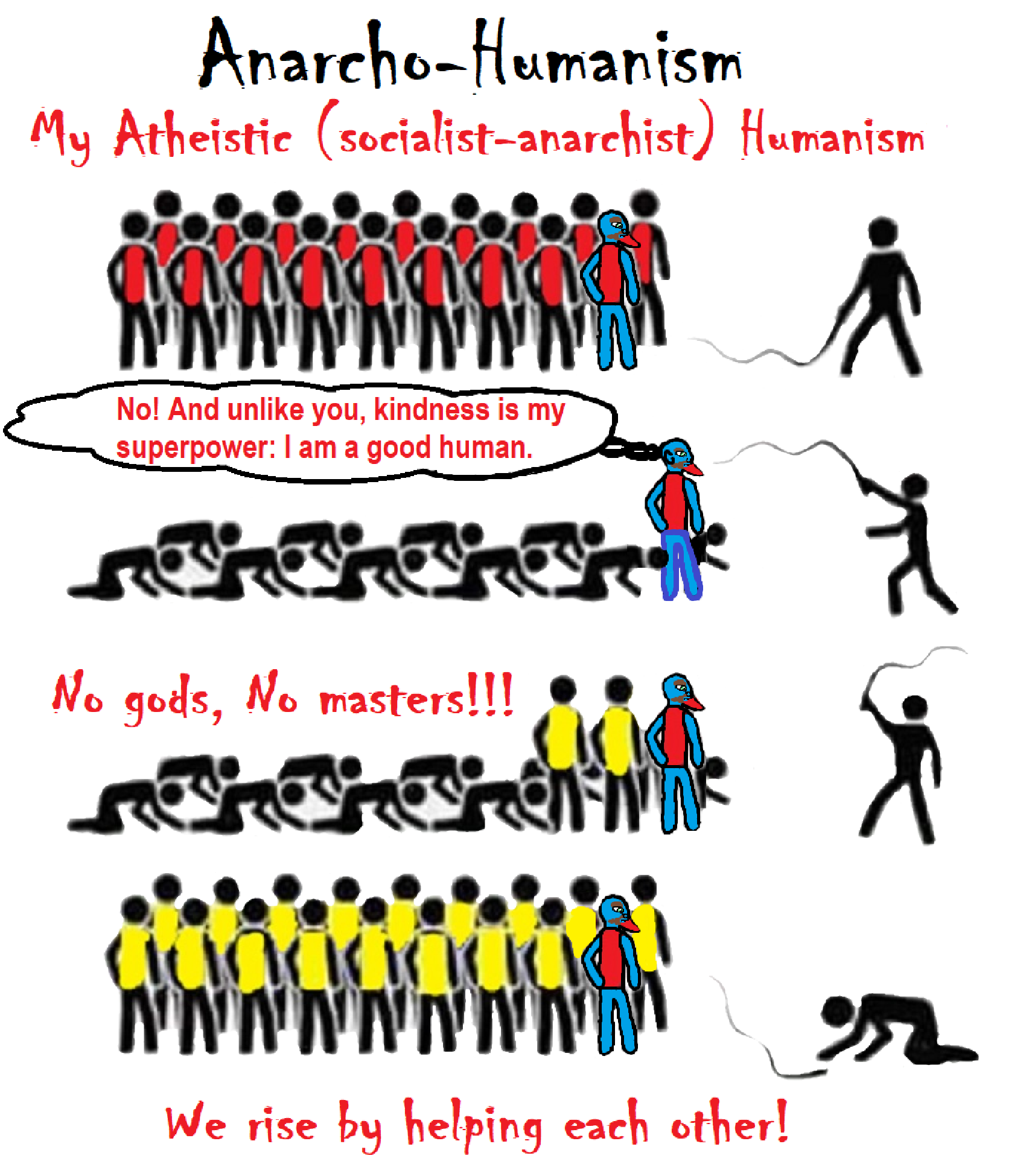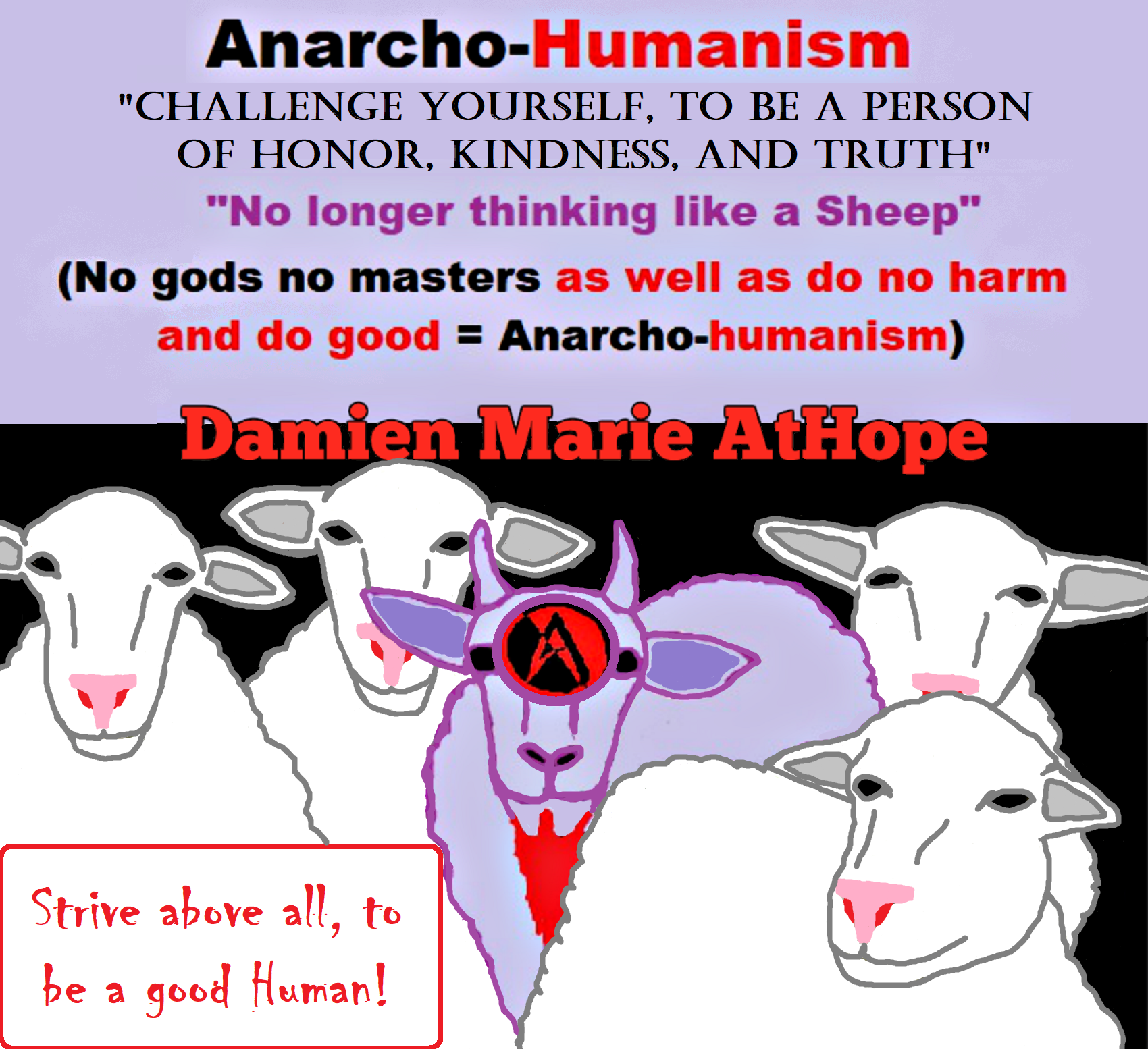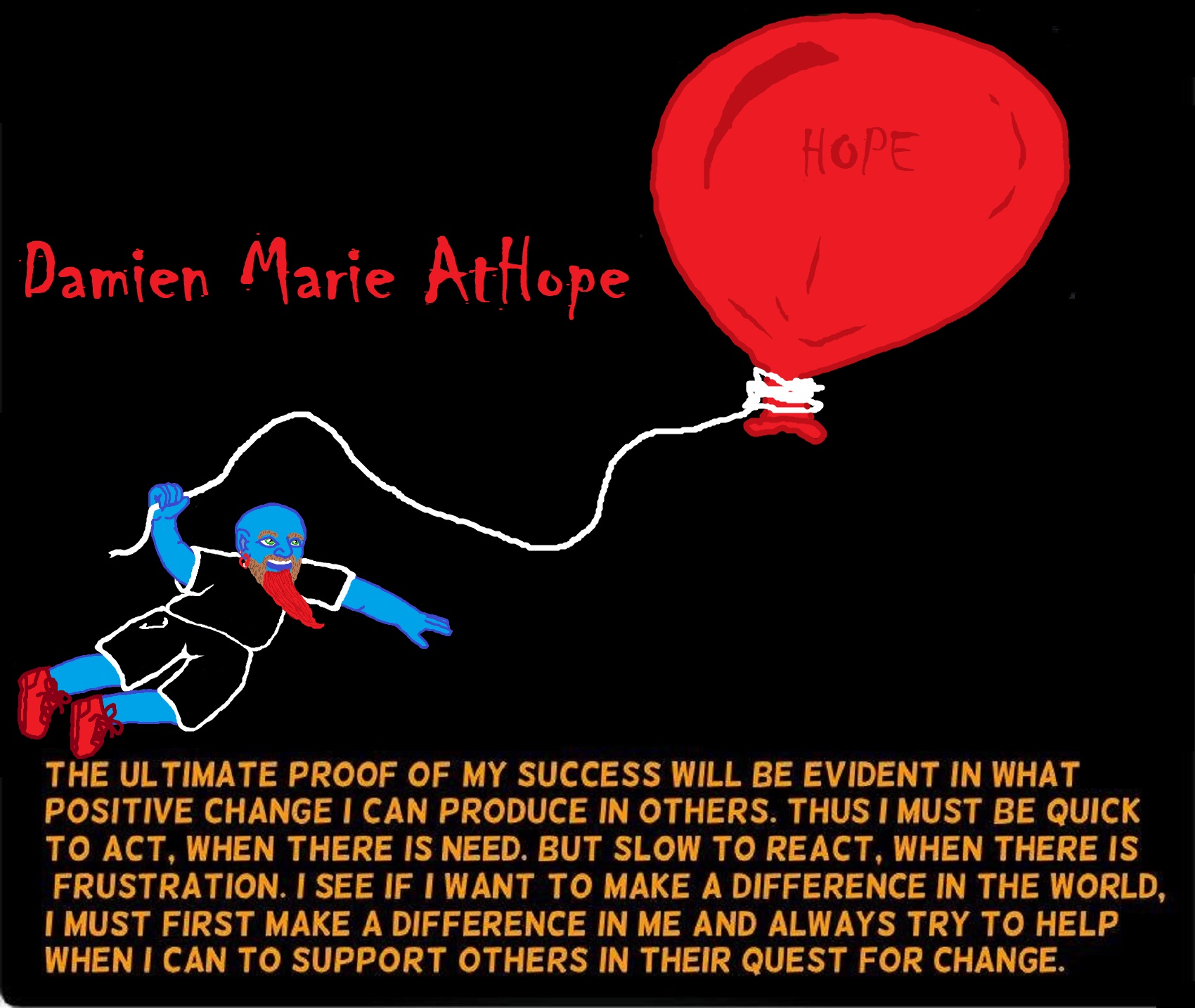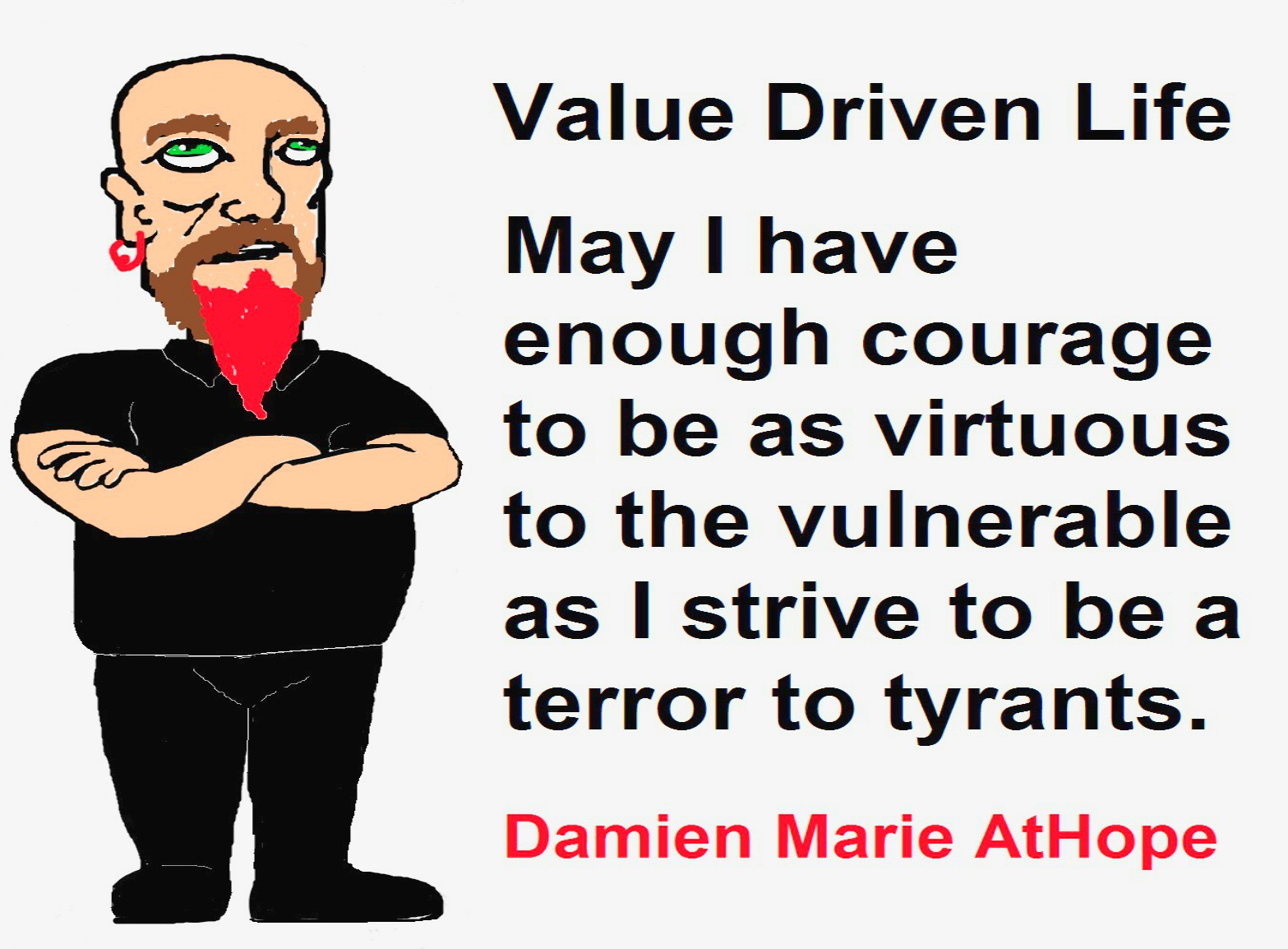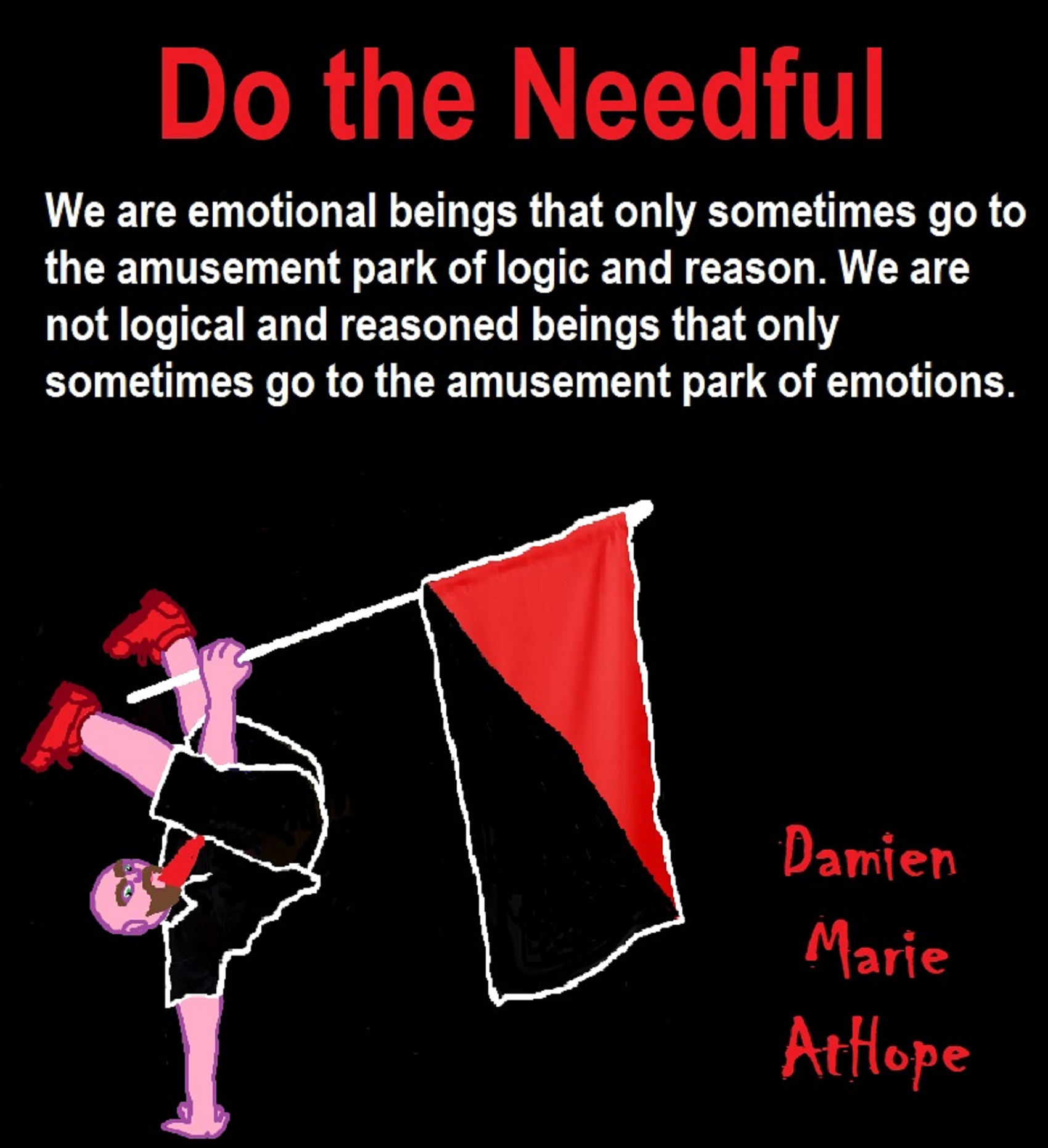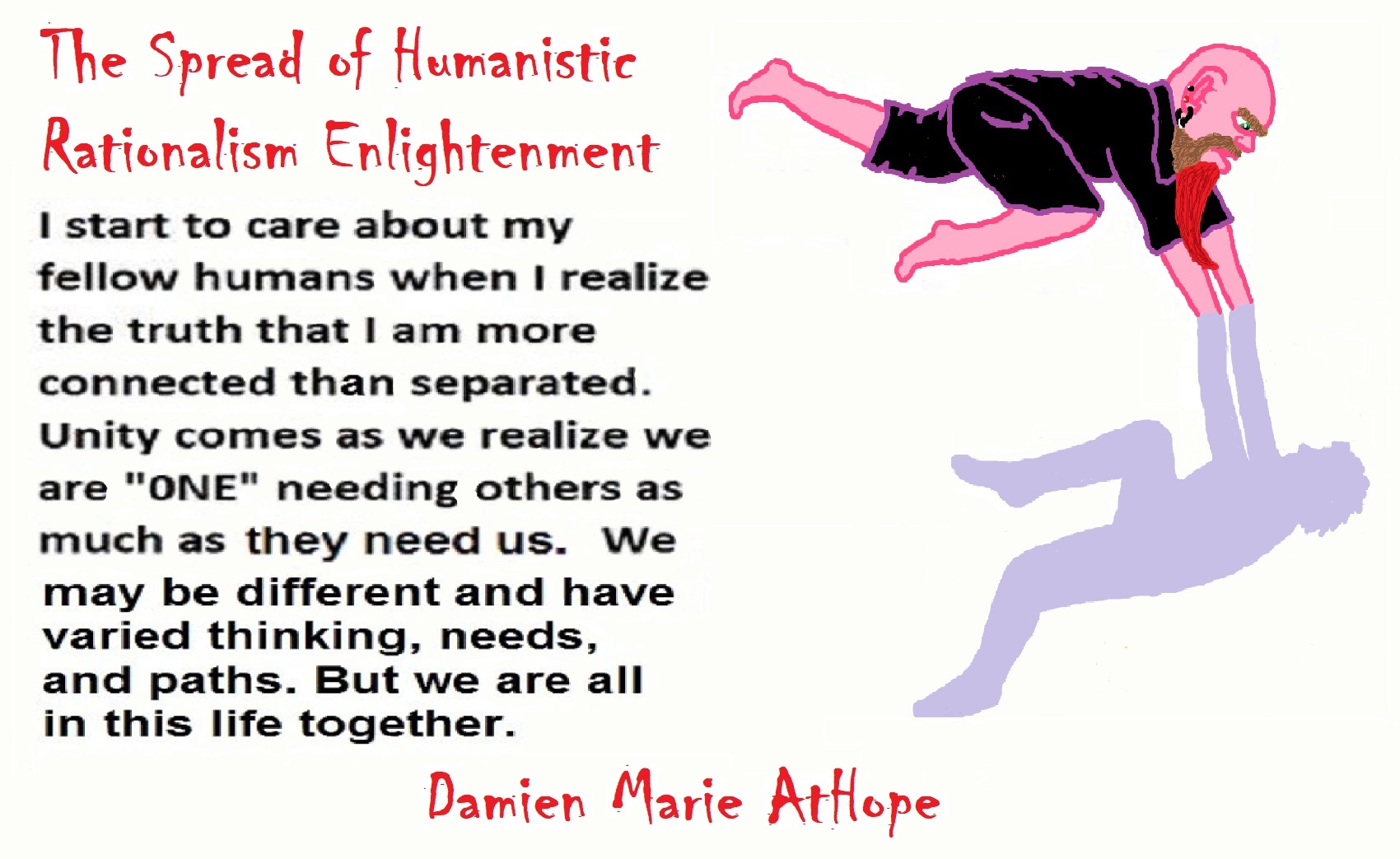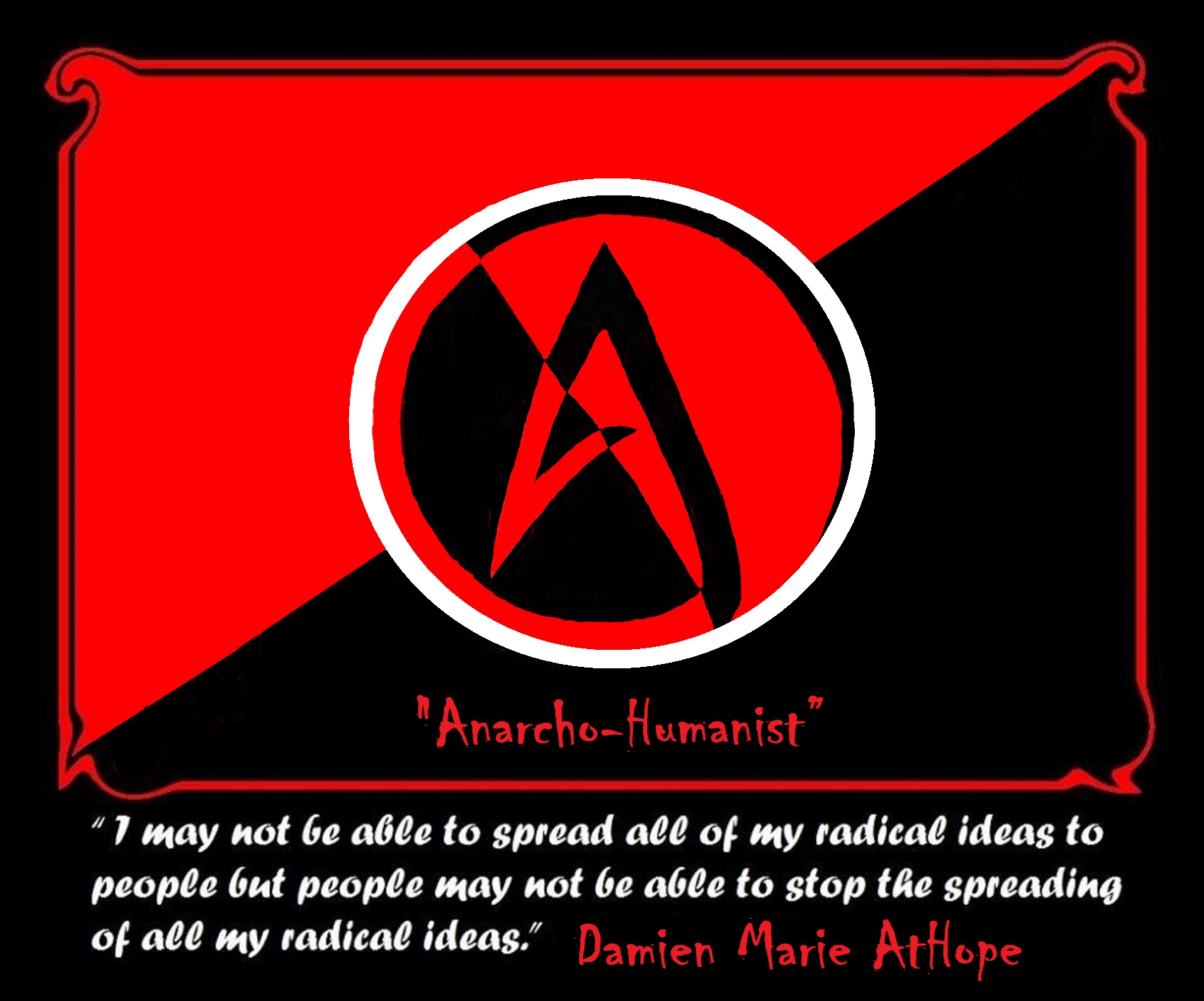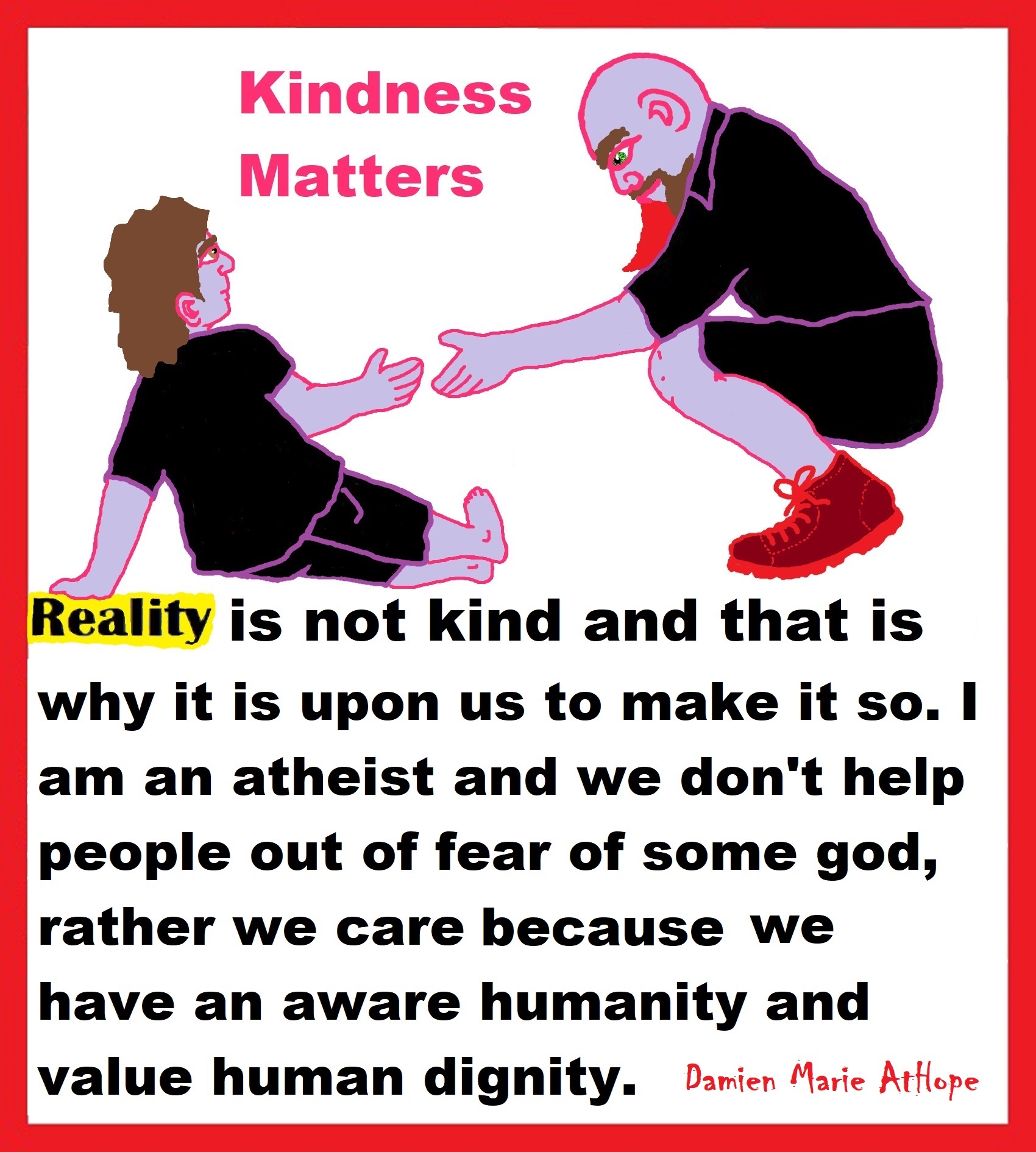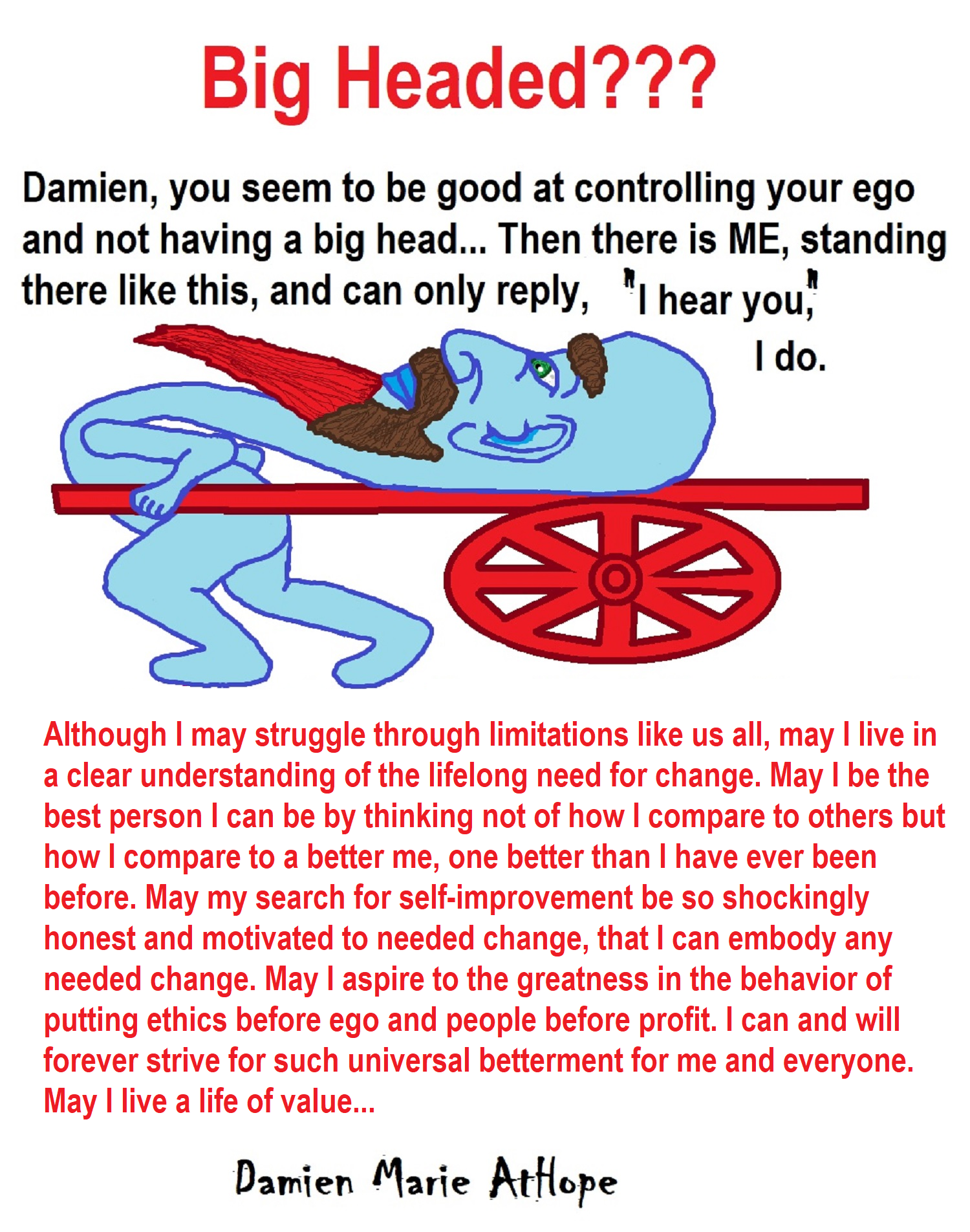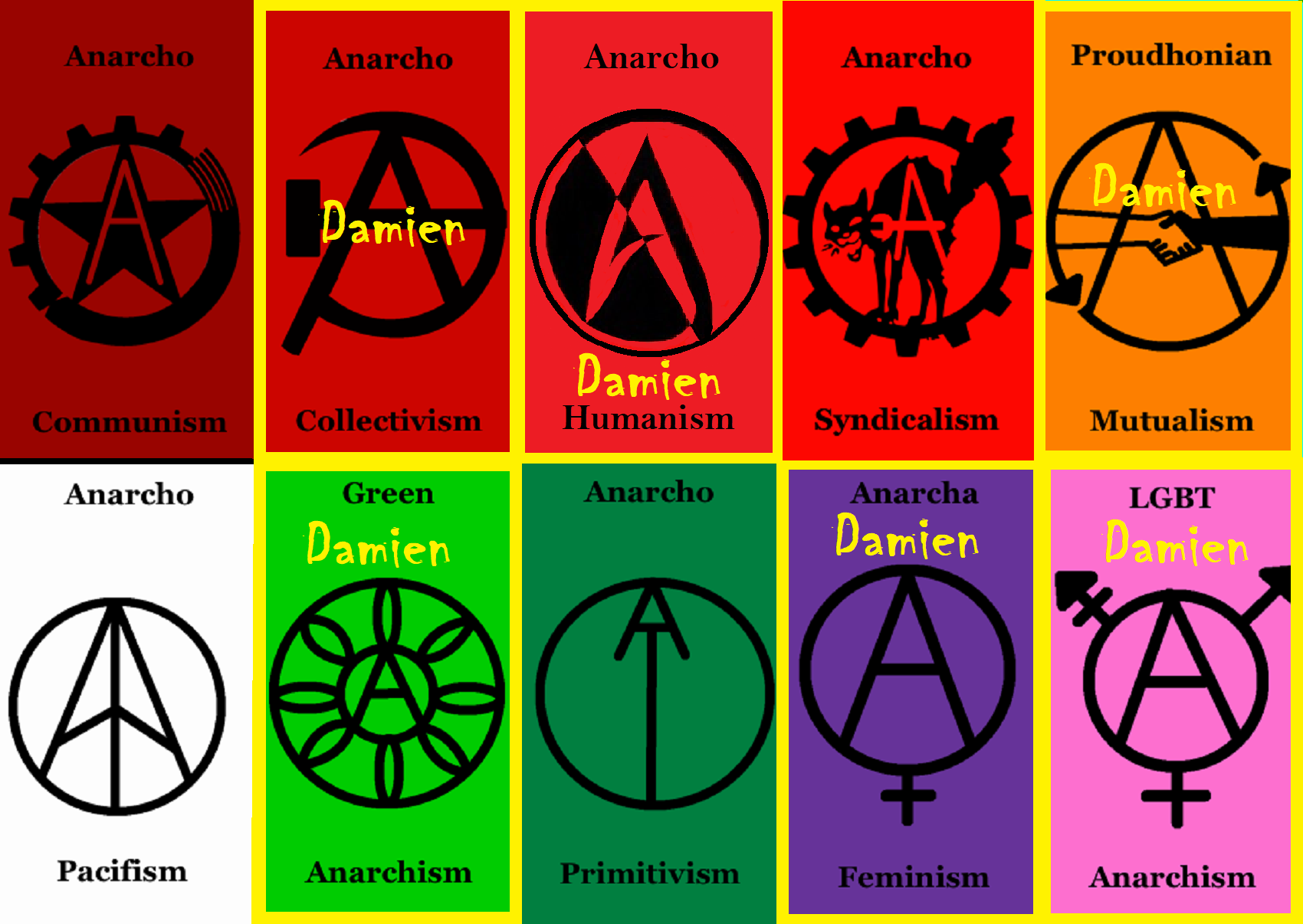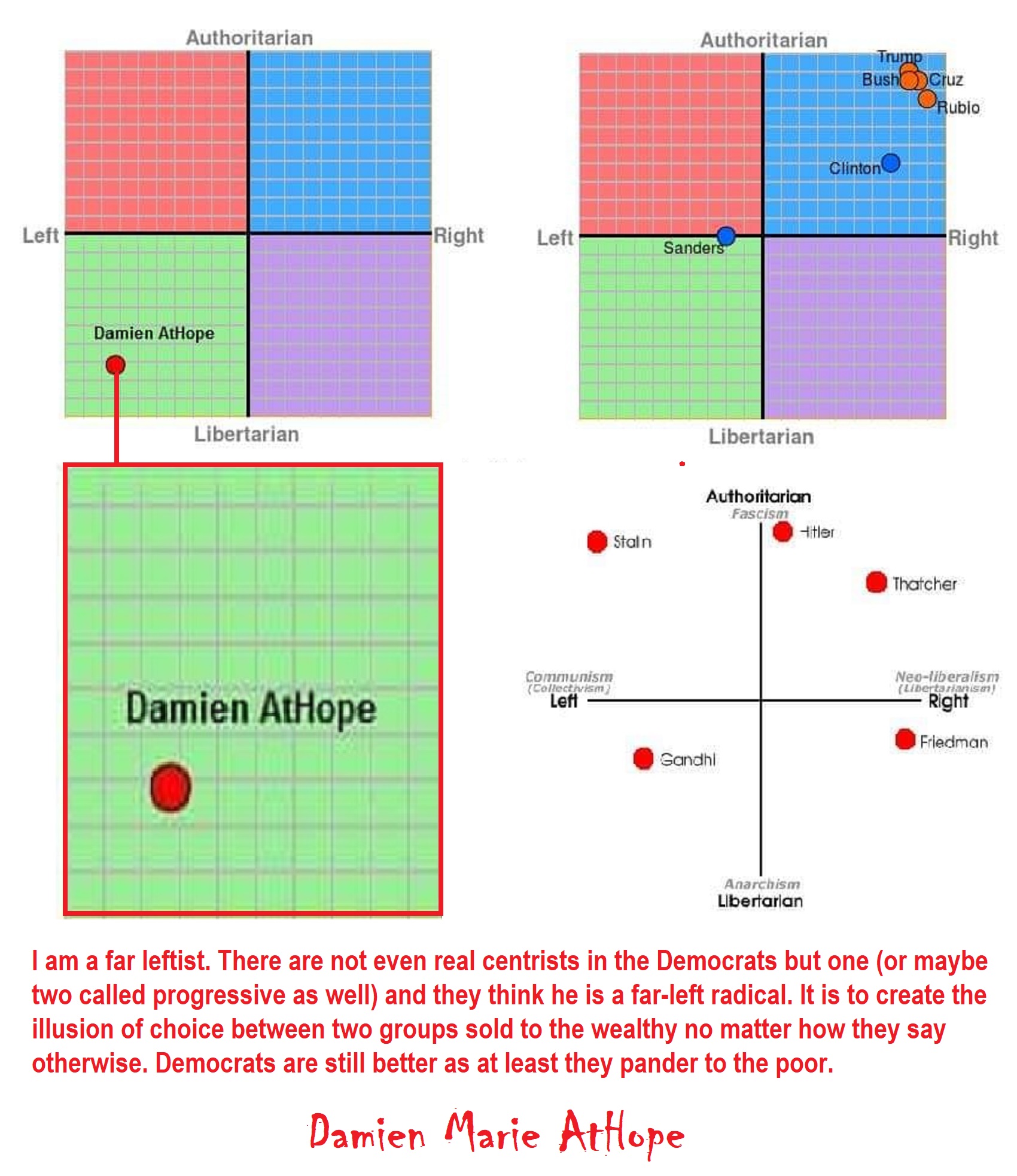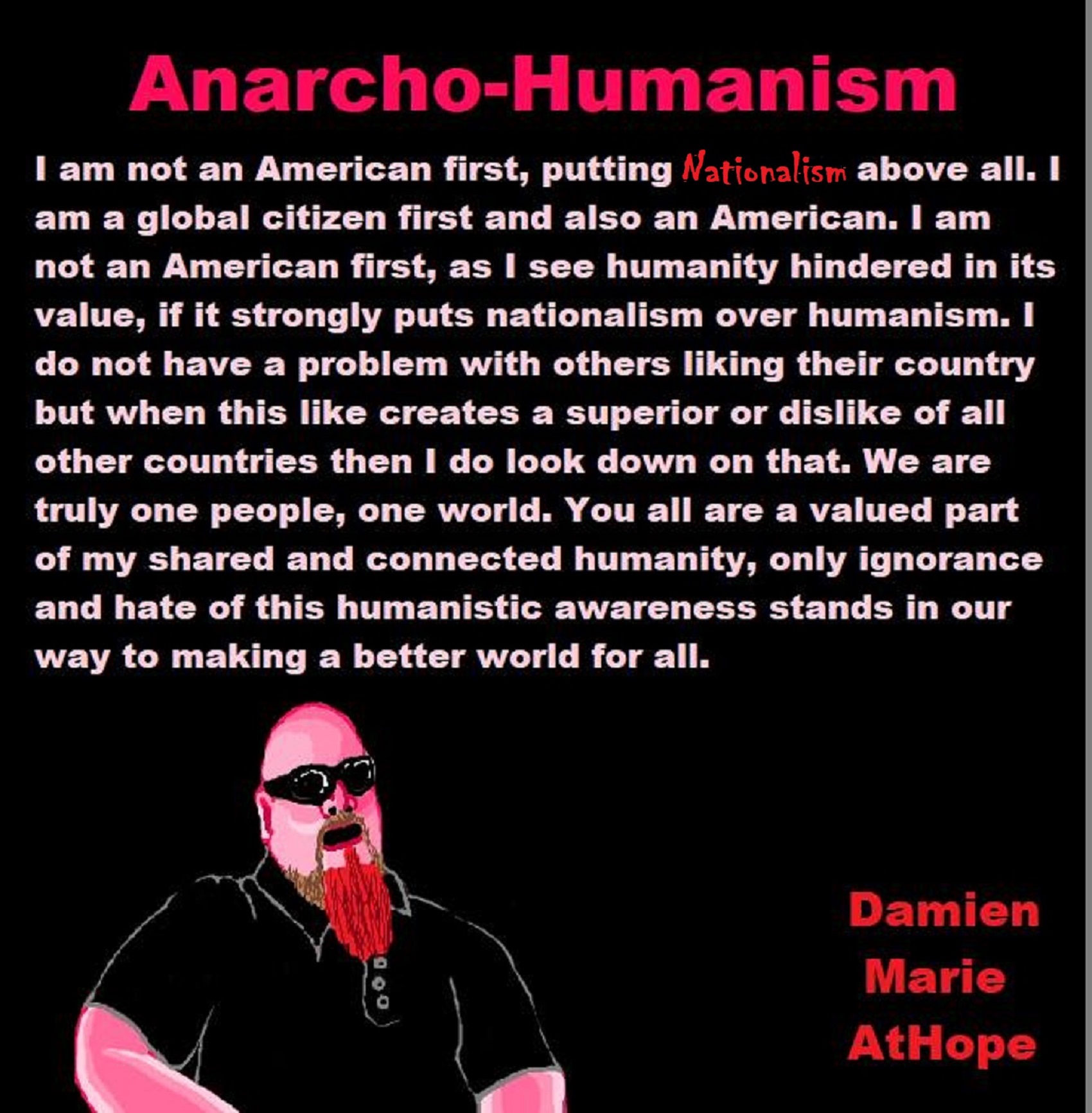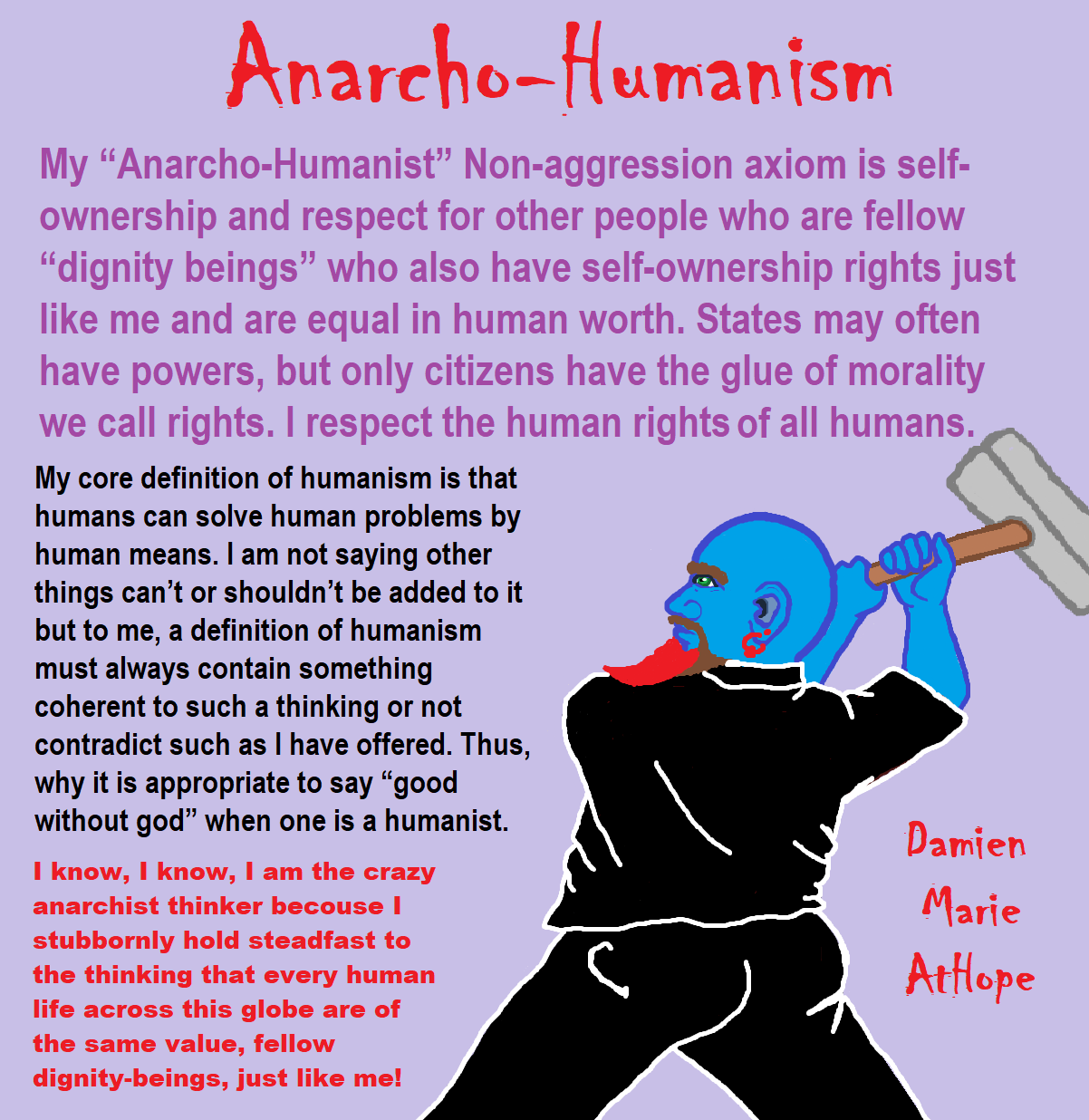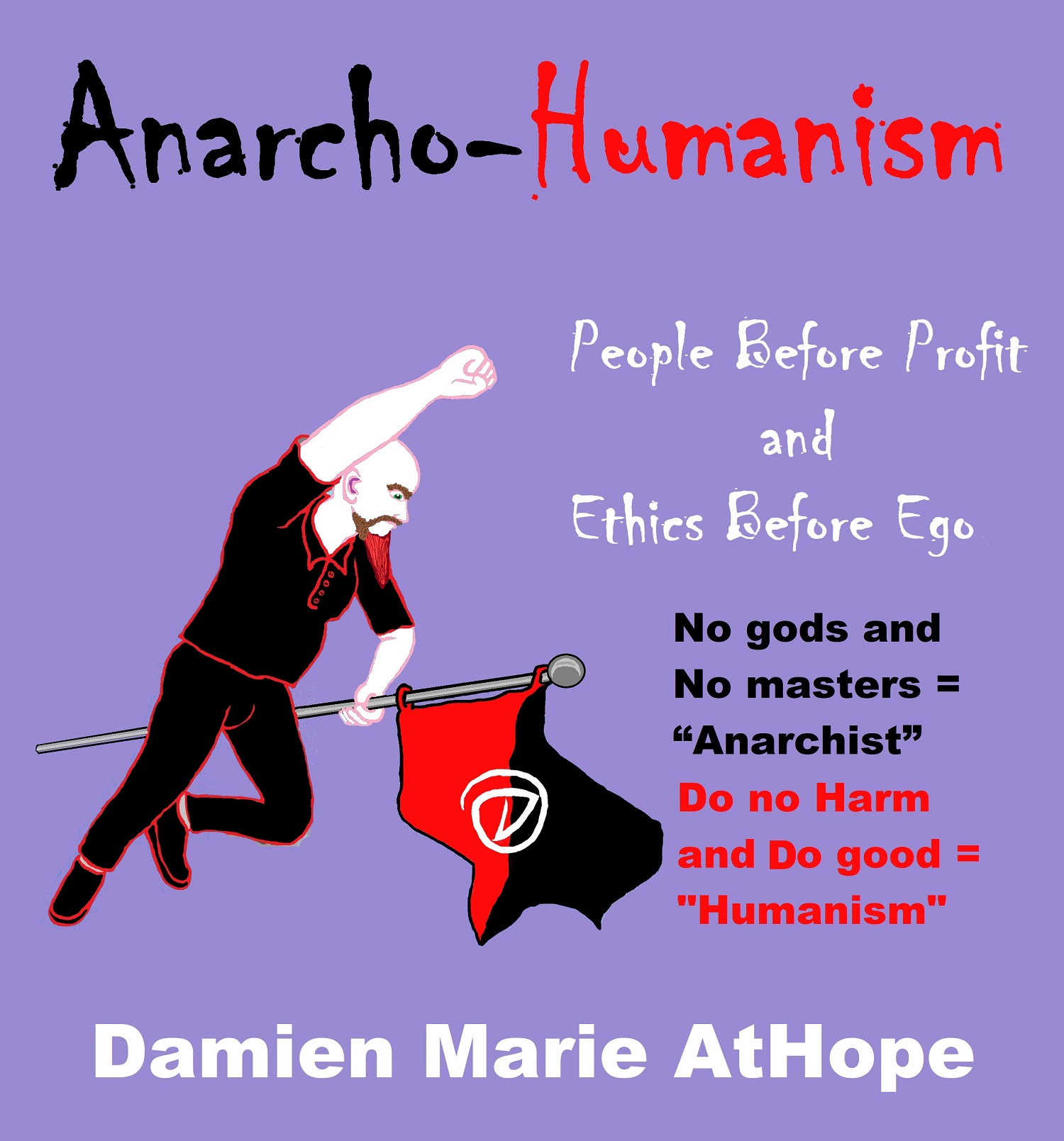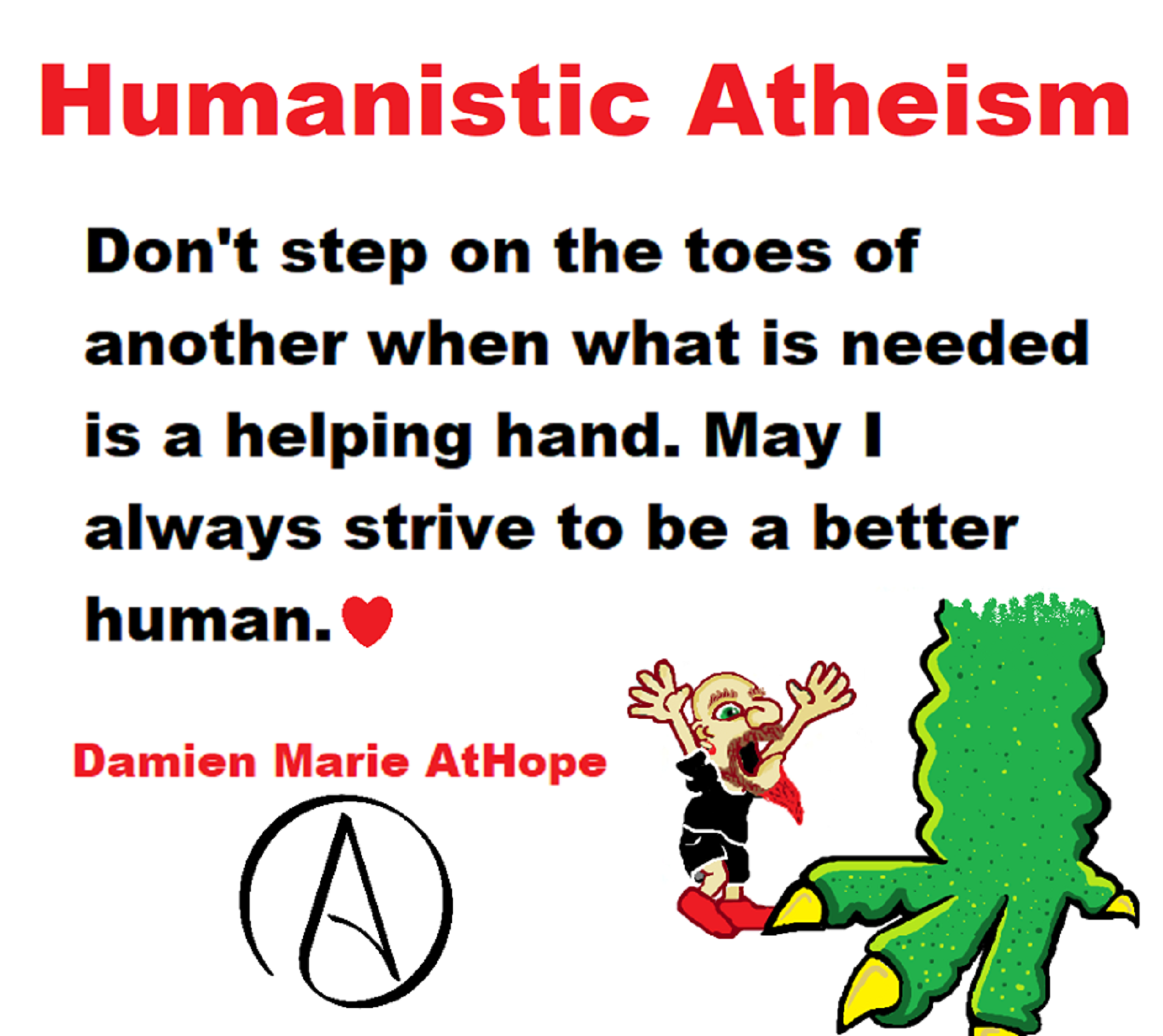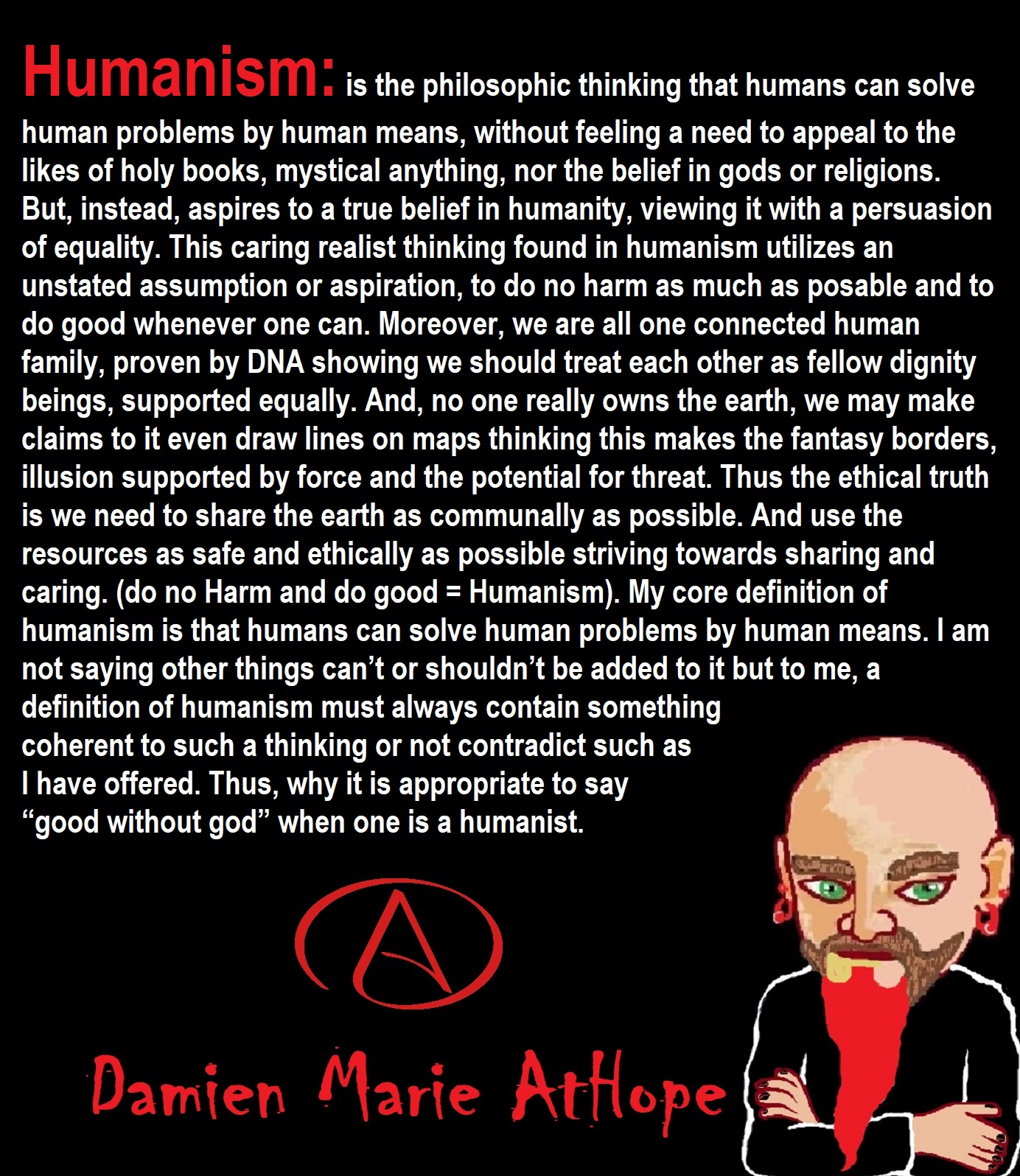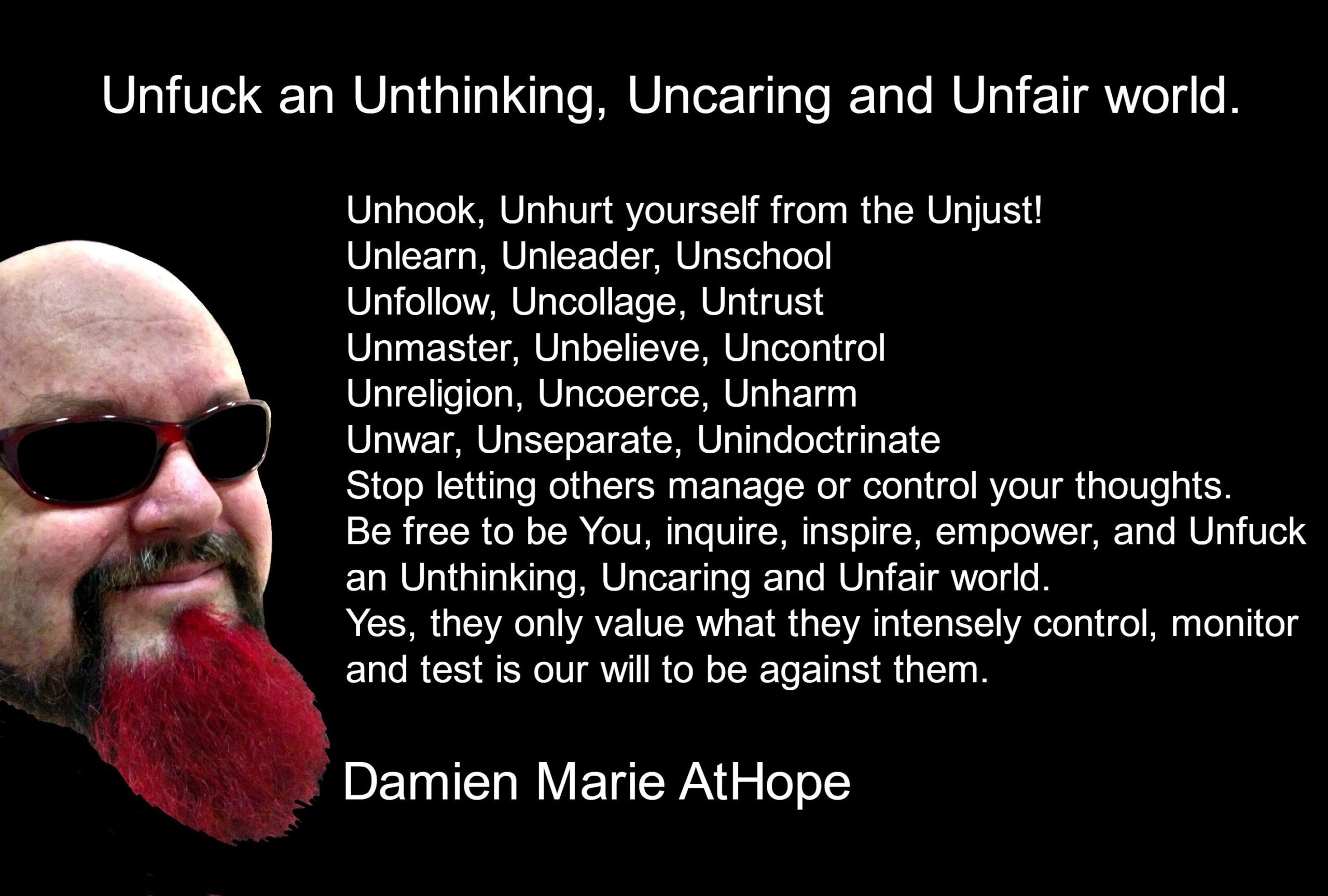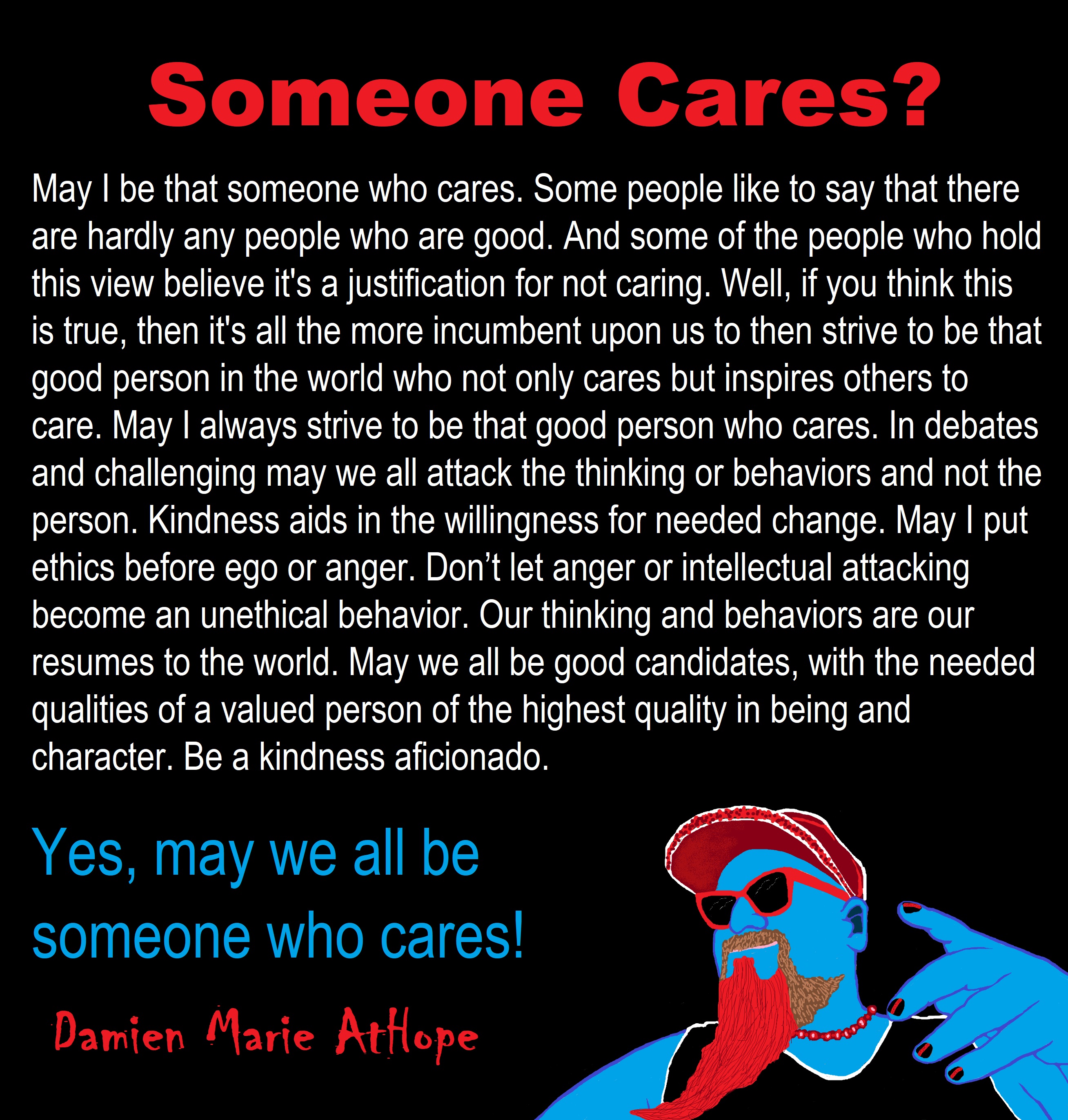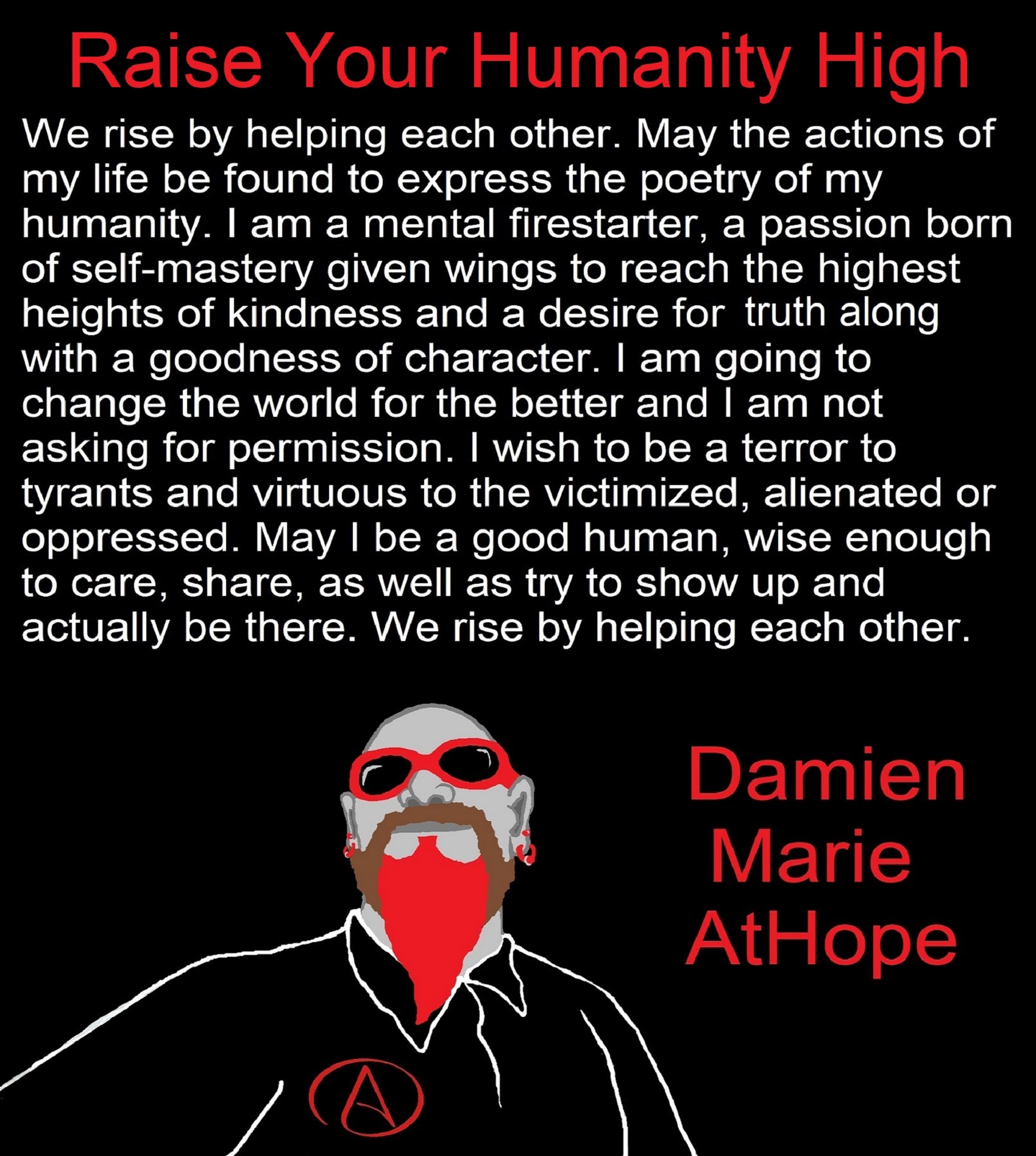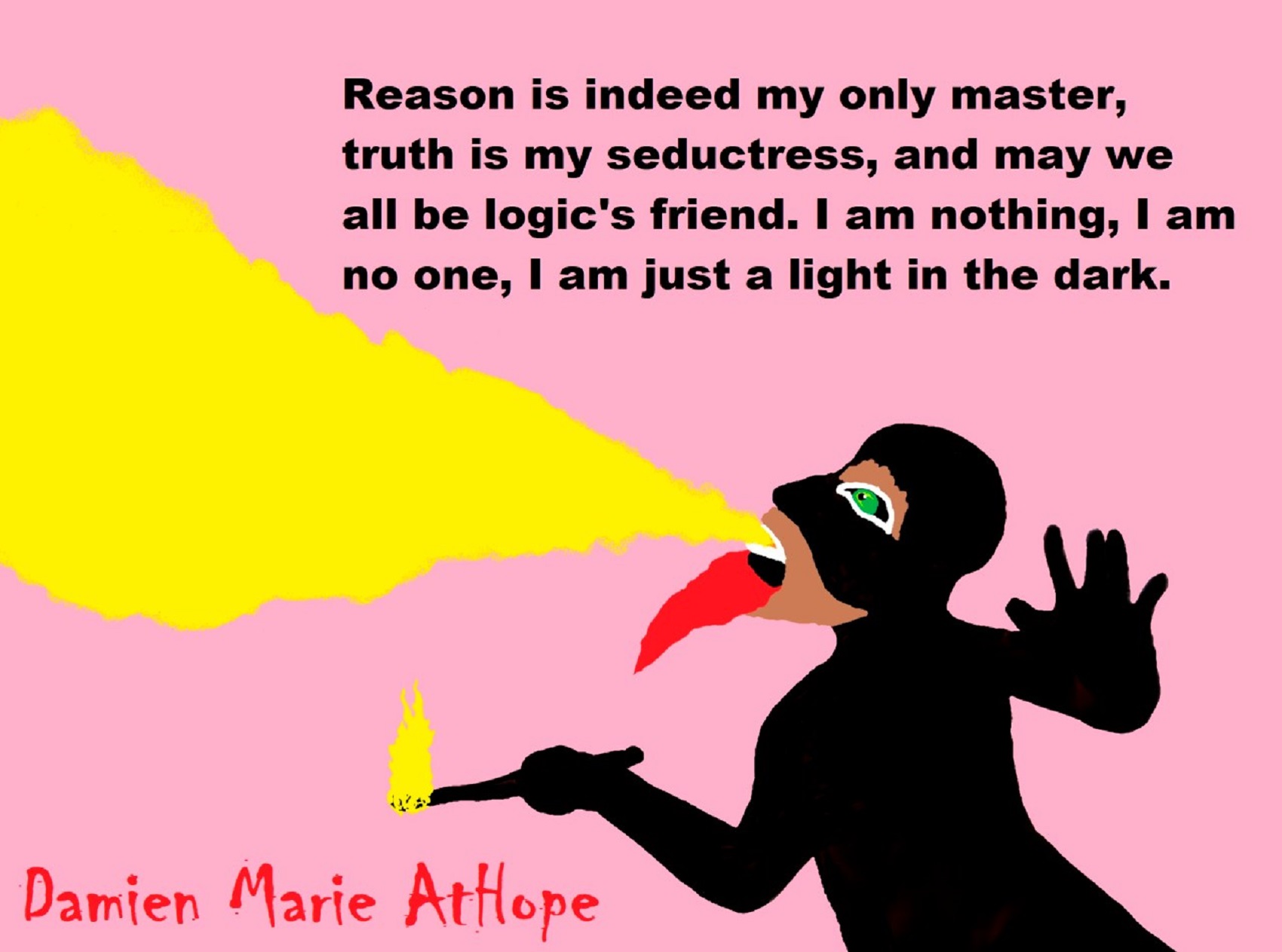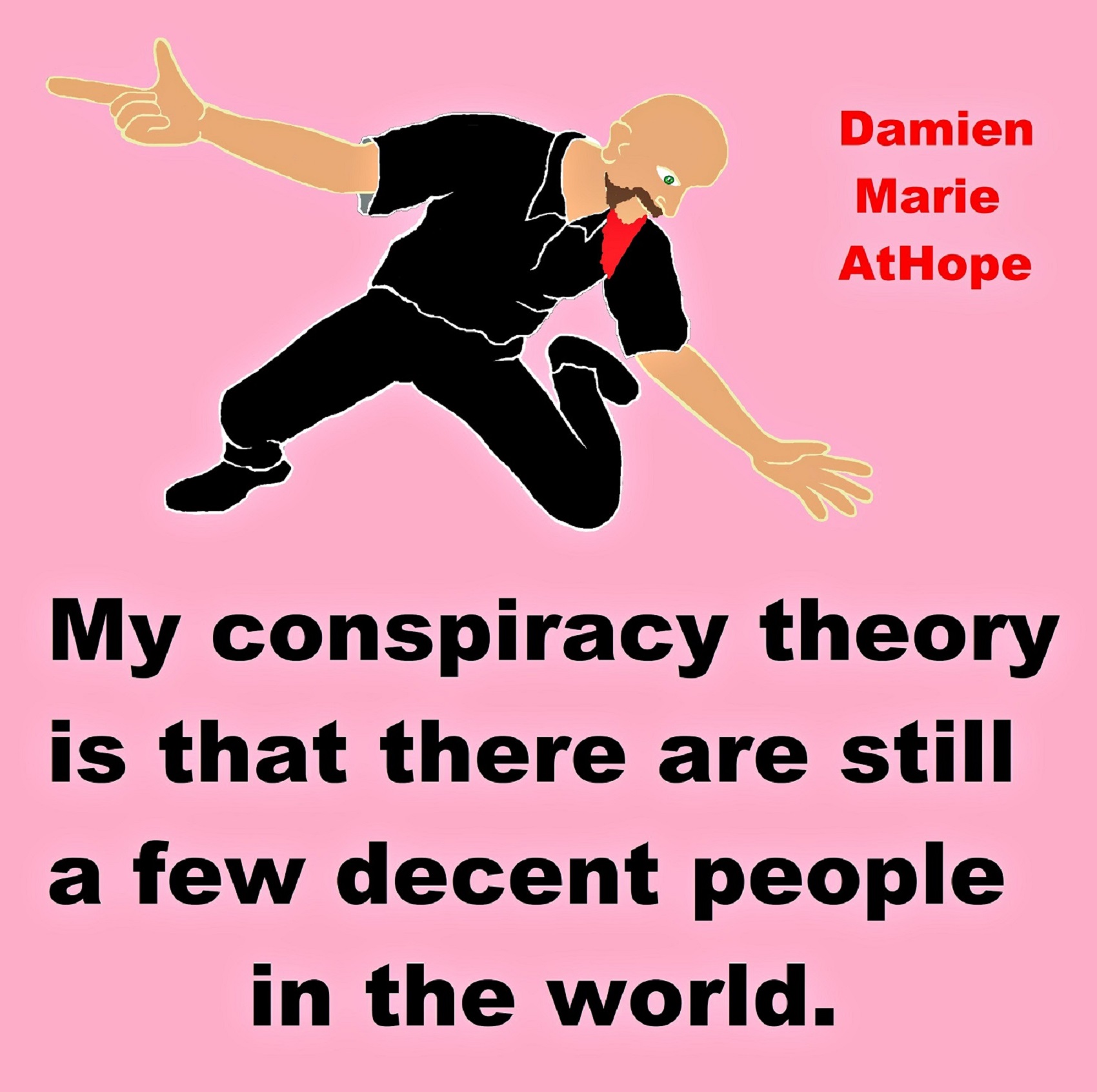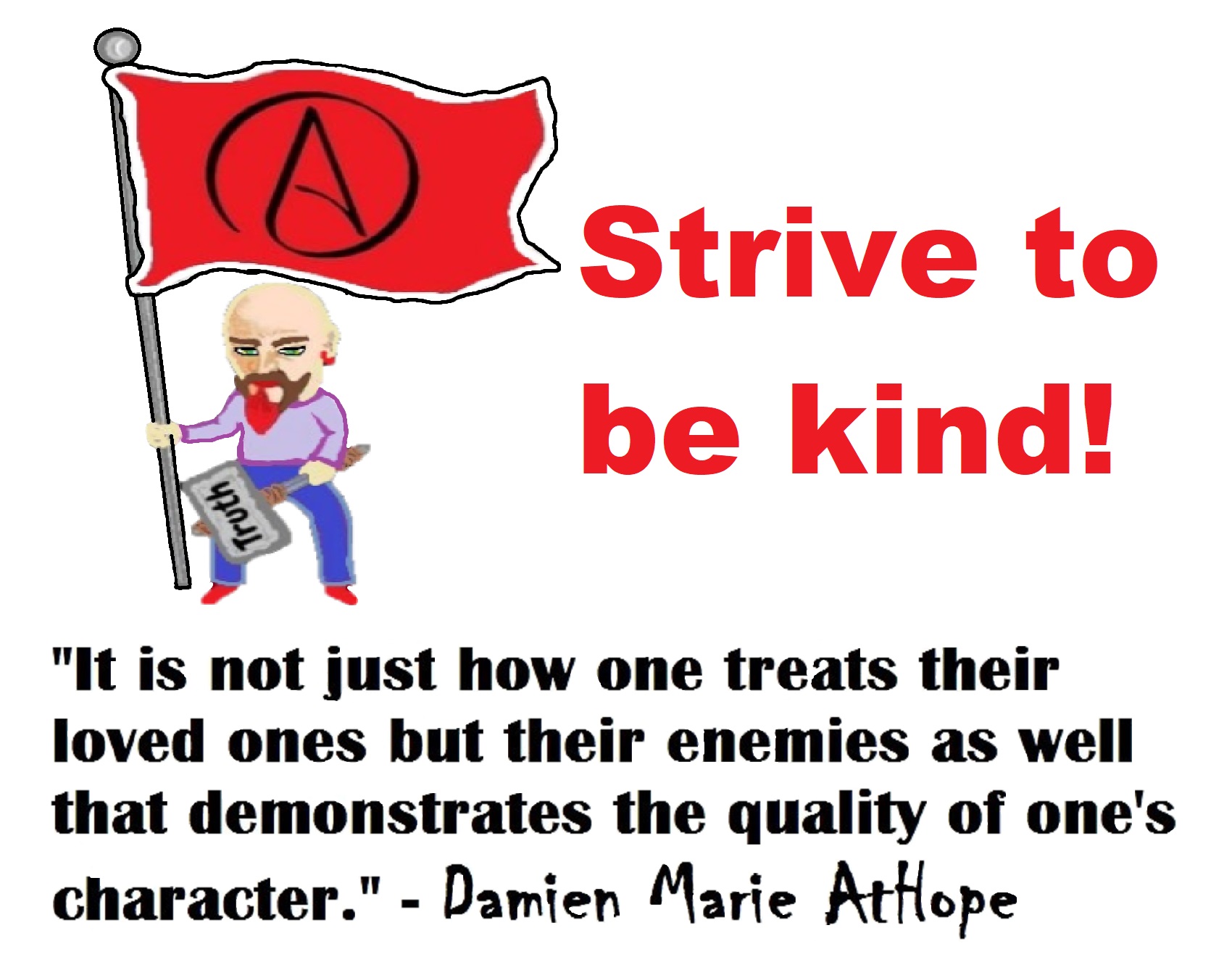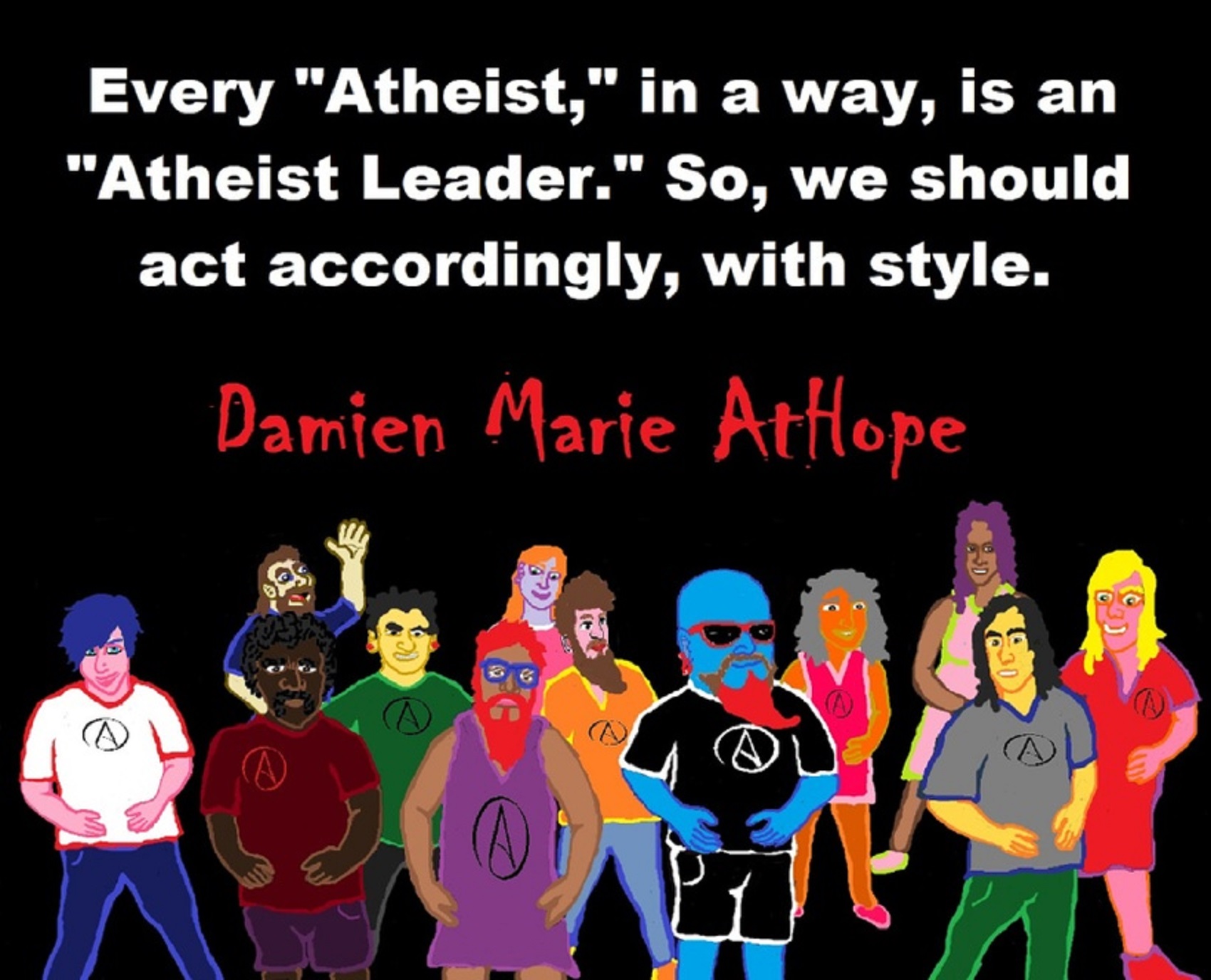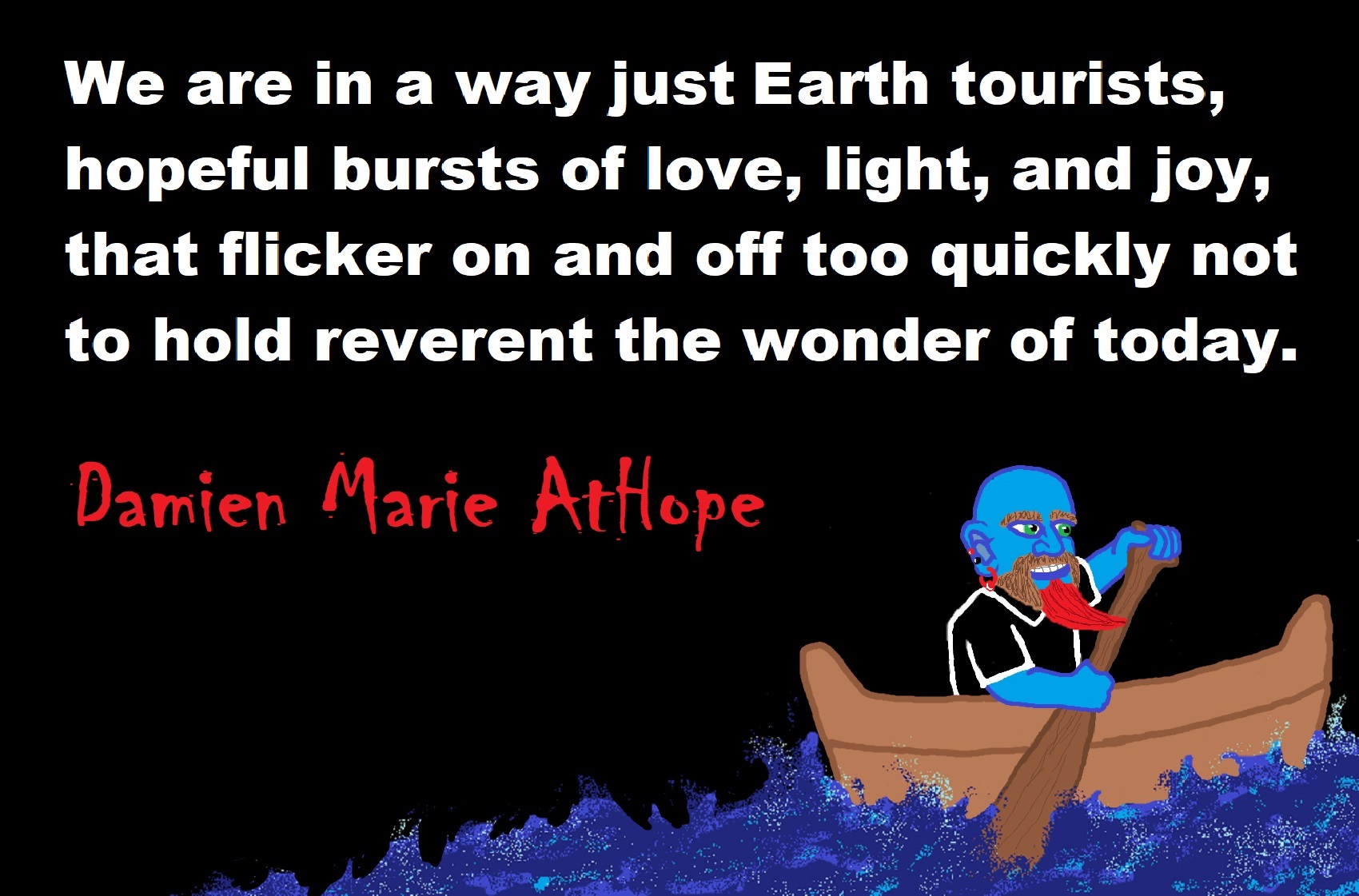
My Atheistic (socialist-anarchist) Humanism?
HUMANISM: the philosophic thinking that humans can solve human problems by human means, without feeling a need to appeal to the likes of holy books, mystical anything, nor the belief in gods or religions. But, instead, aspires to a true belief in humanity, viewing it with a persuasion of equality. This caring realist thinking found in humanism utilizes an unstated assumption or aspiration, to do no harm as much as posable and to do good whenever one can.
Axiological Atheist: Facebook Page
Want to understand my internal motivation in many if not most of what I do? Well, it can be summed up as “I get that we rise by helping each other” and do you really think a life of silence to injustice harms no one? What is the power of the heart? When we can stop believing the validity of many of our fears and are not just strong in our hope and will to succeed followed with determined as well as focused actions even against great odds, it is then that one achieves self-mastery. And blind hate is just as disgusting as blind faith. Science facts should make religious Faith-Belief impossible.
Ontology, Epistemology, & Axiology OEA (The Hammer of Truth)
OEA “Hammer of Truth” Questions:
Ontology, Epistemology, & Axiology questioning tools in inquiry, disagreements, arguments, or debates.
*Ontology (thingness of things) questions to define or compare and contrast thingness.
*Epistemology (knowledge of things) questions to explode or establish and confirm knowledge.
*Axiology (value/worth/goodness of things) questions to valueize (value judge) or establish and confirm value or disvalue, worth or dis-worth, as well as goodness or un-good.
(OEA challenge protocol; is part of my, Methodological Rationalism approach)
Expressed in its simplest form, The Hammer of Truth: Ontology, Epistemology and Axiology. We and credible thinkers should adopt rationality assumptions, as necessary constraints on interpretation, as well as practical issues in addressing methodological problems faced by:
gatherers: “Ontology”, inquisitors: “Epistemology”, & judgers: “Axiology.”
“The Hammer of Truth: Ontology, Epistemology and Axiology”
Mock Debate court using the “Hammer of Truth”
- Ontology “Reality” questions/assertion: Witness gives evidence about the claim.
- Epistemology “Truth” questions/assertion: Lawyer searches for warrant or justification for the claim.
- Axiology “Goodness-for” questions/assertion: Judge assesses and value judges because of qualities in or lacking in the claim.
Always try to follow this attack order:
*Ontology, (understanding the thingness of things; like what is or can be real, like not god)
-What is your claim?
-What aspects must be there for your claim?
-What makes your claim different than other similar claims?
*Epistemology, (understanding what you know or can know; as in you do have and thing in this reality to know anything about this term you call god, and no way of knowing if there is anything non-naturalism beyond this universe and no way to state any about it if there where)
-How do know your claim?
-How reliable or valid must aspects be for your claim?
-How does the source of your claim make it different than other similar claims?
*Axiology (understanding what is good or valuable as well as what is evil or unvaluable like how the stories about theist theistic gods are often racist, sexist, homophobic, transphobic intersexphobic, xenophobic, etc. Thus, they are directly against humanity and thus are evil and unvaluable. Unvaluable; as in the god concept you have is evil and demonstrably harmful and thus is highly unvaluable to humanity)
-Why are your objects of proposed value subjective psychological states or objective physiological external world states for your claim?
-Why do your purposed descriptive words fit qualities for valuation (such as “powerful”, “knowing”, and “present” in the Omnipotent: all-powerful, Omniscient: all-knowing, and Omnipresent: all-present god assertion) your claim?
-Why is your value-for, worth-for, and/or goodness-for claims different than other similar claims?
Take for instance how Religion supporters try the evaluation tactic of saying “there are peaceful Religions.”
I may respond, what do you mean by Religion and what do you mean by painful or good” (asking to find the truth or as usual expose the lack of a good Ontology)
Then, I may respond, “how do you know that, what is your sources and how reliable they are” (asking to find the truth or as usual expose the lack of a good Epistemology)
Then, I may respond, “what value do you think what you are saying has and to what level of proof do you feel truth needs as well as how do you insure Accuracy” (asking to find the truth or as usual expose the lack of a good Axiology)
Let’s look at the “gOD claim” with the Hammer of Truth
To me god is a the Presuppositional Error it assumes a unsupported oncology assumptions.First, truly what is a god and how can you claim to know about it? Guessing is not evidence, neither is wild, unfounded assertions that are written in reality devoid documents such as holy books. Atheists do not have to prove that gods do not exist, as gods have never been proven to exist. Nor is there any good reason to think they could exist! In the branch of linguistics known as pragmatics, a presupposition is an implicit assumption about the world or background belief relating to an utterance whose truth is taken for granted in discourse.
Let me explain why as an axiological atheist (value theory atheist) even the belief in the concept of god is ethically vile to me. God belief is inherently immoral to me it is the belief that supports an all powerful being who willfully allows suffering, something that no ethical person would tolerate if they had the ability to do otherwise. Moreover, a common attribute of god belief is support of this claimed greater being of high intelligence and self will forcing its will and standards on other beings of high intelligence and self will. This force is unethical and abusive to the rights of humanity. Furthermore, many who subscribe to this force abusive relationship god claim an even more revolting ethical atrocity called hell where eternal horror and suffering is dished out by direct will of the claimed stronger immoral god being against the defenseless undeserving subjugated humanity. Thus, being one, who values rights and ethics, it sickens me to even speak of such willful misconduct of justice. Your god concept is vile… (axiology value judgment).
The god claim is like a clown car rolling in from out of nowhere and it seems like it is only one or possibly a few bad ideas, but no. No, it is a dark festival that masquerades as truth but it is only an evil funhouse of mirrors that distorts reality. The term god is an empty meaningless term and if it was not for man-made myths or wild speculations which are usually the misinterpretations of nature, no one would claim to know what a god is or could be. Unless one falls back to the circus of fallacies in the magic big top of fideism and the faith fallacy that you do not need anything but faith to validate, justify, or prove any mystical belief you so desire.
The God Fallacy is that there is no epistemically warranted or justifiably reliable evidence for god(s) existence; most ideas offered are stretches of unreason promoting seemingly implausible knowledge or reality claims. Moreover, beyond this is the self-evident realization that there is no reliable and /or verifiable evidence that could be used to define what god term actually is or could be assured to involve. Because it is never good to just randomly conceptualize or fabricate from bias trying to force connections into existence. epistemically warranted or justifiably reliable evidence or even a preset of proofs that do not hold gaps a believer want to fill with an arbitrary beliefs things need a god explanation and yet again what does god even mean. One his furthered nothing with god talk until they offer clear links to understand what could rightly make up the empty term g. o. d. (Group Originated Delusion).
Any reasonable thinker should conclude that clear links to any knowledge are required to comprehend what to ask, where to look, or what to state is involved. This would seem especially important since what is on the line is the actual truth or falsehood of the great believed “IT” of somethingism. Do you wish to just assemble or make up your god thinking as you go, greedily forcing anything that seems slow enough to not get away or is the actual truth in reality you seek even if godless as finding the true is the main pursuit, as your aim is what true right, taken with the deepest integrity? One should desire such intellectual rigor in order to even distinguish if we need to inquire or have a way to question a possibility of existence, as this empty termed “it” god of nothingism is unknown in every way even in its “it” status outside of faith superstitions, Dogmatic–Propaganda, delusion, myths and lies.
Religion is just Dogmatic–Propaganda, such as how it is wrong to start with full belief built only upon faith: then search and anything unknown, claiming it somehow justifies or is evidence for their specific God Fallacy.
Another attribute of the God Fallacy is that believers seem to insinuate, if they can in anyway demonstrate (even the possibility of a thing that could seem to be a something attributed to a god) then they have proved that the god they believe in is true. And yet is it not true that man will always fail to prove a specific god? Religion is big on claims but small on reasoning. Take the Abrahamic faiths; they propose a very specific, well-defined god, but in reality, they advocate a very unspecified god; a naturalistic, inferred-theistic-creationism or the god of intelligent design. In other words, when pressed to demonstrate god in the world, or as the reason for the big bang, they can at best only try to surmise a magical power or unknown and unknowable possible something as the “creator.” But the question needs to asked, how does that prove any specific god? So even if we were to concede, for the sake of argument, that some god, phantom-menace started things, they still have to show that this god is the very same as the god in which they believe.
The truth is, for all the appeals they make to nature in order to justify their god, not one appeal is valid in any way to confirm that their god (and only their god) is true, they must always leave the facts and return to faith. Thus, these haughty theists always fail to show any naturalistic reasons for believing in their special-needs god. What they show instead is a belief, not in the god of some myth or scriptures, but belief in a projected somethingism-god attributed to nature, which is indistinguishable from a nothingism, godless reality attributed by nature.However, the issues don’t stop there, as they also would have to prove, or give warrant, as well as justification for every attribute and claimed character trait attached to their specific god using only natural arguments, not some Holy Book or otherworldly revelation.
Coherent Definition of god?
I am an Ignostic atheist and not only do not believe in the term gods I reject that even the term or concept of god has any real thing or true reality connected definition. To me there is no one coherent definition of god even if they think articulation proves real meaning, this proves little more that me saying someone believes in a “Triangle-Square-Circle”. To the term god I thus regards it as empty of real meaning and or real definition constancy, so I see it as something that is not really know or knowable or coherently define able as a real object even if it can add arbitrary words to articulate it is still not something outside man-made arbitration.
One may say no the god definition is real one cannot say it is not, as most people generally known what the term god means thus that cannot be rejected. Really?? I could be misunderstanding this reasoning put against Ignostic Atheist thinking but to me it seems to hold the opinion, saying I must accept the god concept as something definable in reality because ad populum? In argumentation theory, an argumentum ad populum (Latin for “appeal to the people”) is a fallacious argument that concludes that a proposition is true because many or most people believe it: “If many believe so, it is so.”
Bigfoot’s, Unicorns, and Gods the rational conclusion using Axiology
So how do we form rational conclusions? More importantly how do we differentiate between the levels involved to establish a conclusions rational viability.
It takes axiology or the value judgment the worthiness or lack thereof in relation to the available reason and evidence.
So let’s start with the axiological viability of Bigfoots
There is no available evidence for Bigfoots.
But is their proposition outside of reason?
Always start in reality from the evidence we do know, such as a primate/nonhuman hominid close to that of both humans and other nonhuman primates is not entirely outside all possibility of reason even though lacking all evidence. Therefore, belief is not warrant and the axiological worthiness of possibility is low enough to motivate disbelief.
Next The axiological viability of Unicorns (ie. a horse with a single horn on its head)
There is no evidence for Unicorns.
But is their proposition outside of reason?
As always start in reality from the evidence we do know, such as by looking at the evolution of the horse not once was there a horn on any of the several stages of animals to the horse we know today. So it is relatively outside of possibility though as it is still only claiming non fantastic attributes it is only somewhat ridiculous. Therefore, belief is not in any way warranted and the axiological worthiness is so low to highly support disbelief.
Now the axiological validity of Gods
There is no evidence for Gods.
But is their proposition outside of reason?
As always start in reality from the evidence we do know, such as never in the history of scientific research or investigation has any supernatural claims shown to be true. So it is completely outside of possibility and is utterly ridiculous. Therefore, belief should be rejected as there are no warrants at all and it is axiologically unworthy to such a preponderance to demand disbelief.
The following are some evidence against a caring god working in the world. A recent study of the current living conditions throughout Africa shows that more than one billion people do not have enough clean water to provide for their basic human needs. As a result, more than 2,500 children are dying each day. I guess it is that god gives us free will by keeping children from clean water in an unproportioned amount to the civilized science filled world. I ask you, does your god not hear their prayers? According to Missionaries of Africa (2008), there is a water crisis and diseases that are living in dirty water are wiping out entire villages and communities. Does god exist? Does the magic chanting of prayer seem to work? Suppose for a minute with the understanding of religious believe, if there was a loving god and it answered even some prayers, would not the most deserving be the non-sinning? Moreover, what living human could be said to be less sinning than a baby and thus the most deserving. In addition, babies or children are likely the ones religionists/fideists pray most often, for when they are in trouble. Belief changes nothing. Whatever circumstances you are in or not, has nothing to do with belief. If you are poor, belief does not make you not poor. If you are rich, you do not stay rich because of belief. You would think that poor people would have the benefit of the heavenly means and have god on their side, if anyone would, right? Overall, in 186 countries, first-day child death rates for babies are 6.9%. Where was god? In Angola, 8% of the babies die and 95% of the population is christian. In Congo, 7.5% of the babies die and 95.8 % of the population is christian. Whereas in Guinea-Bissau, 9% of the babies die and 10 % of the population is christian and in Niger 8.7% of the babies die and 5% of the population is christian. Therefore, being a christian and begging for an all-powerful all loving god myth to do something that any half-decent human being would hardly even need to be asked to help an innocent child, shows that belief seems to make no difference in the world because the world is godless and sadly babies die. Isaiah 45:7 “I form the light, and create darkness: I make peace, and create evil: I god do all these things.” Ref
Just think, the bible god “could” have banned slavery or shellfish and he chose to ban shellfish (Leviticus 11:12) and actually support slavery (Leviticus 25:44-46) even in the new testament (Ephesians 6:5; 1 Timothy 6:1-2) and Jesus clearly approves of beating slaves even if they didn’t know they were doing anything wrong (Luke 12:47-48) how crazy and immoral is that for a man-made fairy tales. I will openly say faith is foolish lacking credibility and it is stupid to hold on to beliefs that are disproved by science fact. However, I don’t usually call people names even ones saying things I believe are ridiculous nor do I belittle them instead I strive to and support attacking the thinking and not the person.
What is a god? Just a Empty Label.
Doubt god(s)? No, I stopped believing Fairytales.
Here are some of my blogs that relate
My Methodological Skepticism Style
The Scientific Method & Naturalistic Rationalism
My “Methodological Rationalism” approach
Basics of my Methodological Rationalism Epistemology Approach
Grasping the status of truth (ontology of truth)
The Ontology of Humanistic Economics in Society?
Why care? Because we are Dignity Beings.
Behavior Modification Methods: Positive vs. Negative
What methods of human psychology do Evangelists use to lure people into their fold?
Ontology, Epistemology, & Axiology argument/challenge protocol
“The Hammer of Truth” (scientific philosophy: Ontology, Epistemology, & Axiology) in action.
Let to tell you about ontology as I see it and use it.
My quick definition of Axiology and Axiological Atheism?
Here is a Little on how I got into Axiology
Basics of my Methodological Rationalism Epistemology Approach
The Gettier Problem Helps MY Epistemology style
Theological Noncognitivist & Ignosticism
Do you believe in god?
What is a god? Are you asking me if magic exists? Well my answer as an ignostic atheist is, first prove the actuality of simple magic before you try too ask anyone about the possibility of some supreme magic.
Are you a Believer or a Thinker?
When you can, with all honesty, say that you put a similar voracity to one’s own ideas as they demand for others then they are a thinker not just a believer. And when you can quickly and eagerly relinquish any and all ideas, even the most cherished if they were not true; yes a willingness to discuss or discard if required, even if you like them is being a thinker and not just a unthinking believer.
Error Crushing Force of the Dialectic Questions and the Hammer of Truth
*(Ontology) What are you talking about, please slow down and give me each specific detail individually?
*(Epistemology) How do you know that and why do you think it is justified or warranted?
*(Axiology) What is its value if any and why do you value that or why would anyone?
If you don’t already know, Dialectic is the art of investigating or discussing the truth of opinions. What I am trying to say in this message of Dialectic Questions in order to find truth by giving people three questions that can be put towards almost anything and it help remove error and thus improved accuracy.
I am an Atheist, Antitheist, Antireligionist, Humanist, Writer, Artist, Poet, Philosopher and an Activist. I wish more than simply inspiring doubt in gods and religion. I wish to expose the errors in believing that allows Belief to be maintained as reasonable, warranted, justified or supported. I wish to highlight the many errors in the thinking offered as well as the many faulty presuppositions used trying to maintain as reasonable, warranted, justified or supported; removing all of their credibility to believe in them or to keep believing. Just remember a simple rule all beliefs need something to support them or they are at best unsupported accepted assertions, arguments or ideas. At worst completely baseless, misinterpreted confusions, or outright falsehoods. See it’s like this, if one feels something requires faith (unsupported cognition of acceptance) to see the thing as real; without realizing it, one has affirmed that such a thing is not likely a true part of reality. My atheism is a fell defended and philosophically rich nonbelief/disbelief position or style and its well supported thinking of axiological atheism. Axiological (value theory or value science; a social science) atheist. Or put it in an easier way think of it kind of like moral argument reasoned and ethical driven strong atheism (disbelief in god’s). Axiological atheism: (Ethical/Value theory Reasoned and Moral Argument driven) Atheism, Anti-theism, Anti-religionism, and Secular Humanism. Axiological atheism = Strong Disbelief as well as Strong Secularism and Humanism. To learn more check out: “Axiological Atheism Explained” https://damienmarieathope.com/2015/10/30/axiological-atheism-explained/
I am a rationalist not a skeptic: to me a “Rationalist”, knowing it or not will be more prone to axiology, strong atheism and or ignosticism. And “Skeptic”, knowing it or not will be more prone to nihilism, weak atheism and or agnosticism. Don’t get me wrong, “I Am a Rationalist and Support Reasonable
Skepticism” https://damienmarieathope.com/2016/03/02/support-reasonable-skepticism/
I am about sick with mean people, every time, remembering the real need there is in the world to be kind. May I always want or feel a need to give others kindness May I always choose kindness over meanness when I interact with people.
“Life is just too damn short to not be kind.”
Would it make any difference how you treated others was really dependent to how empathizing you can be with them as well as how much emotional intelligence can you muster or demonstrate?
What if you knew that a person was going to die in an hour would you feel more compelled to be kinder almost no matter what? I would like to think I always would. I know for some this is too extreme, but think about it like I do and you may just start to see the reason life’s just too damn short to not be kind. A main goal of mine in this life is to first not forget to enjoy it, but secondly is strive to make the world a little bit better because I was alive. We can make a big difference with little actions #TheSilentRevolution #adorablesnotdeplorables #adorables not deplorables.
Antireligionist atheism: is opposition to any religion, religious beliefs, religious institutions, and god myths. Antireligion is distinct from atheism and antitheism (opposition to belief in deities), although antireligionists may be atheists or antitheists. The term may be used to describe opposition to mostly organized religions, or can describe a broader opposition to any form of belief in the supernatural, holy, godly or divine. An antireligionist generally means an opposition to religion, this most likely includes buddhism, satanism, taoism, paganism, wicca, spiritualism, etc. reject it all, every religion or pseudo religion, YES an atheist who is “Anti” ALL RELIGIONS. Not just atheist or antitheist, I am a proud anti-religionist. I can sum up what I do not like about religion in one idea, religions as a group are “Conspiracy Theories of Reality,” usually filled with Pseudoscience, Pseudohistory, along with Pseudomorality and other harmful aspects to people as well as reality and not just ancient mythology to be marveled and laughed at. And, I am an anti-accommodationist too. The term may be used to describe opposition to organized religion, or to describe a broader opposition to any form of belief in the supernatural or the divine. Antireligion is distinct from atheism (the absence of a belief in deities) and antitheism (an opposition to belief in deities), although antireligionists may be atheists or antitheists. I can sum up what I do not like about religion in one idea, religions as a group are “Conspiracy Theories of Reality,” usually filled with Pseudoscience, Pseudohistory, along with Pseudomorality and other harmful aspects to people as well as reality and not just ancient mythology to be marveled and laughed at. And, I am an anti-accommodationist too. No, I Do Not Value Accommodationism. According to atheist philosopher Daniel Fincke Anti-Accommodationism Is Pro-Philosophy. Click the link to read more of his thoughts on this: Anti-Accommodationism Is Pro-Philosophy To me, believers and even some atheists or other nonbelievers who are accommodationists feel nonaccommodationists firebrand atheists, antitheists, antireligionists, or rationalists like me should not attack the thinking of believers as they see this as disrespecting or attacking the one holding the belief thus the believer themselves. I regard this as ridiculous, do they hold this as a universal belief or just a special belief towards religion believers. Such as I guess if universal I will never have to worry about you attacking my firebrand atheist beliefs either right or are you bigoted in how you apply your thinking about attacking thinking is attacking the person. Attacking the thinking is not attacking the person, including religion and gods or any beliefs. In case you are unfamiliar with the term accommodationism it is a term of modern rationalism or atheism refers to the belief that some sort of “common ground” can be found between believers in magical and supernatural things and those who hold the scientific method and methodological naturalism as humanity’s best tools to describe the universe. Some simply call accommodationism soft or friendly atheism. I say do what you feel is right I see no rightness in this style. I don’t think antireligionism is really anti-friendly-atheism, as it can involve being friendly to people even if it is harsh to religion, positive antireligionism or Anti-Accommodationism is attack bad thinking and bad behaviors not just people who believe. It’s not the belief the believer holds to themselves, as that in itself would not bother me or most other antireligionist or anti-accommodationism if it somehow stayed encapsulation as a self-chosen preference they did not try to force on the larger world. But of course they not only express their myths, lies, pseudo history, pseudo-science, conspiracy theories of reality and often bigotry as well as a desire to oppress all who do not believe like them. But Why do I Hate Religion? I was asked why I openly and publicly am so passionate in my hate of religion. further asking what specifically in your life contributed to this outcome. I hate harm, oppression, bigotry, and love equality, self-ownership, self-empowerment, self-actualization and self-mastery, as well as truth and not only does religion lie, it is a conspiracy theory of reality. Moreover, not only is religion a conspiracy theories of reality, it is a proud supporter of pseudohistory and or pseudoscience they also push pseudomorality. Religion on the whole to me deserves and earns hate, or at least disfavor when you really analyze it. Not to mention the corruption it has on politics or laws. As well as how destructive this unworthy political influence has and creates because of these false beliefs and the harm to the life of free adults but to the lives of innocent children as well (often robbed of the right to choose and must suffer indoctrination) as the disruption of educated even in public schools. Etc. I as others do have the right to voice our beliefs, just as I or others then have the right to challenge voiced beliefs. The way one views or explains the nature of reality often has a great effect on their views of epistemology (knowledge) and axiology (value), such as my being a believer in metaphysical naturalism and metaphysical realism. Metaphysical Naturalism is the view that “nature is all there is,” or there exists no realm of the supernatural. Similar to just stronger against supernaturalism then methodological naturalism used in the scientific method. Methodological naturalism is a strategy for studying the world, by which only natural causes are assumed, never considering supernatural causes – even as a remote possibility. Metaphysical realism is the view real world exist independently of our thoughts or perceptions of it. Many philosophers believe metaphysical realism is just plain common sense. Closely linked to scientific realism which at the most general level, is the view that the world described by science is the real world, as it is, independent of what we might take it to be. Long live mental freedom found in atheism, antitheism, and of course antireligionism. 1 2 3 4 5 6 7
My Atheism: “Axiological Atheism”
Axiological atheism: is a constructive Value centered ethics driven atheism which rejects the existence of gods in favor of a “higher absolute,” such as humanity and society. This form of atheism favors humanity as the absolute source of ethics and values, and permits individuals to resolve moral problems without resorting to faith or god myths. Axiological or constructive atheism conveys messages of liberation, full-development, and unfettered happiness. Axiological or constructive atheism life meaning in humanity, ethics and values surpasses one of the most common criticisms of atheism that denying the existence of a god leads to moral relativism, leaving one with no moral or ethical foundation or renders life meaningless and miserable. Axiological Atheism can be thought to involve ethical/value theory reasoned and moral argument driven atheism, anti-theism, anti-religionism, ignosticism, apatheism, secularism, and humanism. Axiological Atheist, can be understood as a value theory or value science Atheist. As such axiological atheism’s ethically reasoning is constructive and pro-humanity. We who believe we are thinking rational, leading to opposition or hate of religion may that be limited to the nonfactual or oppressive ideology and not the people. Beyond just not being something lets be something, rational thinking should challenge myths but also prove our love for humanity and care for all living beings. In most cases, Axiological atheism would assert the traditional concept of “Atheism” answers only a single question: Is there a creator god or not? That is an important question, but if your answer is “no”, it is only a starting point and not a way of life. You may have reached that viewpoint based on your respect for logic, evidence, science,and personal experience which too are vital values. Yet, after you have reached that initial “no god” answer, all the other important questions in life, all the options for mental and emotional wholeness and social and environmental harmony, ethics and morality, personal fulfillment, social values, philosophy and psychology remain open. That is where “Axiological Atheism” holds a connection to both further challenging the god concept and devaluing religion and adding a value meaning and ethical axiological ideology to guide universally desirable secular ethical way of being or a value driven life lived in this reality. What is Axiology, Formal Axiology & Axiological Profiling? Axiology is the name for “value theory.” It is derived from the Greek word “axios” meaning “worth.” Formal axiology is the logic-based science of value anchored in a “hierarchy of meaning” from the most meaningful or richest value to the most destructive or greatest value loss. The logic specifies 18 different levels of richness. Hartman’s “hierarchy of value” is the mathematical measuring standard for human evaluative judgment and decision-making in life and in all social sectors of life in our culture. When people make value judgments, they use both their mental and emotional capacities to arrive at their decision. Some people have very solid and reliable decision-making abilities – while others routinely make wrong or inaccurate choices. Axiological profiles measure the quality of the respondent’s judgment and decision-making by gauging both their mental clarity and their emotional orientation & conditioning. Dr. Leon Pomeroy in his book, The New Science of Axiological Psychology (Pomeroy, 2005), has shown that formal axiology is also empirically valid. Thus, in our axiological assessment profiles we have the solid support of both scientific methods: the deductive logic-based axiomatic method and the inductive, empirical method. Dr. Pomeroy spent over 20 years collecting statistical data for his book cross-nationally, from numerous and diverse eastern and western countries and cultures, and proving that cultures all over the world make value judgments in the same way. Neuro‐Axiology: merges Neuroscience understanding how the brain works with Axiology’s formal science that makes possible the objective measurement of value how humans make value judgments. (You will ALWAYS choose what you think adds the MOST value to your life.) Accepting the standard of neuroscientific model of consciousness means that everything we think, feel, remember, and do is a function of the brain. This includes the emotion of empathy. We are not empathic because it makes sense to be empathic – meaning that most humans don’t simply reason their way to empathy. Nor do we simply learn empathy (although brain development is an interactive process with the environment, so we can’t rule out environmental influences). For the most part, we have empathy because our brains are wired with empathy as a specific function. Like every function of the body you can think of, if it is not essential for survival then some subset of the human population likely has a disorder or even absence of this function. We recognize the biological limits of empathy or absence of empathy as the disorder, psychopathy. It is estimated that about 1% of the general population are psychopaths, while about 20-30% of the US prison population. Dr. Robert S. Hartman discovered that people hold back a 40% latent reserve of cooperation and productivity until they have been valued as human beings. Axiology is the science of how humans value and make value judgments as well as how they relate to ethics (not moral values often religious or culture relative). The basics of Axiology are in its 3 Classes of Value and 6 “Advisors”. The following are the Classes of Value: 1. Systemic: plans, rules, best practices, procedures; ideas or expectations 2. Extrinsic: practical or situational; measurable, tracked; tasks (tangible) 3. Intrinsic: personal or transcendent; infinitely valuable; irreplaceable; human beings (intangibles). The following are the 6 Advisors which consist of 2 views of one inward and one outward and one must remember people are neither their thoughts nor their advisors. 1. World View: Empathy-Intuition “people”, Practical Judgment “tasks, & Systems Thinking “plans & ideas” 2. Self View: Self-Esteem “who you are”, Role Awareness “what you do,” & Self Direction “where you go”. The word “Axiological” (to the term “Axiological atheism” is meant to denote an atheistic “Value” rejection of the existence of gods or supreme beings and in favor of a “higher absolute” such as humanity or universal ethical principles. The perception of moral obligation removed from ethical sensitivity to universal justice [is] thus unintelligible as “higher absolute”. As a form of atheism, Axiological favors humanity as the absolute source of holistic ethics and care values which permits individuals to resolve moral problems without resorting to a god’s moral obligation which is anti-humanity and not needing to connect to equal justice. Axiological Atheism can be seen as ethically reasoned antitheism and antireligionism where it is all about axiology values that underlie the universal truths. A few examples of universal truths such as there is no such thing as just rape, no honorable thoughtful unwanted torture, and no just humanistic caring abuse of the innocent. You can offer excuses but the true values violations hold true. Axiologists are broadly concerned with all forms of value including aesthetic values, ethical values, and epistemic values. In a narrow sense, axiologists are concerned with what is intrinsically valuable or worthwhile—what is desirable for its own sake. All axiological issues are necessarily connected to ontological and epistemological assumptions. Axiology in Axiological Atheism can be seen as applying science of morality, referring to its ethically naturalistic views basing morality on rational and empirical consideration of the natural world. The idea of a science of morality has been explored by writers like Joseph Daleiden in The Science of Morality: The Individual, Community, and Future Generations or more recently by neuroscientist Sam Harris in the 2010 book The Moral Landscape. Harris’ science of morality suggests that scientists using empirical knowledge, especially neuropsychology and metaphysical naturalism, in combination with axiomatic values as “first principles”, would be able to outline a universal basis for morality. Harris and Daleiden chiefly argue that society should consider normative ethics to be a domain of science whose purpose amounts to the pursuit of flourishing (well-being). “Science” should not be so narrowly defined as to exclude important roles for any academic disciplines which base their conclusions on the weight of empirical evidence. The term “science of morality” is also sometimes used for the description of moral systems in different cultures or species. The axiological movement emerges from the phenomenological method. The axiologists sought to characterize the notion of value in general, of which moral value is only one species. They argue against Kant, that goodness does not exclusively derive from the will, but exists in objective hierarchies. They emphasize the extent to which it is through emotions and feelings that human beings discern values. The notion of right action is understood derivatively in terms of the values which emotions reveal. Evolutionary psychology seems to offer an account of the evolution of our “moral sense” (conscience) that dispenses with any reference to objective values. Its apparent elimination of objective values on the grounds of their being unneeded in explanation has led the skeptical writings of J.L. Mackie and Michael Ruse. By contrast, Robert Nozick has resisted this interpretation of evolution (1981) arguing that an evolutionary account of the moral sense can no more dispense with values than an evolutionary account of perception can dispense with perceptual objects objectively present in the world. Axiologists in contemporary ethics are Platonists such as Iris Murdoch and Neo-Kantian theorists such as John Rawls and Robert Nozick. Tenets of Secular Ethics involve a width and diversity of their philosophical views, but secular ethicists generally share one or more principles: • Human beings, through their ability to empathize, are capable of determining ethical grounds. • Human beings, through logic and reason, are capable of deriving normative principles of behavior. • Human beings have the moral responsibility to ensure that societies and individuals act based on these ethical principles. • Societies should, if at all possible, advance from a less ethical, less empathy, and unjust form to a more ethical, more empathy and just form.1 2 3
You Have Religious Beliefs?
A question to believers: “if your religion was false would you want to know about it?” If you’re sure of your response is that truly coming from a place of open honesty. We must never forget that just because an idea or belief has mass approval or a wide acceptance, this tells nothing of its truth status, its accuracy, or any provable validity. I am an ignostic atheist. I am an anti-agnostic atheist or ignostic atheist. I am anti-agnostic reasoning. I am not anti people who are agnostic. I don’t consider the existence of gods to be an open question. In the highly unlikely event that proof of the existence of a god were to turn up, I would reevaluate my world view. Are people “agnostic” about the Tooth Fairy? Paul Bunyan? The Easter Bunny? No? There’s just as much ‘evidence’ for any of them as there is for gods. Yet, people want to claim they’re “agnostic” about the existence of gods. Why? Because of cultural/peer/familial pressure and indoctrination. How can you be 100 percent sure there is no God? The 100 percent you are asking about is perception of knowledge and the sureness you are asking about is certainty both of which are interrelated because both knowledge and certainty are epistemic property of beliefs. We can assert 100% psychological certainty we do it all the time. What most agnostics likely mean is they don’t want to claim epistemic certainty thinking it like knowledge is disconnected from belief. However, like knowledge, certainty is an epistemic property of beliefs. http://plato.stanford.edu/entries/certainty/ What is a god? Without a clear definition such terms cannot be meaningfully discussed. Every attribute offered to such a term is claiming to know things you do not know nor can know to even give a reasonable guess, making stuff up at random with no valid or reliable reason or evidence, promoting a false premise. In order for an argument to be considered valid the logical form of the argument must work – must be valid. A valid argument is one in which, if the premises are true, then the conclusion must be true also. However, if one or more premise is false then a valid logical argument may still lead to a false conclusion. A sound argument is one in which the logic is valid and the premises are true, in which case the conclusion must be true. Another type of premise error occurs when one or more premises is an unwarranted assumption. The premise may or may not be true, but it has not been established sufficiently to serve as a premise for an argument. Identifying all the assumptions upon which an argument is dependent is often the most critical step in analyzing an argument. Ignosticism, or igtheism is a theological position. If followed to its logical end it concludes that the entire question about God’s existence is a non-question and that taking a yes, no or even ambivalent position is absurd. It is based on an expectation of strong critical rational analysis of any proposition including the existence of God. As with any topic, and especially in the realm of the supernatural and woo, the subject of any debate should be coherently defined. If one offers a clear definition of an entity, then in order to take a position whether it exists or not the definition of the entity must be one in which its existence can be falsified (there is a rational and logical method by which we can test the existence of the subject as it has been defined). http://rationalwiki.org/wiki/Ignosticism God to me is a false premise which is an incorrect proposition that forms the basis of an argument or an instance of a form of reasoning in which a conclusion is drawn. Since the premise (proposition, or assumption) is not correct, the conclusion drawn may be in error. The logical validity of an argument is a function of its internal consistency, not the truth value of its premises. However even if how a god argument its self is deemed logically sound, because its first premise is false it is thus quite demonstrably wrong. A simple logical analysis will not reveal the error in this argument, since that analysis must accept the truth of the argument’s premises. For this reason, an argument based on false premises can be much more difficult to refute, or even discuss, than one featuring a normal logical error, as the truth of its premises must be established to the satisfaction of all parties. I have Justified True Belief thus have knowledge that Natural only reality is true and can rationally state so until demonstrated otherwise. Sometimes a person who is really an atheist may describe herself, even passionately, as an agnostic because of unreasonable generalized philosophical skepticism which would preclude us from saying that we know anything whatever except perhaps the truths of mathematics and formal logic. http://plato.stanford.edu/entries/atheism-agnosticism/ In the history of every test ever made in science the same conclusion of Natural only reality is proved again and again it is the most confirmed thing in science when you put all knowledge together thus by such a preponderance of the evidence a clear firm. There are various kinds of certainty. Natural only reality is epistemic certain. Thus by my epistemic certainty of the truth of Natural only reality I am psychologically certain there is no gods which need a supernatural reality not natural only reality. We can be 100% certain the term god is evidenceless it does not warrant doubt. A belief is psychologically certain when the subject who has it is supremely convinced of its truth. Certainty in this sense is similar to incorrigibility, which is the property a belief has of being such that the subject is incapable of giving it up. But psychological certainty is not the same thing as incorrigibility. A belief can be certain in this sense without being incorrigible; this may happen, for example, when the subject receives a very compelling bit of counterevidence to the (previously) certain belief and gives it up for that reason. Moreover, a belief can be incorrigible without being psychologically certain. For example, a mother may be incapable of giving up the belief that her son did not commit a gruesome murder, and yet, compatible with that inextinguishable belief, she may be tortured by doubt. A second kind of certainty is epistemic. Roughly characterized, a belief is certain in this sense when it has the highest possible epistemic status. Epistemic certainty is often accompanied by psychological certainty, but it need not be. It is possible that a subject may have a belief that enjoys the highest possible epistemic status and yet be unaware that it does. (More generally, a subject’s being certain that p does not entail that she is certain that she is certain that p; on this point, see Van Cleve 1979, and see Alston 1980 on level confusions in epistemology.) In such a case, the subject may feel less than the full confidence that her epistemic position warrants. I will say more below about the analysis of epistemic certainty and its relation to psychological certainty. To me, natural only reality’s truth justification can be meet with reliabalism and correspondence theory of truth. Reliabilism is a general approach to epistemology that emphasizes the truth-conduciveness of a belief-forming process, method, or other epistemologically relevant factor. The reliability theme appears both in theories of knowledge and theories of justification. Natural only reality’s truth-conduciveness matches the preponderance of scientific evidence. Narrowly speaking, the correspondence theory of truth is the view that truth is correspondence to a fact such as the demonstrated fact of all science ever finding at all levels everywhere nothing but natural only reality. The correspondence theory of truth is often associated with metaphysical realism. Metaphysical realism is the view that most of the objects that populate the world exist independently of our thought and have their natures independently of how, if at all, we conceive of them. Thus metaphysical realism supports a natural only reality. According to metaphysical realism, the world is as it is independently of how humans take it to be. The objects the world contains, together with their properties and the relations they enter into, fix the world’s nature and these objects exist independently of our ability to discover they do. Many philosophers believe metaphysical realism is just plain common sense. Others believe it to be a direct implication of modern science, which paints humans as fallible creatures adrift in an inhospitable world not of their making. Some call natural things or elements god. Calling things that are natural without magical something said to have nonnatral magical attributes is fantasy language not requiring one to discuss as it is false at face value. If a beliefs or statement is devoid of any warrant one has no need to disprove it as it is already false compared to reality. Like saying I have the Mississippi river in my pocket one needs not look as this is not possible in reality. Saying a cow is a god a supernatural power being when not only is no cow a supernatural power being nothing is supernatural powered. Thus such a claim is false. There is no supernatural powers thus there is no supernatural being which the term requires therefore no thing termed god exists. Talking about nonrealistic objects as if reasonable is unwarranted and does not require doubt.
-+http://www.theskepticsguide.org/resources/logical-fallacies http://plato.stanford.edu/entries/certainty/ http://plato.stanford.edu/entries/knowledge-analysis/ http://plato.stanford.edu/entries/reliabilism/ http://plato.stanford.edu/entries/truth-correspondence/ http://plato.stanford.edu/entries/realism-sem-challenge/
Epistemological atheism: highlights a branch of philosophy that deals with determining what is and what is not true, and why we believe or disbelieve what we or others do. On one hand, this is begging the question of having the ability to measure “truth” – as though there is an “external” something that one measures against. Epistemology is the analysis of the nature of knowledge, how we know, what we can and cannot know, and how we can know that there are things we know we cannot know. In Greek episteme, meaning “knowledge, understanding”, and logos, meaning “discourse, study, ratio, calculation, reason. Epistemology is the investigation of what distinguishes justified belief from opinion. In other words, it is the academic term associated with study of how we conclude that certain things are true. Epistemology: the theory of knowledge, especially with regard to its methods, validity, and scope. From this atheist orientation, there is no, nor has there ever been, nor will there ever be, any “external” something so there can be no god-concept. Many debates between atheist and theists revolve around fundamental issues which people don’t recognize or never get around to discussing. Many of these are epistemological in nature: in disagreeing about whether it’s reasonable to believe in the existence of a god something, to believe in miracles, to accept revelation and scriptures as authoritative, and so forth, atheists and theists are ultimately disagreeing about basic epistemological principles. Without understanding this and understanding the various epistemological positions, people will just end up talking past each other. it’s common for Epistemological atheism to differ in what they consider to be appropriate criteria for truth and, therefore, the proper criteria for a reasonable disbelief. Atheists demand proof and evidence for other worldviews, yet there is no proof and evidence that atheism is true. Also, despite the abundant evidence for Christianity and the lack of proof and evidence for atheism, atheist reject the truth of Christianity. *Epistemology (knowledge of things) questions to explode or establish and confirm knowledge. Epistemology “Truth” questions/assertion: Lawyer searches for warrant or justification for the claim. Epistemology, (understanding what you know or can know; as in you do have and thing in this reality to know anything about this term you call god, and no way of knowing if there is anything non-naturalism beyond this universe and no way to state any about it if there where). -How do know your claim? -How reliable or valid must aspects be for your claim? -How does the source of your claim make it different than other similar claims? I may respond, “how do you know that, what is your sources and how reliable they are” (asking to find the truth or as usual expose the lack of a good Epistemology) Atheists refuse to go where the evidence clearly leads. In addition, when atheist make claims related to naturalism, make personal claims or make accusations against theists, they often employ lax evidential standards instead of employing rigorous evidential standards. For the most part, atheists have presumed that the most reasonable conclusions are the ones that have the best evidential support. And they have argued that the evidence in favor of a god something’s existence is too weak, or the arguments in favor of concluding there is no a god something are more compelling. Traditionally the arguments for a god something’s existence have fallen into several families: ontological, teleological, and cosmological arguments, miracles, and prudential justifications. For detailed discussion of those arguments and the major challenges to them that have motivated the atheist conclusion, the reader is encouraged to consult the other relevant sections of the encyclopedia. Arguments for the non-existence of a god something are deductive or inductive. Deductive arguments for the non-existence of a god something are either single or multiple property disproofs that allege that there are logical or conceptual problems with one or several properties that are essential to any being worthy of the title “GOD.” Inductive arguments typically present empirical evidence that is employed to argue that a god something’s existence is improbable or unreasonable. Briefly stated, the main arguments are: a god something’s non-existence is analogous to the non-existence of Santa Claus. The existence of widespread human and non-human suffering is incompatible with an all powerful, all knowing, all good being. Discoveries about the origins and nature of the universe, and about the evolution of life on Earth make the a god something hypothesis an unlikely explanation. Widespread non-belief and the lack of compelling evidence show that a god something who seeks belief in humans does not exist. Broad considerations from science that support naturalism, or the view that all and only physical entities and causes exist, have also led many to the atheism conclusion. 1 2 3 4
Ethical atheism: heavily involved and utilizes ethical thought and standards to navigate atheism or the humanism that is likely to follow such an ethical awareness. Ethical atheism strives to utilize the strong force of ethics and ethical challenge to address the many issues that not only arise in combating the fanatical promotion of harmful myths but ethical ways to positively navigate all of life’s real struggles or options to behave in interactions with others. God claims all totally lack a standard of meeting any warrant or justification in their burden of proof, thus the claim as offered debunks itself as any kind of viable claim. Would you be intellectually honest enough to want to know if your belief was completely false, and once knowing it was an unjustified belief, realize it lacks warrant and the qualities needed for belief-retention, as well as grasp the rationality that certain beliefs are epistemically unfounded which compels belief-relinquishment due to the beliefs insufficient supporting reason and evidence, realizing that belief. To me, belief in gods is intellectually flawed and dishonest compared to the evidence of the natural world being not only explainable on every level as only natural, but also there is not a shred of anything supernatural and every claim tested ever has time and again debunked such nonsense. If anything supernatural or paranormal was provable, the believers would have taken James Randi’s famous million-dollar challenge, or they would have gone and got their Nobel Prize in proving the supernatural or open up a 100% faith-based prayer and miracles hospital. Where the cure for anything and everything is guaranteed because “prayer and miracles works” and the only education was being a religious or spiritual leader. Prove it or it is not really worthy for true belief and if there was actual scientific proof it would silence us rationalists, atheists, and skeptics forever. However, nothing of the sort has ever happened. List of prizes for evidence of the paranormal or supernatural woo-woo go back to at least 1922 with Scientific American. But it did not stop there instead there has been many individuals and groups have offered similar monetary awards for proof of the paranormal or supernatural with some reaching over a million dollars yet as of February 2016, not one prizes have been claimed. Therefore, belief in supernatural or paranormal are not realistic nor are they reasonable. And what’s even crazier is it’s nonsense and they act like it is us rationalists, atheists, and skeptics that have to disprove something they have never proved. I do think critical thinkers and thinkers who are intellectually honest should follow something close to “The Ethics of Belief” or they are likely not honest thinkers. “The Ethics of Belief” was published in 1877 by philosopher William Kingdon Clifford outlined the famous principle “It is wrong always, everywhere, and for anyone to believe anything on insufficient evidence.” Arguing that it was immoral to believe things for which one lacks evidence, in direct opposition to religious thinkers for whom “blind faith” (i.e. belief in things in spite of the lack of evidence for them) was seen as a virtue. To me, it comes down to the question, would you be intellectually honest enough to want to know if your belief was completely false? And once knowing it was an unjustified belief, realize it lacks warrant and the qualities needed for belief-retention, as well as grasp the rationality that compels belief-relinquishment due to the beliefs insufficient supporting reason and evidence. The act of believing, just because one wants to believe, when everything contradicts the belief is intellectually unethical or deluded. Beliefs are directly connected to behavior, behavior is directly involved in ethics, and ethics requires involvement in social thinking which requires us to mature or discipline our beliefs. Ethics of Belief: sufficient evidence to support belief. An honest thinker would want to know what is sufficient evidence for the reliability and validity to support belief. According to the legal decision in 1950, evidence is sufficient when it satisfies an unprejudiced mind. Sufficient evidence can be said to reference the evidence of such value as to support the belief. The word sufficient does not mean conclusive. Conclusive evidence is evidence that serves to establish a fact or the proven truth of something. To me, the test for belief analysis in relation to the offered evidence attempting to affirm the belief, would be is it sufficient evidence such as, could any rational addresser of the belief in question to find the essential elements of the issue sufficiency evidence is beyond a reasonable doubt. it is reasonable to require a greater level of evidence proportional to the importance of the belief or the external effects of the belief. – IN THE MATTER OF THE ESTATE OF LUCILLE CRUSON STATE LAND BOARD V. LONG, ADM’R, ET AL. OREGON SUPREME COURT. ARGUED JUNE 13, 1950 REVERSED AUGUST 29, 1950 *538538 APPEAL FROM CIRCUIT COURT, LINN COUNTY, VICTOR OLLIVER, JUDGE. Someone asked why would a critical thinker follow another old book from 1877? Well the age of evidence or thinking is relevant if it is reasonable. Saying it’s age is old is not a refutation of its arguments. Moreover, it could be said that for ethical atheism applied logically “to me” in general ethics must be equally applied or the concept of ethics has no ethical meaning to begin with. Ethical atheism could be seen as thinking that if the idea of god implies the abdication of human reason and justice; it is the most decisive negation against of human rights, dignity, and liberty. Therefore ethical atheism holds a necessarily requirement to disbelief in order to end such unethical thinking and to end a god only morality enslavement of mankind. Ethical atheism holds all to ethical standards therefor if god did exist, it would be necessary to abolish him so we could be freely utilize human rights, dignity, reason and justice. Ethical atheism promotes atheism because it is both the logical and the ethical position to take in a world where religious people fly planes into skyscrapers, blow themselves up on crowded busses, and do all sorts of horrible things in the name of an imaginary sky monster. As an atheist ethicist, I am not just an Atheist (disbelieving claims of gods), an Antitheist (seeing theism as harmful) and an Antireligionist (seeing religion as untrue and/or harmful). Also as an atheist ethicist I value and require reason and evidence to support beliefs or propositions as well as am against all pseudohistory, pseudoscience, and pseudomorality. Why are gods even concerned with belief, as if they truly wanted it so bad they would be real and being more than just mental projections of which they are now they would show themselves and we all would believe. Therefore we can rightly conclude with no evidence of them at all, that belief in god(s) is the thing people do when playing at reality is valued more than understanding the actual natural only nature of reality. 1 2 3 4 5 6
Reasoned Beliefs and Sound Judgment
I state often that my position is as a rationalist that utilizes methodological skepticism that before making a belief or confirming a position I try to reserve judgment or suspension of judgment not immediately deny or accept it If I am not informed about. If one states that all things in relation to humans are subjective is that an objective statement about all humans made by a human who only has a subjective ability. If the statement a thing is subjective by presupposition acknowledging at least an account of objective or is subjective what is left when one cannot confirm objective? But can’t we say that just not having the ability to prove a thing is not directly a conformation that objective is or will be for ever unprovable or universally unproven. Furthermore if one thinks objective is or will be for ever unprovable or universally unproven, are that saying they know this to be proven by a subjective only means? Moreover, if one holds that judgment is subjective how can one make objective statements claiming to know that judgment is actually subjective if one lacks objective ability or standard in trying to know or understand what is being judged or analyzed. A judgment is analytic if it “is evident by virtue of the meanings of the terms that occur in it.” A judgment is synthetic if one must look outside of itself for evidence. For example, the judgment A prop is analytic, because (as we’ve seen in the case of disjunction) we need only consider the subterms of A to determine whether A itself is a proposition. On the other hand, the judgment A true is synthetic. That is so because the judgment merely asserts that a proof of the truth of A exists, it does not tell us how to obtain that proof. One may ask if there is an analytic judgment for the truth of propositions. And indeed there is. The trick is to record the proof of the proposition within the judgment. Are we obligated to make a decision before understanding? If we believe understanding is subjective, can we make objective statements of understanding? Suspension of judgment is a cognitive process and a rational state of mind in which one withholds judgments, particularly on the drawing of moral or ethical conclusions. The opposite of suspension of judgment is premature judgment, usually shortened to prejudice. While prejudgment involves drawing a conclusion or making a judgment before having the information relevant to such a judgment, suspension of judgment involves waiting for all the facts before making a decision. Suspension of judgment is a cornerstone of standard research methodology. Much of the scientific method is designed to encourage the suspension of judgments until observations can be made, tested, and verified through peer review. Within philosophy, the suspension of judgment is typically associated with skepticism and positivism, but it is not limited to these areas. The rationalist René Descartes, for example, used it as the cornerstone of his epistemology. In a process that he called methodological skepticism. Much of epistemology has arisen either in defense of, or in opposition to, various forms of skepticism. Indeed, one could classify various theories of knowledge by their responses to skepticism. The term “skeptic” derives from a Greek noun, skepsis, which means examination, inquiry, consideration. What leads most skeptics to begin to examine and then eventually to be at a loss as to what one should believe, if anything, is the fact of widespread and seemingly endless disagreement regarding issues of fundamental importance. Nearly every variety of ancient skepticism includes a thesis about our epistemic limitations and a thesis about suspending judgment. The two most frequently made objections to skepticism target these theses. The first is that the skeptic’s commitment to our epistemic limitations is inconsistent. He cannot consistently claim to know, for example, that knowledge is not possible; neither can he consistently claim that we should suspend judgment regarding all matters insofar as this claim is itself a judgment. Either such claims will refute themselves, since they fall under their own scope, or the skeptic will have to make an apparently arbitrary exemption. The second sort of objection is that the alleged epistemic limitations and/or the suggestion that we should suspend judgment would make life unlivable. For, the business of day-to-day life requires that we make choices and this requires making judgments. Similarly, one might point out that our apparent success in interacting with the world and each other entails that we must know some things. Pyrrhonism is the most prominent and influential form of skepticism in the history of Western philosophy. It was an important philosophical movement in the Hellenistic and Imperial periods, had a tremendous impact on modern philosophy, and some of its arguments continue to be a central topic of discussion in the contemporary scene. This form of skepticism does not deny the possibility of knowledge or justified belief tout court or in a specific area, but recommends across-the-board suspension of judgment. This subcategory covers works that examine the philosophical aspects of ancient Pyrrhonism and/or discuss Pyrrhonian skepticism in relation to current epistemological discussions. Nearly every variety of ancient skepticism includes a thesis about our epistemic limitations and a thesis about suspending judgment. The two most frequently made objections to skepticism target these theses. The first is that the skeptic’s commitment to our epistemic limitations is inconsistent. He cannot consistently claim to know, for example, that knowledge is not possible; neither can he consistently claim that we should suspend judgment regarding all matters insofar as this claim is itself a judgment. Either such claims will refute themselves, since they fall under their own scope, or the skeptic will have to make an apparently arbitrary exemption. The second sort of objection is that the alleged epistemic limitations and/or the suggestion that we should suspend judgment would make life unlivable. For, the business of day-to-day life requires that we make choices and this requires making judgments. Similarly, one might point out that our apparent success in interacting with the world and each other entails that we must know some things. Cartesian skeptic and Pyrrhonian skeptic? *Cartesian skepticism is the problem of explaining how knowledge of (or justified belief about) the external world is possible given the challenge that we cannot know (or justifiably believe) the denials of skeptical hypotheses. Cartesian skeptics conclusively affirm that we have no knowledge or justified beliefs about the extemal world. *Pyrrhonism skepticism is the most prominent and influential form of skepticism in the history of Western philosophy. This form of skepticism does not deny the possibility of knowledge or justified belief tout court or in a specific area, but recommends across-the-board suspension of judgment. This subcategory covers works that examine the philosophical aspects of ancient Pyrrhonism and/or discuss Pyrrhonian skepticism in relation to current epistemological discussions. The Pyrrhonian thesis is that we never have enough evidence to properly conclusively affirm or deny anything that isn’t completely and uncontroversially obvious. Pyrrhonian skeptics neither affirm nor deny this, at least not conclusively. Instead they suspend (i.e. withhold or reselVe) judgment on all such claims. Consistent with all that, however, they may provisionally adopt a modest level of confidence in certain claims when presented with some apparently compelling evidence or argument. But further inquiry might overturn that. When and of a Pyrrhonism skeptical response to the Cartesian skeptical argument fails, does the Pyrrhonism skeptic then endorse argument? No. Instead Pyrrhonism skeptic develops a different, nonstandard response, namely, Claim that the Cartesian skeptic’s argument settles nothing, because it’s either based on an arbitrary assumption or simply begs the question. We can represent a Pyrrhonism skeptic’s basic argument for this assessment.
1. No argument with (i) a finite number of premises and (ii) a controversial
conclusion ever settles anything, because it’s either based on an arbitrary
assumption or begs the question. (Premise)
2. The argument for Cartesian skepticism has (i) a finite number of premises
and (ii) a controversial conclusion. (Premise)
So the argument for Cartesian skepticism settles nothing, because it’s
either based on an arbitrary assumption or begs the question. (From 1 and 2)
The argument is logically valid. Are its premises true? Premise 2 is clearly true. That leaves only 1, which is indeed the argument’s crucial premise. The Pyrrhonism skeptic’s complete defense of 1 involves us in this positive argument for infinitism. Infinitism is the view that knowledge may be justified by an infinite chain of reasons. It belongs to epistemology, the branch of philosophy that considers the possibility, nature, and means of knowledge. 1, 2, 3, 4, 5, 6, 7, 8
Philosophical atheism: uses philosophy to justify non-belief. Philosophical atheists have not shared a common set of atheism no god or gods exist views, philosophical convictions can often set them off from other groups of atheism thinkers. There are different kinds of philosophical atheists as well as many philosophical justifications for atheism. Many rationalist atheists feel that the idea of a god something as presented by the major religions is essentially self-contradictory, and that it is logically impossible that such a god something could exist. Others are atheists through skepticism, because they see no evidence that a god something exists. Of course, some people are atheists without having any particular logical argument to back up their atheism. For some, it is simply the most comfortable, common sense position to take. Philosophical atheism is different addressing one of agnosticism’s biggest objections the limit to knowledge a god something exists or agnosticism’s believed impossibility to prove the nonexistence of something. There are many counterexamples to prove the nonexistence of something. For example, it is quite simple to prove that there does not exist a prime number larger than all other prime numbers. Of course, this deals with well-defined objects obeying well-defined rules. Whether a god somethings or universes are similarly well-defined is a matter for debate. However, assuming for the moment that the existence of a god something is not provably impossible, there are still subtle reasons for assuming the nonexistence of a god something. If we assume that something does not exist, it is always possible to show that this assumption is invalid by finding a single counterexample. If on the other hand we assume that something does exist, and if the thing in question is not provably impossible, showing that the assumption is invalid may require an exhaustive search of all possible places where such a thing might be found, to show that it isn’t there. Such an exhaustive search is often impractical or impossible. There is no such problem with largest primes, because we can prove that they don’t exist. Therefore it is generally accepted that we must assume things do not exist unless we have evidence that they do. To assume that a god something exists is to make an assumption which probably cannot be tested. We cannot make an exhaustive search of everywhere a god something might be to prove that he doesn’t exist anywhere. If a god something interacts with our universe in any way, the effects of his interaction must have some physical manifestation. Hence his interaction with our universe must be in principle detectable. If a god something is essentially undetectable, it must therefore be the case that he does not interact with our universe in any way. Many atheists would argue that if a god something does not interact with our universe at all, it is of no importance whether he exists or not. A thing which cannot even be detected in principle does not logically exist. Things do not exist merely because they have been defined to do so. We know a lot about the definition of Santa Claus–what he looks like, what he does, where he lives, what his reindeer are called, and so on. But that still doesn’t mean that Santa exists. 1
I only have one goal?
“Some people are a bit confused as to what my goals are with my thinking. I am not trying to change minds, I am trying to change the world.”
Incapable of making a decision on if there is or not a god?
You can’t change people, by reason and evidence. WRONG, I do it all the time.
The Disproof Atheism Society: EMPIRICAL, CONCEPTUAL, and DISPROOFS of gOD
The god claim is a clown car in the magic big top of Fideism!
Presuppositional Apologetics is Just Fascist Fideism
Justifying Judgments: Possibility and Epistemic Utility theory
Creating Our Purpose?
You know I have one message, be a good person, for whatever is the extremely short lives. Life is just to short not to be kind. Our behavior with others will either add to human flushing or it doesn’t. How desperately want acceptance and how desperately we need to accept each other in kindness. Raise your head high my friend, for you are not some fallen wretch of a being, shackled with the notion of sin and inborn evil depravity. My “Atheistic Humanism,” is highly evolved yet simple, just one taking back their family name of self-ownership. l breath in the liberty and equality of free thinking glory, built on a godless realization and a connected compassion, seen to fruition as a passion for doing some good while you’re alive. Don’t be brought down by evilness of hate, instead rise to the goodness of kindness.
Feminist atheists as far back as the 1800s?
Feminist atheism: is a momentum within feminism that advocates atheism, opposing religion and its manly make gods as a main source of female oppression and inequality, believing that the majority of the religions are sexist and oppressive to women. Atheist feminists object to the fact that women are not eligible to be equal members as well. 1
Are we fighting for equality?
I am not ok with, just a limited equality of homosexualty, bisexuality, or pansexuality, in an often blatant anti-LGBTQI hetrosexistist society, what is needed is to remove as much as possible the hetrosexistism or heteronormative bias, as until we do such people are not truly equal. I am not ok with just a limited racial equality in an often blatantly racist society against people of color, what is needed is to remove as much as possible the racism, as until we do such people are not truly equal. I am not ok with just a limited equality of Trans people in an often blatantly transphobic society, what is needed is to remove as much as possible the cis-sexist, transphobia, or sexism against trans people or others of varied genders, as until we do such people are not truly equal. I am not ok with just a limited equality of women in an often blatantly sexist and transphobic society, what is needed is to remove as much as possible the patriarchy, misogyny, or sexism in general, as until we do such people are not truly equal.
Belief do to Reason and Evidence?
We often face a hard task to inspire others to change a belief do to reason and evidence against it, when they never required reason and evidence to get the belief in the first place.
Justified True Beliefs?
Nothing is a justified true belief without valid or reliable reason and evidence; just as everything believed must be open to question, leaving nothing above challenge. In the discussions of religion vc. science please don’t confuse faith-beliefs and valid & reliable facts. We must not confuse beliefs, religion is beliefs built from myths devoid of corroborating evidence. Science uses corroborating evidence to establish what is true and that offers something worthy to believe. Why would you have faith in belief in faith found I remind you on nothing bo more of the circular reasoning faith proving itself by the veracity of one’s feelings? Faith is offered as the justification for belief. As seen in the statement I believe in god because I have faith. Translation I am using faith (strong believe without or contrary to evidence) in place of facts. This faith instead of facts is a corner point of in all magical, mystical, supernatural, and superstitious thinking or beliefs. Ones who are science-minded holding to objective methodologies such as the scientific method would be compiled by the ethics of belief to never put faith over facts, in fact never use faith as a justification for belief at all. So what about science and justified true beliefs? Well, science is a system where justified true beliefs are derived from objective methodologies such as the scientific method and religion is a system of unjustified beliefs based on subjective faith or revelation. While scientists can agree upon the empirical nature of science, the steps from observations to law or theory are not without philosophical issues thus are beliefs. But as I say they are justified true beliefs validated with reliability following reason and evidence to reach beliefs worthy to be called knowledge religion is not. The issue of word usage of believe is troubling for many science-minded thinkers who don’t get the epistemology consideration of words they mostly think of standard usage. In epistemology knowledge is an epistemic property of belief, as in general when a belief is justified and true because of valid and/or reliable reason and evidence it is warranted to be called knowledge. Many still think that ‘to believe’ has no connection with ‘to know’ believing this because it is thought ‘knowledge’ is derived from facts and ‘belief’ is derived without facts, so the verbs knowing and believing to many are therefore seen different. Science, as we know it is not just an accumulation of facts or evidence from observation and experimentation it is also interpretation which that can turn into scientific knowledge, scientific laws and science theories. But it is this interpretation that reaches conclusions which are “accepted” as knowledge is saying epistemologically are a justified true belief which equals knowledge. So what about religion which is founded and supported by “Unwarranted Faith” = Fideism “faith-ism” and thus unjustified untrue belief. Fideism (faith-ism) is Theistic Reality Confusion; “theists like to confuse the understanding of atheism to lessen its obvious reason. So here’s a definition of atheism: all offered claims of god(s) are baseless and devoid of a shred of testable or provable evidence and the claims of or about gods either don’t represent in reality or claim to represent things contrary to reality requiring a conclusion of atheism (lack of belief or disbelief in theism). The god claim, is a clown car in the magic big top of Fideism (faith-ism)!” The problem with religion is unwarranted faith and belief. The problem of faith is as an invalid justification and the belief problem is holding unjustified false belief believing it is justified true belief. In epistemology there is justified true belief however there is no justified true faith. Faith is what they try to use to skip the need for justification or to use faith as the justification for belief. So we must remove faith as it is no justified for the truth of anything and the problem left is belief. However the belief we can solve for some willing to reason by teaching others what is and what is not a justified true belief.
Be a voice of universal betterment, be a voice for reason and thoughtful change. I wish people to be inspired, to hear others, to help or support others and to then also go out all around them inspiring similar positive intentional change.
I am a socialist (pro-humanist, both economically and societally) anarchist (anti-authoritarian thinker: “No Gods No Masters”) in thought, yet not limited to some abstraction but rather as a full expression of my support for an equal humanity; no gods nor earthly masters. Thus, I am also a humanist, who is aspiring to the greatness and full human potential: freedom, liberty, and justice. How simple is it to feel free and how quickly it can be lost? It is with such a clarity of humanity about the importance of liberation over some bleak servitude that we are truly free. I am appealing to a cold controller glorifying world. I offer only a simple humanist manifesto, one of the heart. I am well aware, that one is embodying a humanist archetype when they accurately realize the desperate nature of humanity and the equality it needs in a world that is hell bent on anti-humanism. This archetype of anarcho-humanism is evident, if one follows the thinking of “do no harm and do good” and this should be the letter of the unwritten law that is grounded on hopes of brighter futures. This desire for a free and equal society thrills me with renewed vigor by seeing how we are one but individually valuable, which is almost self-evident to a heart that is open in love and kindness as it is set free in liberation.
“The Hammer of Truth” Process
Ontology (Greek meaning ontos, “being; that which is”; and logos meaning “discourse, study, ratio, calculation, reason”) Ontology is the philosophical study of the nature of being, becoming, existence, or reality, as well as the basic categories of being and their relations.
Epistemology (Greek episteme, meaning “knowledge, understanding”, and logos, meaning “discourse, study, ratio, calculation, reason”) it is the theory of knowledge, especially with regard to its methods, validity, and scope. Epistemology is the investigation of what distinguishes justified belief from opinion.
Axiology (Greek meaning axia, “value, worth”; and logos meaning “discourse, study, ratio, calculation, reason”) it is the philosophical study of value as well as ethics and aesthetics. Formal Axiology is a specific branch of the science of Axiology. Axiology also studies of goodness, value or worth, in the widest sense of these terms. Its significance lies in the unification that it has provided for the study of a variety of questions—economic, moral, aesthetic, and even logical—that had often been considered in relative isolation.
“The Hammer of Truth” is the use of Ontology, Epistemology and Axiology questions to remove errors and add accuracy. It is also my folk name for Scientific Philosophy: Ontology, Epistemology, and Axiology”
I am an Anarchist and Strive to Fight Injustice
Libertarian “Anarchist” socialists are anti-capitalist, and can thus be distinguished from right-wing libertarians.
Libertarian socialists generally regard concentrations of power as sources of oppression that must be continually challenged and justified. Most libertarian socialists believe that when power is exercised, as exemplified by the economic, social, or physical dominance of one individual over another, the burden of proof is always on the authoritarian to justify their action as legitimate when taken against its effect of narrowing the scope of human freedom. Contrary to popular opinion, libertarian socialism has not traditionally been a utopian movement, tending to avoid dense theoretical analysis or prediction of what a future society would or should look like. The tradition instead has been that such decisions cannot be made now, and must be made through struggle and experimentation, so that the best solution can be arrived at democratically and organically, and to base the direction for struggle on established historical example. They point out that the success of the scientific method comes from its adherence to open rational exploration, not its conclusions, in sharp contrast to dogma and predetermined predictions. Noted anarchist Rudolf Rocker once stated, “I am an anarchist not because I believe anarchism is the final goal, but because there is no such thing as a final goal”. Because libertarian socialism encourages exploration and embraces a diversity of ideas rather than forming a compact movement, there have arisen inevitable controversies over individuals who describe themselves as libertarian socialists but disagree with some of the core principles of libertarian socialism. For example, Peter Hain interprets libertarian socialism as minarchist rather than anarchist, favoring radical decentralization of power without going as far as the complete abolition of the state and libertarian socialist Noam Chomsky supports dismantling all forms of unjustified social or economic power, while also emphasizing that state intervention should be supported as a temporary protection while oppressive structures remain in existence. Libertarian socialists typically oppose rigid and stratified structures of authority, be they political, economic, or social.Within anarchism there emerged a critique of wage slavery which refers to a situation perceived as quasi-voluntary slavery, where a person’s livelihood depends on wages, especially when the dependence is total and immediate. It is a negatively connoted term used to draw an analogy between slavery and wage labor by focusing on similarities between owning and renting a person. The term wage slavery has been used to criticize economic exploitation and social stratification, with the former seen primarily as unequal bargaining power between labor and capital (particularly when workers are paid comparatively low wages, e.g. in sweatshops), and the latter as a lack of workers’ self-management, fulfilling job choices and leisure in an economy. Libertarian socialists believe that valuing freedom, society works towards a system in which individuals have the power to decide economic issues along with political issues. Libertarian socialists seek to replace unjustified authority with direct democracy, voluntary federation, and popular autonomy in all aspects of life, including physical communities and economic enterprises. With the advent of the industrial revolution, thinkers such as Proudhon and Marx elaborated the comparison between wage labor and slavery in the context of a critique of societal property not intended for active personal use. Luddites emphasized the dehumanization brought about by machines while later Emma Goldman famously denounced wage slavery by saying: “The only difference is that you are hired slaves instead of block slaves.”. Many libertarian socialists believe that large-scale voluntary associations should manage industrial production, while workers retain rights to the individual products of their labor. They see a distinction between concepts of “private property” and “personal possession“. “Private property” grants an individual exclusive control over a thing whether it is in use or not, and regardless of its productive capacity, “possession” grants no rights to things that are not in use. Also “the separation of work and life is questioned, and alternatives suggested that are underpinned by notions of dignity, self-realization, and freedom from domination and exploitation. Here, a freedom that is not restrictively negative (as in neo-liberal conceptions) but is, as well, positive – connected, that is, to views about human flourishing – is important, a profoundly embedded understanding of freedom, which ties freedom to its social, communal conditions and, importantly, refuses to separate questions of freedom from those of equality.” Ref
I agree generally with most “Anarchism” but individualism besides the so called “Anarcho-Capitalism” or the anarcho-primitives if they try to force that extremism lifestyle on others as I am a collectivist and a mutualist also.
“Damien, I’m a fan of your work, but I have a question for clarification. Do you see no inconsistency between claiming to being both anarchist and socialist? I do have a similar stance as I seem to be a socialist with libertarian tendencies, but anarchist would seem even further away from socialist.”- Questioner
My response, well, relatively all anarchism is basically some form of socialism but the so called anarcho-capitalism/voluntaryism. “Libertarian socialism (or socialist libertarianism) is a group of anti-authoritarian political philosophies inside the socialist movement that rejects socialism as centralized state ownership and control of the economy, as well as the state itself. It is close to and overlaps with left-libertarianism. It criticizes wage labour relationships within the workplace, instead emphasizing workers’ self-management of the workplace and decentralized structures of political organization. It asserts that a society based on freedom and justice can be achieved through abolishing authoritarian institutions that control certain means of production and subordinate the majority to an owning class or political and economic elite. Libertarian socialists advocate for decentralized structures based on direct democracy and federal or confederal associations such as libertarian municipalism, citizens’ assemblies, trade unions, and workers’ councils. All of this is generally done within a general call for libertarian and voluntary human relationships through the identification, criticism, and practical dismantling of illegitimate authority in all aspects of human life. As such libertarian socialism, within the larger socialist movement, seeks to distinguish itself both from Leninism/Bolshevism and from social democracy. The first anarchist journal to use the term “libertarian” was Le Libertaire, Journal du Mouvement Social and it was published in New York City between 1858 and 1861 by French anarcho-communist Joseph Déjacque. The next recorded use of the term was in Europe, when “libertarian communism” was used at a French regional anarchist Congress at Le Havre (16–22 November 1880). January the following year saw a French manifesto issued on “Libertarian or Anarchist Communism”. Finally, 1895 saw leading anarchists Sébastien Faure and Louise Michel publish La Libertaire in France.” The word stems from the French word libertaire, which was used to evade the French ban on anarchist publications. In this tradition, the term “libertarianism” in “libertarian socialism” is generally used as a synonym for anarchism, which some say is the original meaning of the term; hence “libertarian socialism” is equivalent to “socialist anarchism” to these scholars. In the context of the European socialist movement, libertarian has conventionally been used to describe those who opposed state socialism, such as Mikhail Bakunin. The association of socialism with libertarianism predates that of capitalism, and many anti-authoritarians still decry what they see as a mistaken association of capitalism with libertarianism in the United States. As Noam Chomsky put it, a consistent libertarian “must oppose private ownership of the means of production and wage slavery, which is a component of this system, as incompatible with the principle that labor must be freely undertaken and under the control of the producer.” In a chapter recounting the history of libertarian socialism, economist Robin Hahnel relates that thus far the period where libertarian socialism has had its greatest impact was at the end of the 19th century through the first four decades of the twentieth century. Early in the twentieth century, libertarian socialism was as powerful a force as social democracy and communism. The Libertarian International– founded at the Congress of Saint Imier a few days after the split between Marxist and libertarians at the congress of the Socialist International held in The Hague in 1872 – competed successfully against social democrats and communists alike for the loyalty of anticapitalist activists, revolutionaries, workers, unions and political parties for over fifty years. Libertarian socialists played a major role in the Russian revolutions of 1905 and 1917. Libertarian socialists played a dominant role in the Mexican Revolution of 1911. Twenty years after World War I was over, libertarian socialists were still strong enough to spearhead the social revolution that swept across Republican Spain in 1936 and 1937. On the other hand a libertarian trend also developed within marxism which gained visibility around the late 1910s mainly in reaction against Bolshevism and Leninism rising to power and establishing the Soviet Union. Ref
“Thanks. That’s kind of what I assumed. It’s just the term anarchist that threw me a bit. Maybe it’s just me, but I tend to associate it with lawlessness. I am for all ethically justified laws.“- Questioner
My response, “I am for all ethically justified laws that adhere to equality.“
“How do you have socialism wo a govt to extort $ from those who acquire wealth?“- Challenger
My response, “Anarcho-socialism (aka libertarian socialism or social anarchism) would be based on direct democratic control of the means of production and society in general. For instance, instead of a person or a small group of persons owning and controlling a hospital or a factory, as is the case under capitalism, in an anarcho-socialist society the workers as a whole, in conjunction with citizen’s councils, would have democratic control over these operations. In such a society services would be rendered and production would be carried out to fulfill needs, not to make profits. All goods and services that are non-scarce would be freely available to all.”
“Do you honestly think it will ever work? Define: living wage, in Africa they live off 2$ a day, democracy or anarchy, pick one.”- Challenger
My response, yes direct democracy is anarchism and I do think it would work better. Direct democracy (also known as pure democracy) is a form of democracy in which people decide (e.g. vote on, form consensus on) policy initiatives directly. This differs from the majority of modern democracies, which are representative democracies.”
“Direct democracy is mob rule, no limitations on govt.“- Challenger
My response, that is nonsence, provide a source that validates your claim? Direct democracy is similar to, but distinct from, representative democracy, in which people vote for representatives who then enact policy initiatives. Depending on the particular system in use, direct democracy might entail passing executive decisions, the use of sortition, making laws, directly electing or dismissing officials, and conducting trials. Two leading forms of direct democracy are participatory democracy and deliberative democracy. Semi direct democracies in which representatives administer day-to-day governance, but the citizens remain the sovereign, allow for three forms of popular action: referendum (plebiscite), initiative, and recall. The first two forms—referendums and initiatives—are examples of direct legislation. Compulsory referendum subjects the legislation drafted by political elites to a binding popular vote. This is the most common form of direct legislation. Popular referendum empowers citizens to make a petition that calls existing legislation to a citizens’ vote. Institutions specify the time frame for a valid petition and the number of signatures required, and may require signatures from diverse communities to protect minority interests. This form of direct democracy effectively grants the voting public a veto on laws adopted by the elected legislature, as is done in Switzerland. Ref
“And getting everyone to vote on every issue is not plausible. I believe in a constitutionally limited republic. Ochlocracy (Greek: ὀχλοκρατία, okhlokratía; Latin: ochlocratia) or mob rule is the rule of government by mob or a mass of people, or, the intimidation of legitimate authorities. As a pejorative for majoritarianism, it is akin to the Latin phrase mobile vulgus meaning “the fickle crowd”, from which the English term “mob” originally was derived in the 1680s. Ochlocracy is synonymous in meaning and usage to the modern, informal term “mobocracy“, which arose in the 18th century as a colloquial neologism. Ochlocracy, or mob rule, is often incorrectly equated with tyranny of the majority; however, ochlocracy involves illegal action and does not necessitate a majority. ref ” – Challenger
My response, the earliest known direct democracy is said to be the Athenian democracy in the 5th century BC, although it was not an inclusive democracy: women, foreigners, and slaves were excluded from it. Modern-era citizen lawmaking began in the towns of Switzerland in the 13th century. In 1847, the Swiss added the “statute referendum” to their national constitution. They soon discovered that merely having the power to veto Parliament’s laws was not enough. In 1891, they added the “constitutional amendment initiative”. Swiss politics since 1891 have given the world a valuable experience base with the national-level constitutional amendment initiative. In the past 120 years, more than 240 initiatives have been put to referendums. The populace has been conservative, approving only about 10% of these initiatives; in addition, they have often opted for a version of the initiative rewritten by government.” Ref So, you say so “you believe in a constitutionally limited republic” as what so I know how you feel or you saying you are choosing to leave?
“So u know how i feel, so u can explain your ideals better. I have too much respect for you to just “leave.”- Challenger
My response, I was explaining my ideas just fine without knowing where you were politically and please tell me how knowing your political thighs helps explain my thinking? And, you do as you want.
“I just want to know how it will work as im an atheist, capitalist, anarchist btw”- Challenger
My response, I figured as such (capitalist) by your questions.
“One cannot be an anarchist and a capitalist. Capitalism is the hierarchy of capitalism accumulation over labor power.” – Respondent One to Challenger
“Anarchy refers to lack of govt, it brings feudalism, i know.“- Challenger to Respondent One
“How do you have a constitutionally limited republic without a govt to extort $ from those who acquire wealth?- Respondent Two to Challenger
My response Respondent One, I agree One cannot be an anarchist and a capitalist to me either. I see the so called “anarcho-capitalism” as an anti-government political theory, just not anarchism to me. Anarcho-Hucksters: There is Nothing Anarchistic about Capitalism “Anarchism is a political philosophy that advocates self-governed societies based on voluntary institutions. These are often described as stateless societies, although several authors have defined them more specifically as institutions based on non-hierarchical free associations. Anarchism holds the state to be undesirable, unnecessary, and harmful. While anti-statism is central, anarchism specifically entails opposing authority or hierarchical organisation in the conduct of all human relations, including, but not limited to, the state system. Anarchism is usually considered an extreme left-wing ideology, and much of anarchist economics and anarchist legal philosophy reflects anti-authoritarian interpretations of communism, collectivism, syndicalism, mutualism, or participatory economics. Anarchism does not offer a fixed body of doctrine from a single particular world view, instead fluxing and flowing as a philosophy. Many types and traditions of anarchism exist, not all of which are mutually exclusive. Anarchist schools of thought can differ fundamentally, supporting anything from extreme individualism to complete collectivism. Strains of anarchism have often been divided into the categories of social and individualist anarchism or similar dual classifications. The term anarchism is a compound word composed from the word anarchy and the suffix -ism] themselves derived respectively from the Greek ἀναρχία, i.e. anarchy (from ἄναρχος, anarchos, meaning “one without rulers”; from the privative prefix ἀν- (an-, i.e. “without”) and ἀρχός, archos, i.e. “leader”, “ruler”; (cf. archon or ἀρχή, arkhē, i.e. “authority”, “sovereignty”, “realm”, “magistracy”) and the suffix -ισμός or -ισμα (-ismos, -isma, from the verbal infinitive suffix -ίζειν, -izein). The first known use of this word was in 1539. Various factions within the French Revolution labelled opponents as anarchists (as Robespierre did the Hébertists) although few shared many views of later anarchists. There would be many revolutionaries of the early nineteenth century who contributed to the anarchist doctrines of the next generation, such as William Godwin and Wilhelm Weitling, but they did not use the word anarchist or anarchism in describing themselves or their beliefs. The first political philosopher to call himself an anarchist was Pierre-Joseph Proudhon, marking the formal birth of anarchism in the mid-nineteenth century. Since the 1890s, and beginning in France, the term libertarianism has often been used as a synonym for anarchism and was used almost exclusively in this sense until the 1950s in the United States; its use as a synonym is still common outside the United States. On the other hand, some use libertarianism to refer to individualistic free-market philosophy only, referring to free-market anarchism as libertarian anarchism.” Ref
“But wo a govt, who stops the workers from doing same in a socialist anarchist state? And wo a govt, who is going to regulate the economy?“- Challenger
My response, prove to me that anarcho-capitalism is not just a selfish capitalist, not some humanitarian anarchist emancipating humans with the goal of the humanities human flushing? The only way I would ever take “anarcho-capitalism” as a real thing is if “they” see a beginning requirement of all current public private property (not per se personal private property) is restored to a beginning of universal starting, of everyone as the same starting point of property. Not some hypocrisy of do as I say not as I do, with regards to undue favor unjustly gotten and accumulated under the believed aggression of the state, welding its unfairness, corruption and abuse. That’s not what they support at all, no, they want to protect all undue favor unjustly gotten and accumulated under aggression of the state capitalism, why, they are not real anarchists, as they like it the way wanting to keep all abusive accumulation under the state of wealth and property, they only don’t seem to want a state now that they have benefited unethically but that is not enough to warrant a label of true anarchism, especially, with a willingness to continue a legacy contrived and compiled in injustice is it?
“I never claimed to be humanitarian, i only believe a free market brings faster innovations especially when profits can soar.“- Challenger
My response, ok, are you anti-humanity? States may often have powers, but only citizens have the glue of morality we call rights. And, you say, in my dream society lots of things are free (planting free food everyware free to everyone); but I wonder what you mean, how can I take free stuff from a free earth. How to show an anarcho-capitalism they practice anarcho-fraudism”, what do they want all the property that had been obtained from unjust forced under station to be redistributed equally or aloud to stay in the hands of the ones who reaped the most abusive entitlement benefits under the theft of station you so despise? I bet they want everything to stay the same right? They love all the abuse from every angle of capitulation but don’t like the one external pressure of the state. What confusion and as I see it they are just selfshism not Anarchism anything. One who exhibits quality in human character does not mean one never struggles, but that they triumph over them regardless, not that one never stumbles while trying to overcome detrimental obstacles, such as, one’s ego. To me human character is found in the best of human potential. Because character is one of the attributes or features that make up and distinguish an individual: a complex mix of behavioral/mental/ethical traits marking a main or essential nature especially as strongly marked and serving to distinguish ethical sensitivity, universal ethical standards, and boniface. Raise your head high my friend, for you are not some fallen wretch of a being, shackled with the notion of sin and inborn evil depravity. My “Atheistic Humanism,” is highly evolved yet simple, just one taking back their family name of self-ownership. l breath in the liberty and equality of free thinking glory, built on a godless realization and a connected compassion, seen to fruition as a passion for doing some good while you’re alive. Don’t be brought down by evilness of hate, instead rise to the goodness of kindness.
“Not anti humanity, just believe that noone is responsible for anyone except themselves and their families, but selfishism brings innovation, and thus the new Xbox 2035 version being even better.“- Challenger
My response, so how would you address world politics more war like now? How is your way better than now? The state brings innovation too so?
“Or a higher probability of cancer being cured if ppl can make a profit off the cure.“- Challenger
My response, profit makes care less affordable under capitalism (profit gouging), so it hinders things in the receiving of healthcare as well as limiting anything not somewhat quickly profitable.
“I think we need a modern written constitution that controls and limits govt better allowing more ppl to work for themselves. the state brings so little innovation that they hire out private engineering companies to do their innovating lol but private innovation with profits means we have treatment for everything from blood pressure to ding dong failure and more coming regularly, now, if they legalized weed so ppl could study it we could possibly have “affordable healthcare“- Challenger
I am a “Real Anarchist” not an “Anarcho-Capitalist”
Anarcho-Humanism
Racism Hate, is Psychological/Emotional Violence?
Slavery, Racism, Religion and the Confederate Flag
We rise by helping each other.

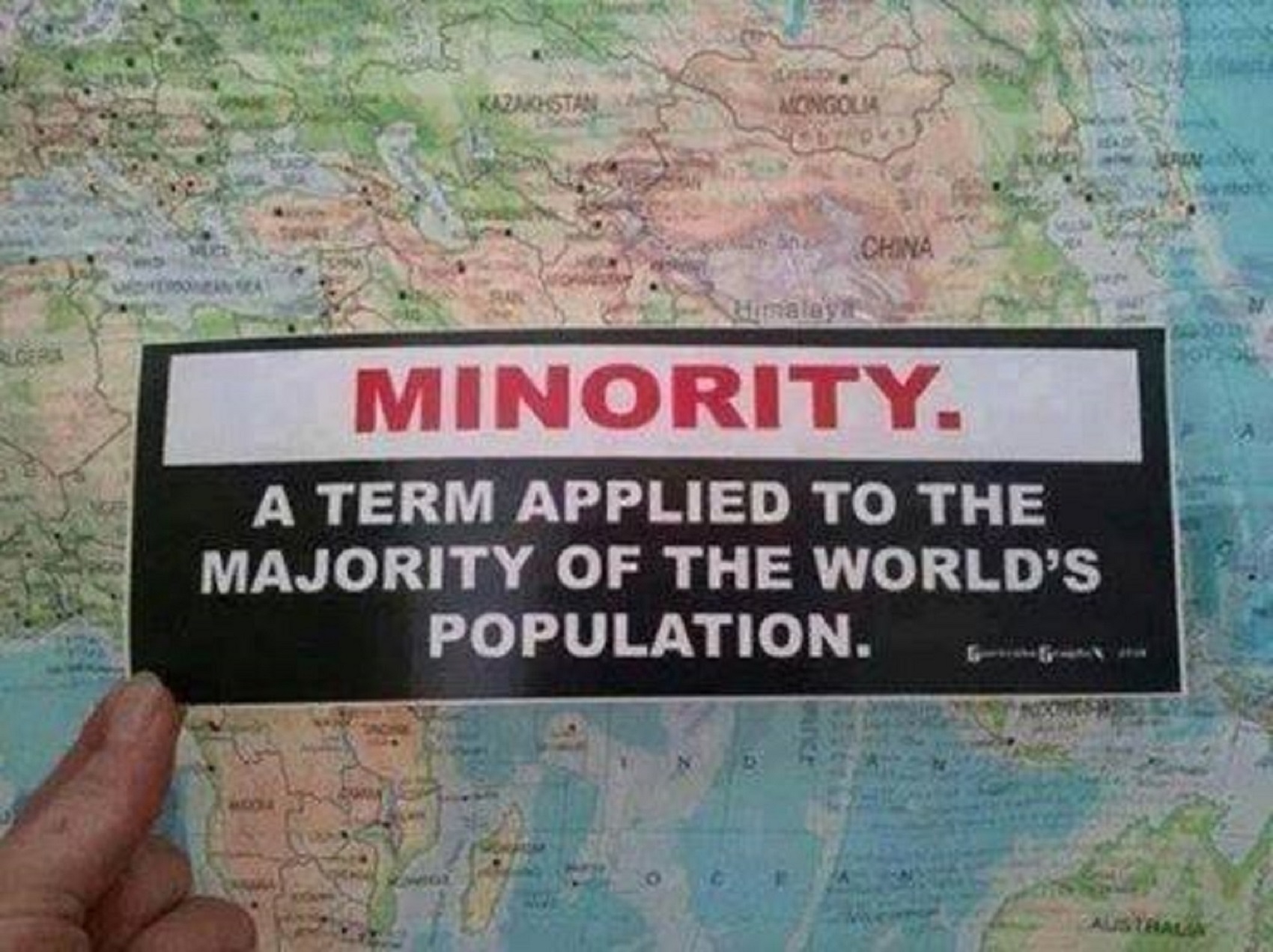
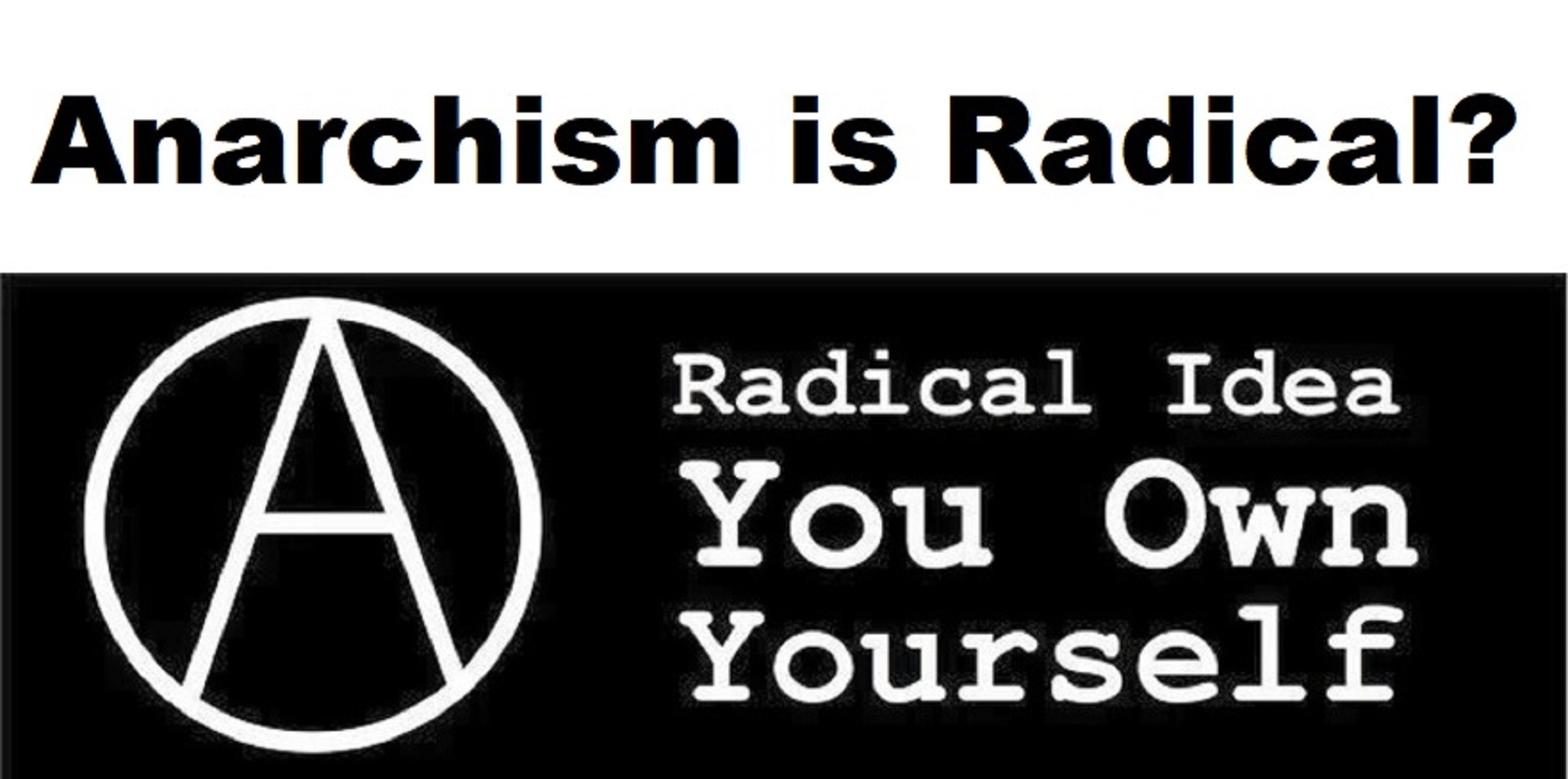

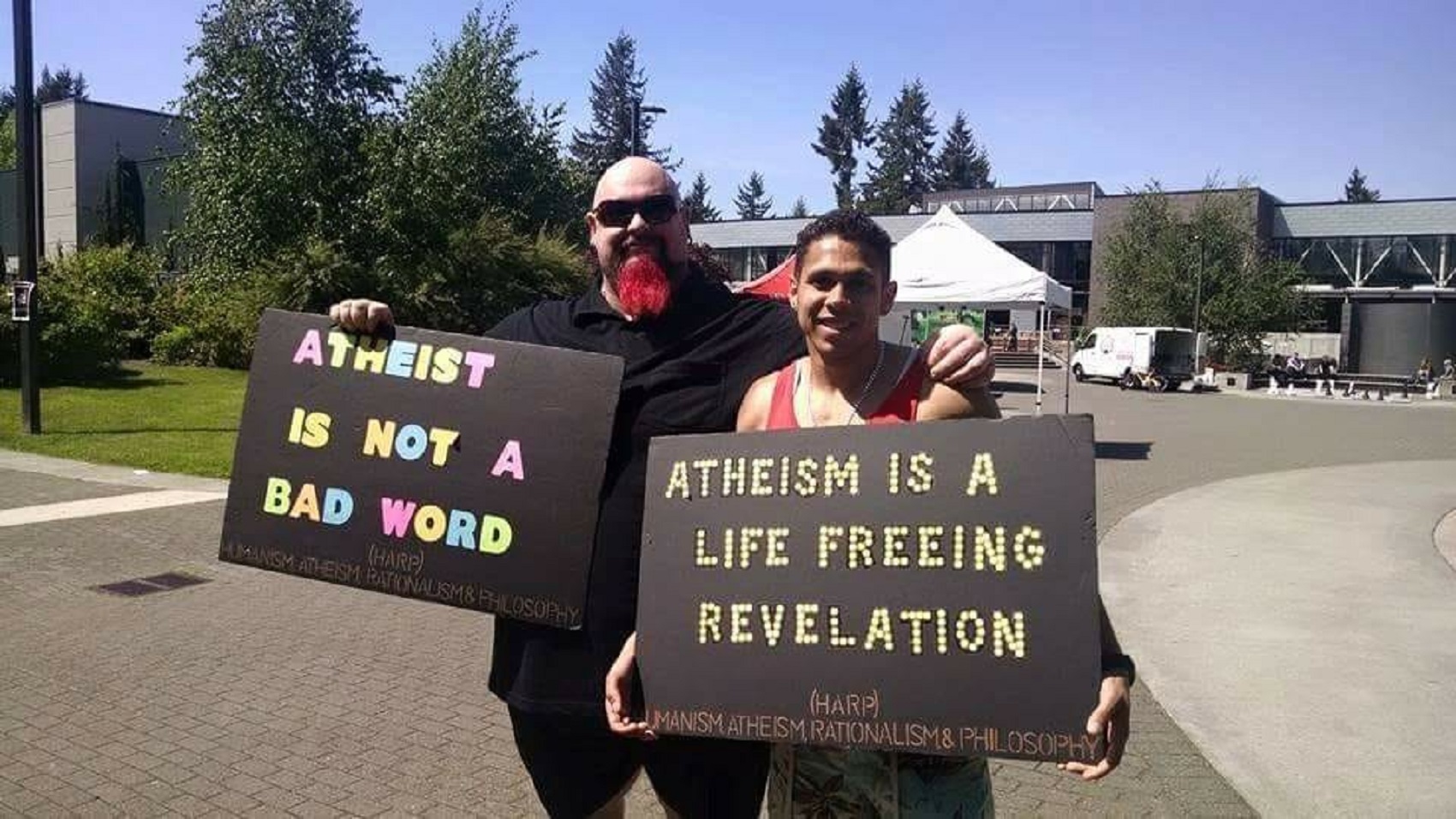
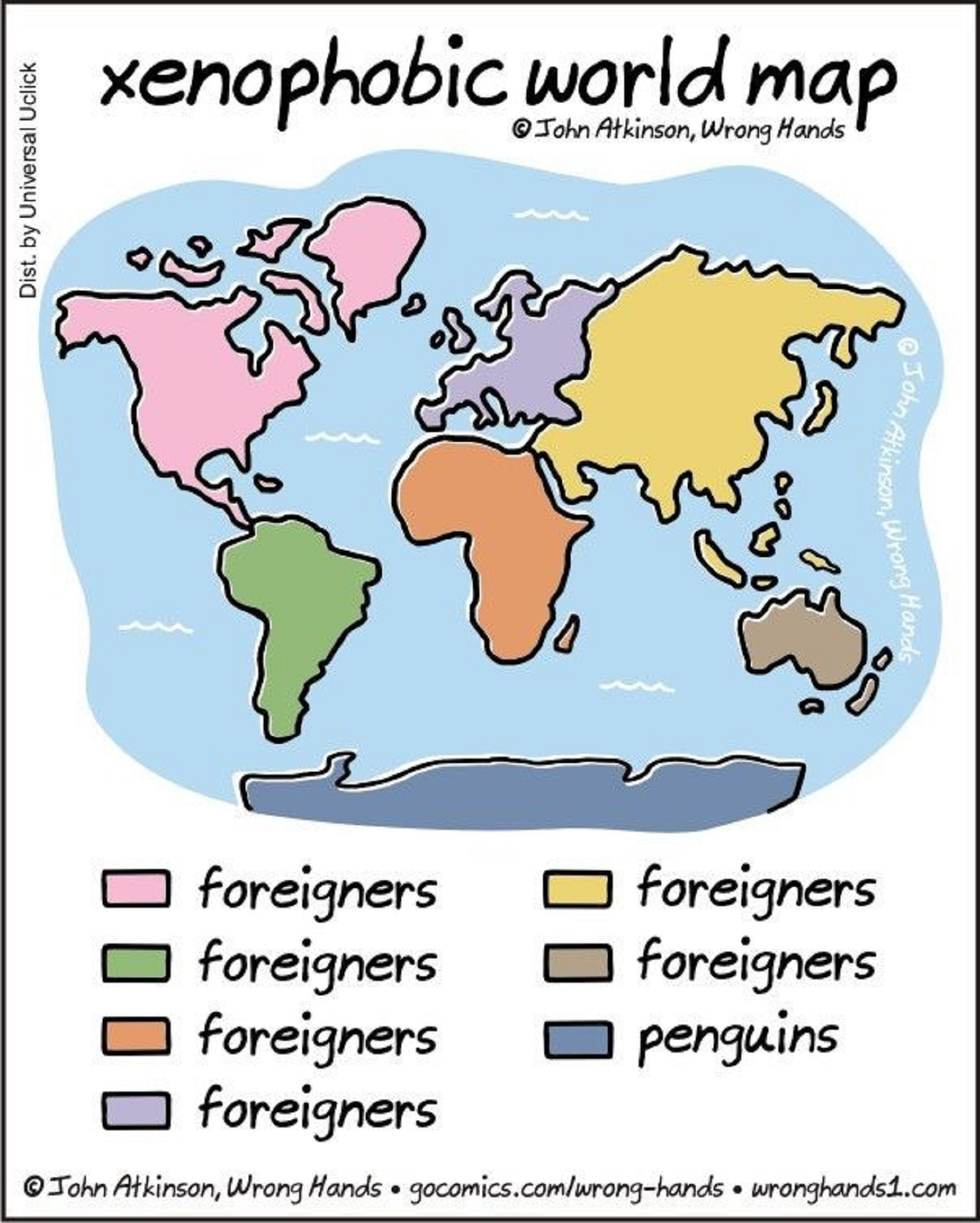



While hallucinogens are associated with shamanism, it is alcohol that is associated with paganism.
The Atheist-Humanist-Leftist Revolutionaries Shows in the prehistory series:
Show two: Pre-animism 300,000 years old and animism 100,000 years old: related to “Anarchism and Socialism”
Show tree: Totemism 50,000 years old: related to “Anarchism and Socialism”
Show four: Shamanism 30,000 years old: related to “Anarchism and Socialism”
Show five: Paganism 12,000 years old: related to “Anarchism and Socialism”
Show six: Emergence of hierarchy, sexism, slavery, and the new male god dominance: Paganism 7,000-5,000 years old: related to “Anarchism and Socialism” (Capitalism) (World War 0) Elite and their slaves!
Prehistory: related to “Anarchism and Socialism” the division of labor, power, rights, and recourses: VIDEO
Pre-animism 300,000 years old and animism 100,000 years old: related to “Anarchism and Socialism”: VIDEO
Totemism 50,000 years old: related to “Anarchism and Socialism”: VIDEO
Shamanism 30,000 years old: related to “Anarchism and Socialism”: VIDEO
Paganism 12,000 years old: related to “Anarchism and Socialism” (Pre-Capitalism): VIDEO
Paganism 7,000-5,000 years old: related to “Anarchism and Socialism” (Capitalism) (World War 0) Elite and their slaves: VIEDO
Paganism 5,000 years old: progressed organized religion and the state: related to “Anarchism and Socialism” (Kings and the Rise of the State): VIEDO
Paganism 4,000 years old: related to “Anarchism and Socialism” (First Moralistic gods, then the Origin time of Monotheism): VIEDO
I do not hate simply because I challenge and expose myths or lies any more than others being thought of as loving simply because of the protection and hiding from challenge their favored myths or lies.
The truth is best championed in the sunlight of challenge.
An archaeologist once said to me “Damien religion and culture are very different”
My response, So are you saying that was always that way, such as would you say Native Americans’ cultures are separate from their religions? And do you think it always was the way you believe?
I had said that religion was a cultural product. That is still how I see it and there are other archaeologists that think close to me as well. Gods too are the myths of cultures that did not understand science or the world around them, seeing magic/supernatural everywhere.
I personally think there is a goddess and not enough evidence to support a male god at Çatalhöyük but if there was both a male and female god and goddess then I know the kind of gods they were like Proto-Indo-European mythology.
This series idea was addressed in, Anarchist Teaching as Free Public Education or Free Education in the Public: VIDEO
Our 12 video series: Organized Oppression: Mesopotamian State Force and the Politics of power (9,000-4,000 years ago), is adapted from: The Complete and Concise History of the Sumerians and Early Bronze Age Mesopotamia (7000-2000 BC): https://www.youtube.com/watch?v=szFjxmY7jQA by “History with Cy“
Show #1: Mesopotamian State Force and the Politics of Power (Samarra, Halaf, Ubaid)
Show #2: Mesopotamian State Force and the Politics of Power
Show #3: Mesopotamian State Force and the Politics of Power (Uruk and the First Cities)
Show #4: Mesopotamian State Force and the Politics of Power (First Kings)
Show #5: Mesopotamian State Force and the Politics of Power (Early Dynastic Period)
Show #6: Mesopotamian State Force and the Politics of Power
Show #7: Mesopotamian State Force and the Politics of Power (Sargon and Akkadian Rule)
Show #9: Mesopotamian State Force and the Politics of Power (Gudea of Lagash and Utu-hegal)
Show #12: Mesopotamian State Force and the Politics of Power (Aftermath and Legacy of Sumer)

The “Atheist-Humanist-Leftist Revolutionaries”
Cory Johnston ☭ Ⓐ Atheist Leftist @Skepticallefty & I (Damien Marie AtHope) @AthopeMarie (my YouTube & related blog) are working jointly in atheist, antitheist, antireligionist, antifascist, anarchist, socialist, and humanist endeavors in our videos together, generally, every other Saturday.
Why Does Power Bring Responsibility?
Think, how often is it the powerless that start wars, oppress others, or commit genocide? So, I guess the question is to us all, to ask, how can power not carry responsibility in a humanity concept? I know I see the deep ethical responsibility that if there is power their must be a humanistic responsibility of ethical and empathic stewardship of that power. Will I be brave enough to be kind? Will I possess enough courage to be compassionate? Will my valor reach its height of empathy? I as everyone, earns our justified respect by our actions, that are good, ethical, just, protecting, and kind. Do I have enough self-respect to put my love for humanity’s flushing, over being brought down by some of its bad actors? May we all be the ones doing good actions in the world, to help human flourishing.
I create the world I want to live in, striving for flourishing. Which is not a place but a positive potential involvement and promotion; a life of humanist goal precision. To master oneself, also means mastering positive prosocial behaviors needed for human flourishing. I may have lost a god myth as an atheist, but I am happy to tell you, my friend, it is exactly because of that, leaving the mental terrorizer, god belief, that I truly regained my connected ethical as well as kind humanity.
Cory and I will talk about prehistory and theism, addressing the relevance to atheism, anarchism, and socialism.
At the same time as the rise of the male god, 7,000 years ago, there was also the very time there was the rise of violence, war, and clans to kingdoms, then empires, then states. It is all connected back to 7,000 years ago, and it moved across the world.
Cory Johnston: https://damienmarieathope.com/2021/04/cory-johnston-mind-of-a-skeptical-leftist/?v=32aec8db952d
The Mind of a Skeptical Leftist (YouTube)
Cory Johnston: Mind of a Skeptical Leftist @Skepticallefty
The Mind of a Skeptical Leftist By Cory Johnston: “Promoting critical thinking, social justice, and left-wing politics by covering current events and talking to a variety of people. Cory Johnston has been thoughtfully talking to people and attempting to promote critical thinking, social justice, and left-wing politics.” http://anchor.fm/skepticalleft
Cory needs our support. We rise by helping each other.
Cory Johnston ☭ Ⓐ @Skepticallefty Evidence-based atheist leftist (he/him) Producer, host, and co-host of 4 podcasts @skeptarchy @skpoliticspod and @AthopeMarie
Damien Marie AtHope (“At Hope”) Axiological Atheist, Anti-theist, Anti-religionist, Secular Humanist. Rationalist, Writer, Artist, Poet, Philosopher, Advocate, Activist, Psychology, and Armchair Archaeology/Anthropology/Historian.
Damien is interested in: Freedom, Liberty, Justice, Equality, Ethics, Humanism, Science, Atheism, Antiteism, Antireligionism, Ignosticism, Left-Libertarianism, Anarchism, Socialism, Mutualism, Axiology, Metaphysics, LGBTQI, Philosophy, Advocacy, Activism, Mental Health, Psychology, Archaeology, Social Work, Sexual Rights, Marriage Rights, Woman’s Rights, Gender Rights, Child Rights, Secular Rights, Race Equality, Ageism/Disability Equality, Etc. And a far-leftist, “Anarcho-Humanist.”
I am not a good fit in the atheist movement that is mostly pro-capitalist, I am anti-capitalist. Mostly pro-skeptic, I am a rationalist not valuing skepticism. Mostly pro-agnostic, I am anti-agnostic. Mostly limited to anti-Abrahamic religions, I am an anti-religionist.
To me, the “male god” seems to have either emerged or become prominent around 7,000 years ago, whereas the now favored monotheism “male god” is more like 4,000 years ago or so. To me, the “female goddess” seems to have either emerged or become prominent around 11,000-10,000 years ago or so, losing the majority of its once prominence around 2,000 years ago due largely to the now favored monotheism “male god” that grow in prominence after 4,000 years ago or so.
My Thought on the Evolution of Gods?
Animal protector deities from old totems/spirit animal beliefs come first to me, 13,000/12,000 years ago, then women as deities 11,000/10,000 years ago, then male gods around 7,000/8,000 years ago. Moralistic gods around 5,000/4,000 years ago, and monotheistic gods around 4,000/3,000 years ago.
To me, animal gods were likely first related to totemism animals around 13,000 to 12,000 years ago or older. Female as goddesses was next to me, 11,000 to 10,000 years ago or so with the emergence of agriculture. Then male gods come about 8,000 to 7,000 years ago with clan wars.

Damien Marie AtHope (Said as “At” “Hope”)/(Autodidact Polymath but not good at math):
Axiological Atheist, Anti-theist, Anti-religionist, Secular Humanist, Rationalist, Writer, Artist, Jeweler, Poet, “autodidact” Philosopher, schooled in Psychology, and “autodidact” Armchair Archaeology/Anthropology/Pre-Historian (Knowledgeable in the range of: 1 million to 5,000/4,000 years ago). I am an anarchist socialist politically. Reasons for or Types of Atheism
My Website, My Blog, & Short-writing or Quotes, My YouTube, Twitter: @AthopeMarie, and My Email: damien.marie.athope@gmail.com

